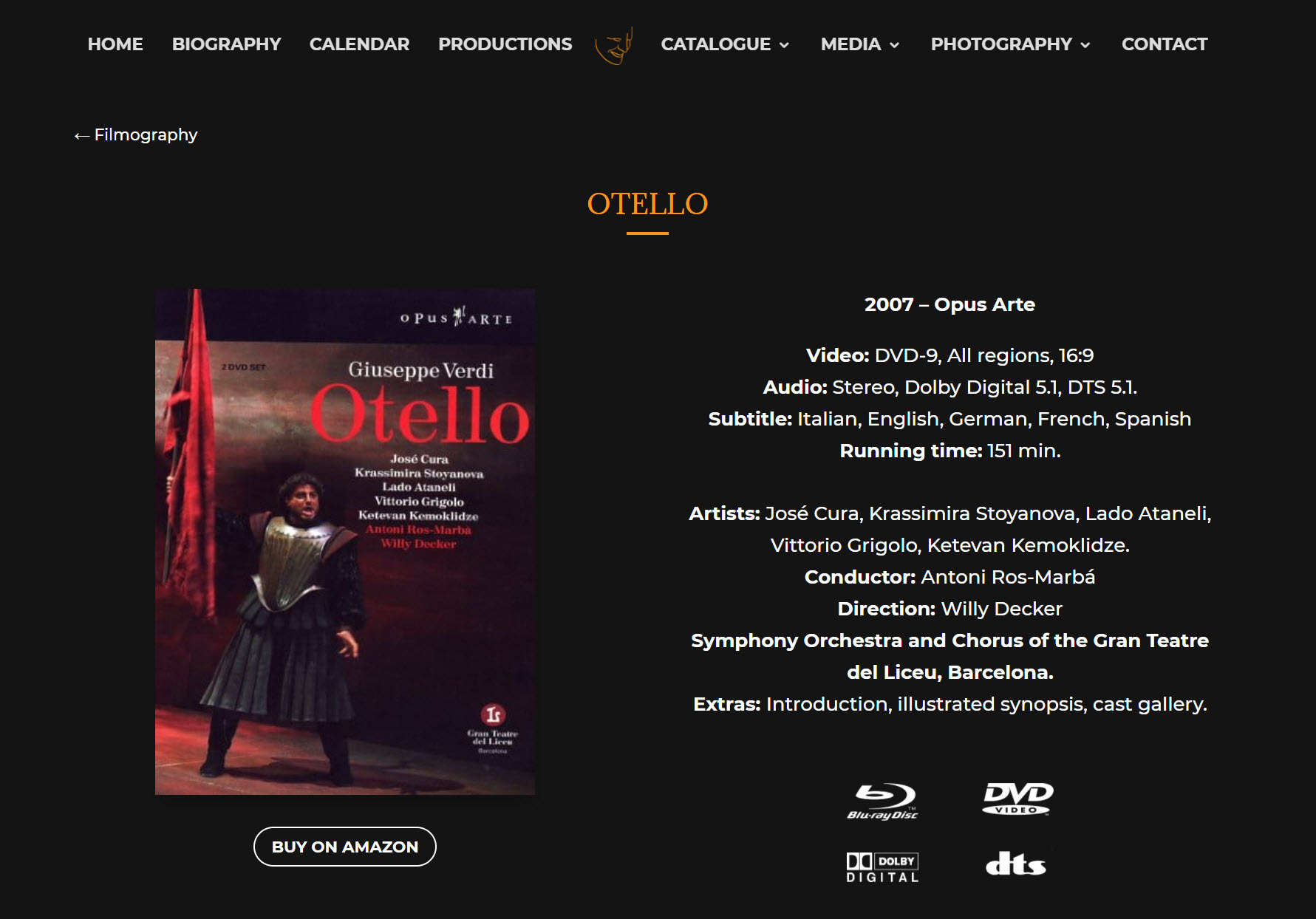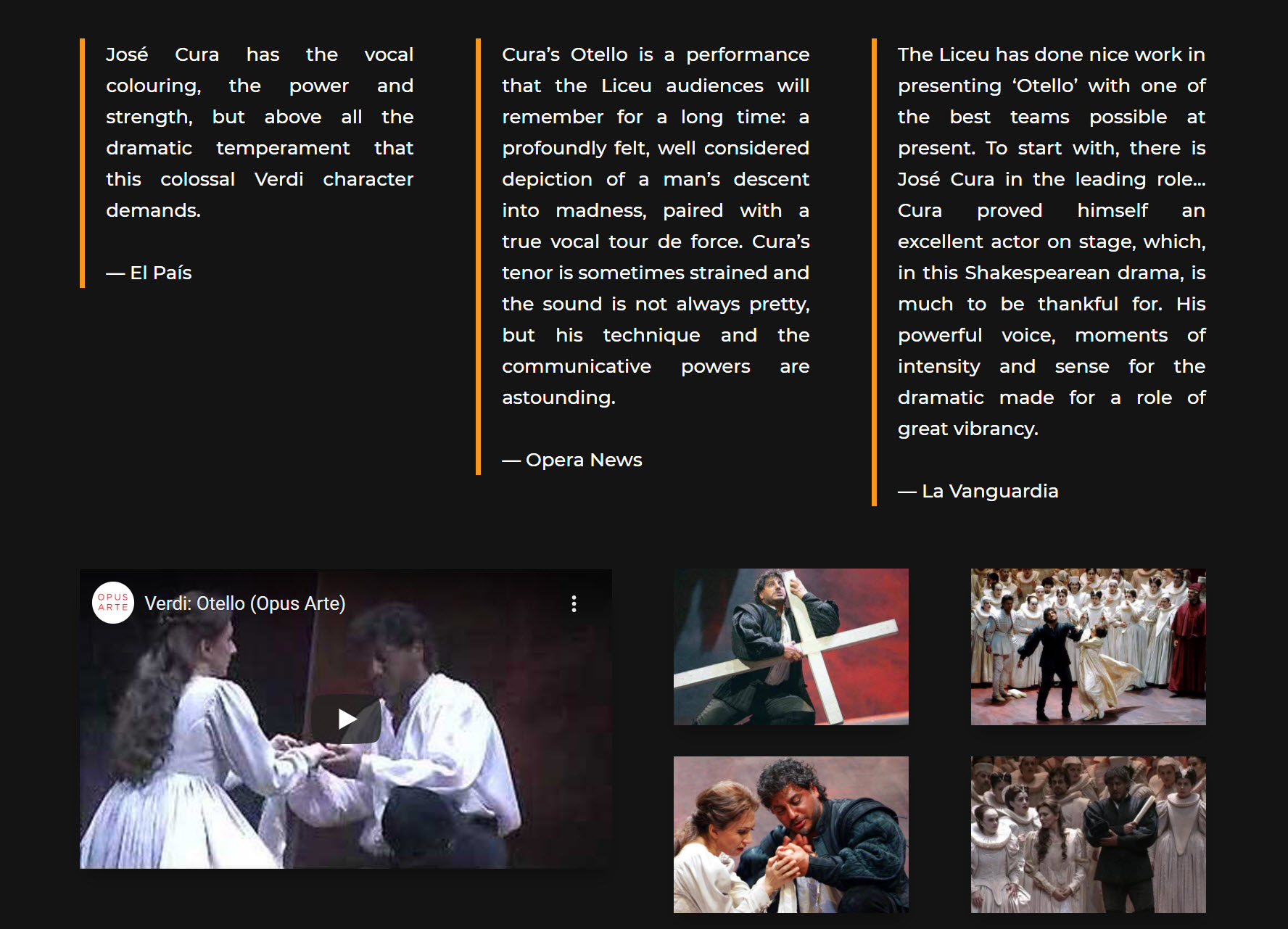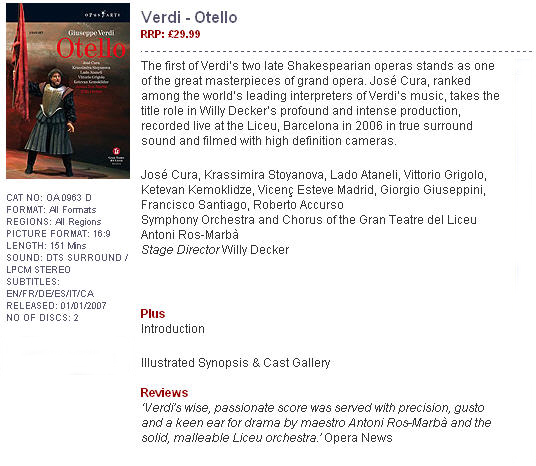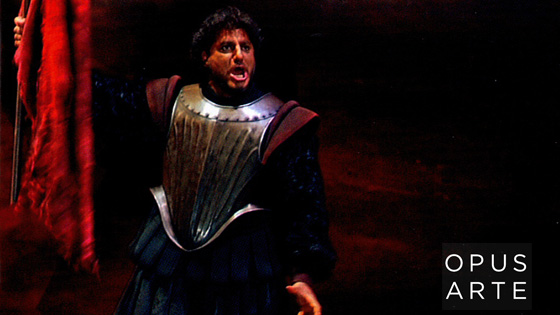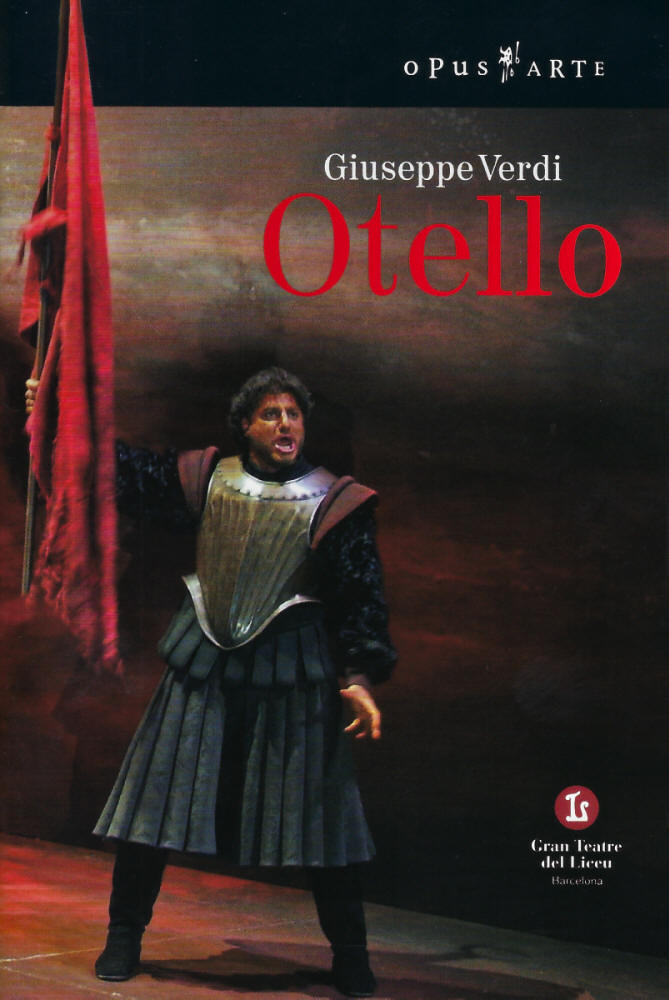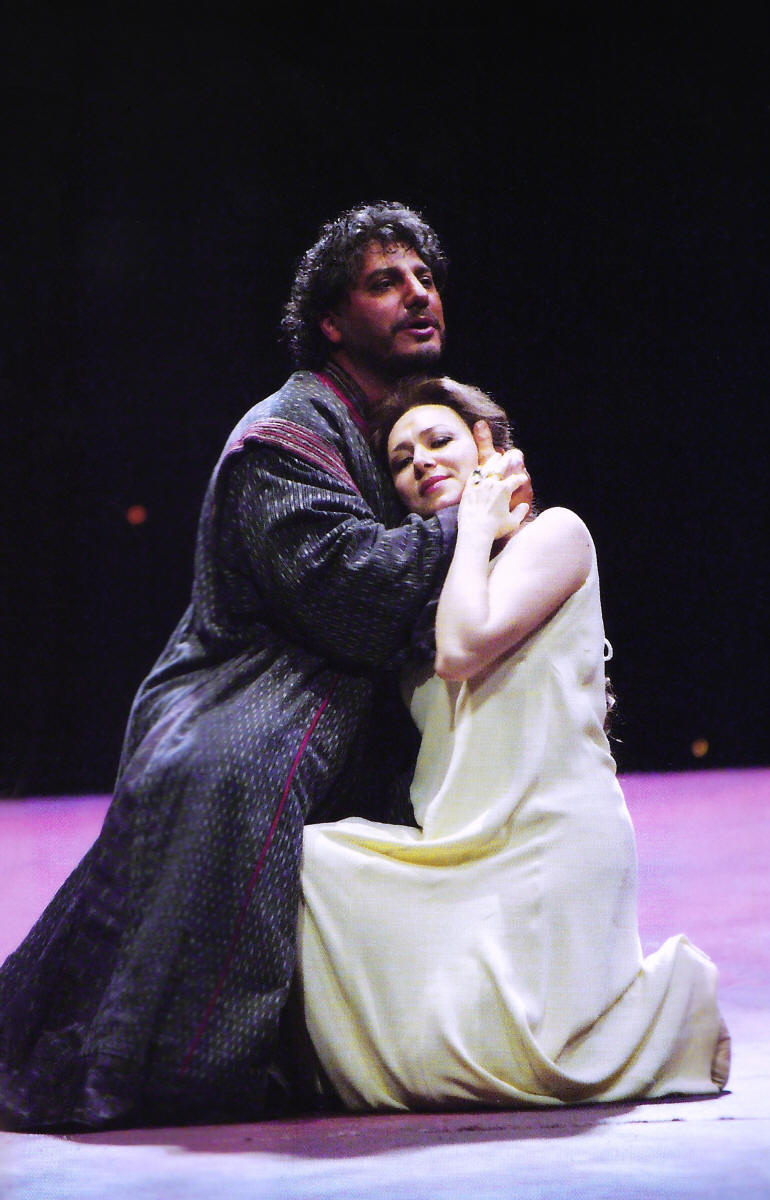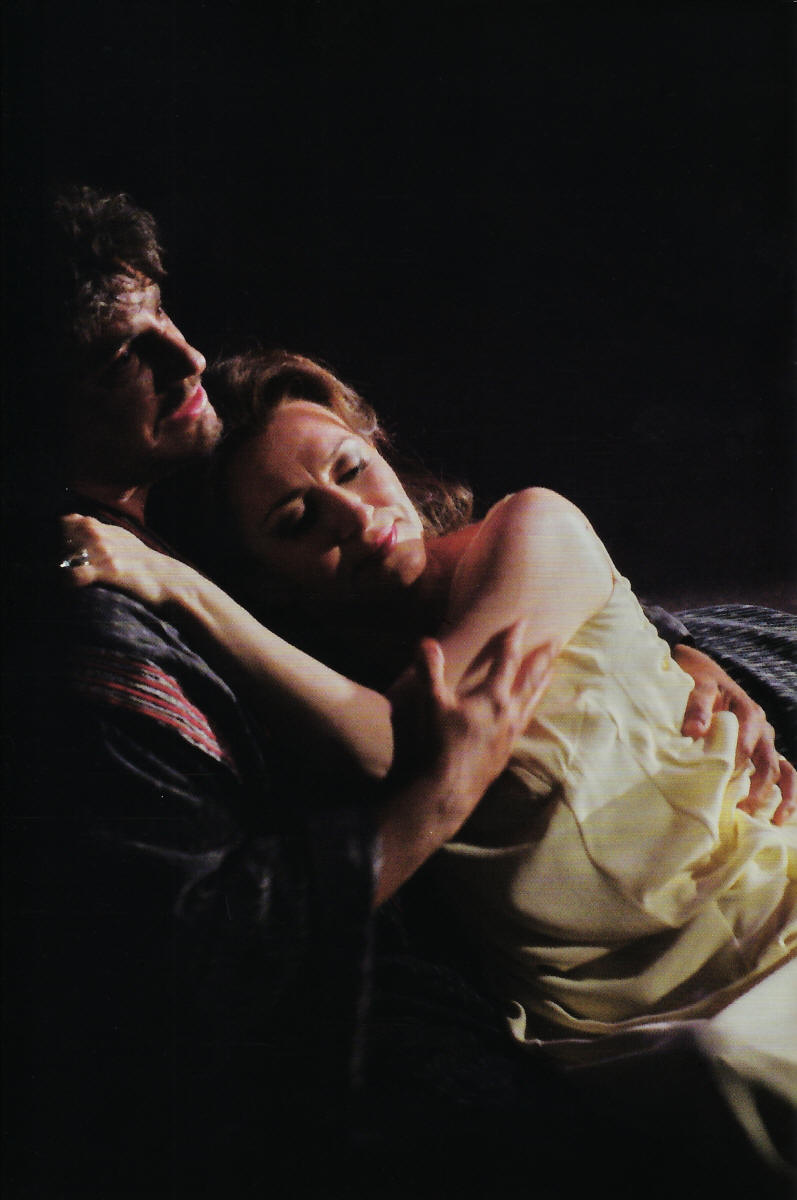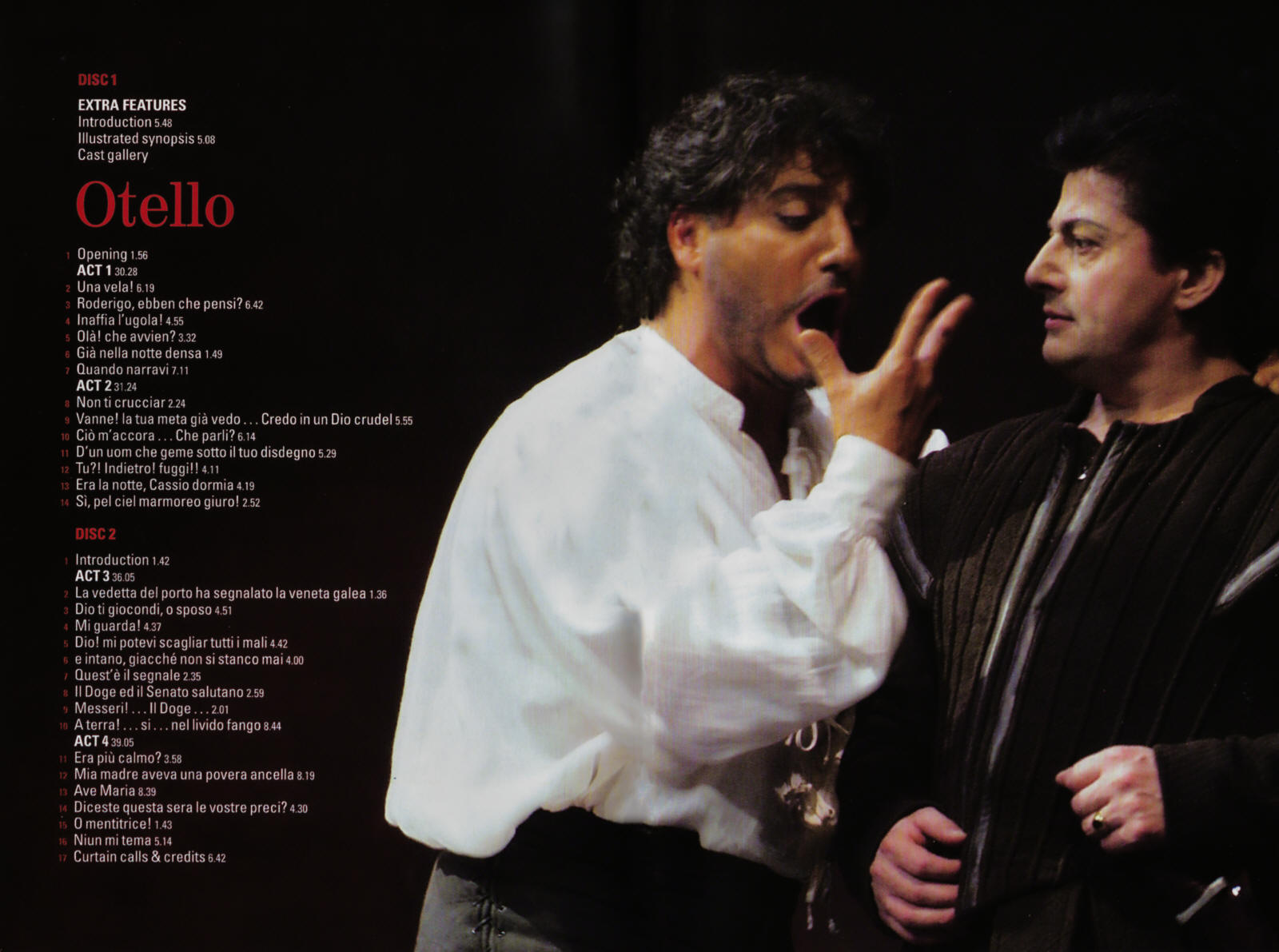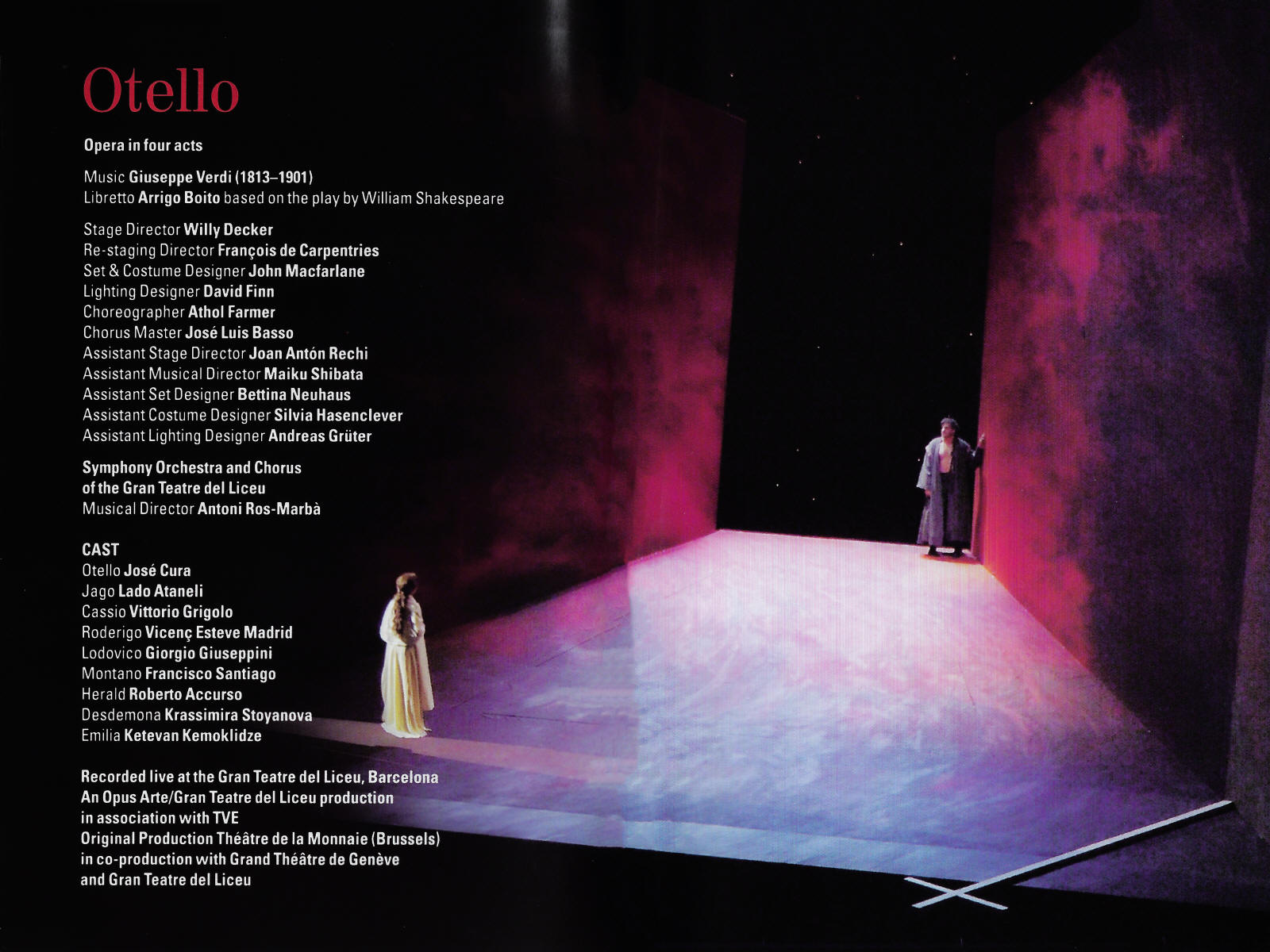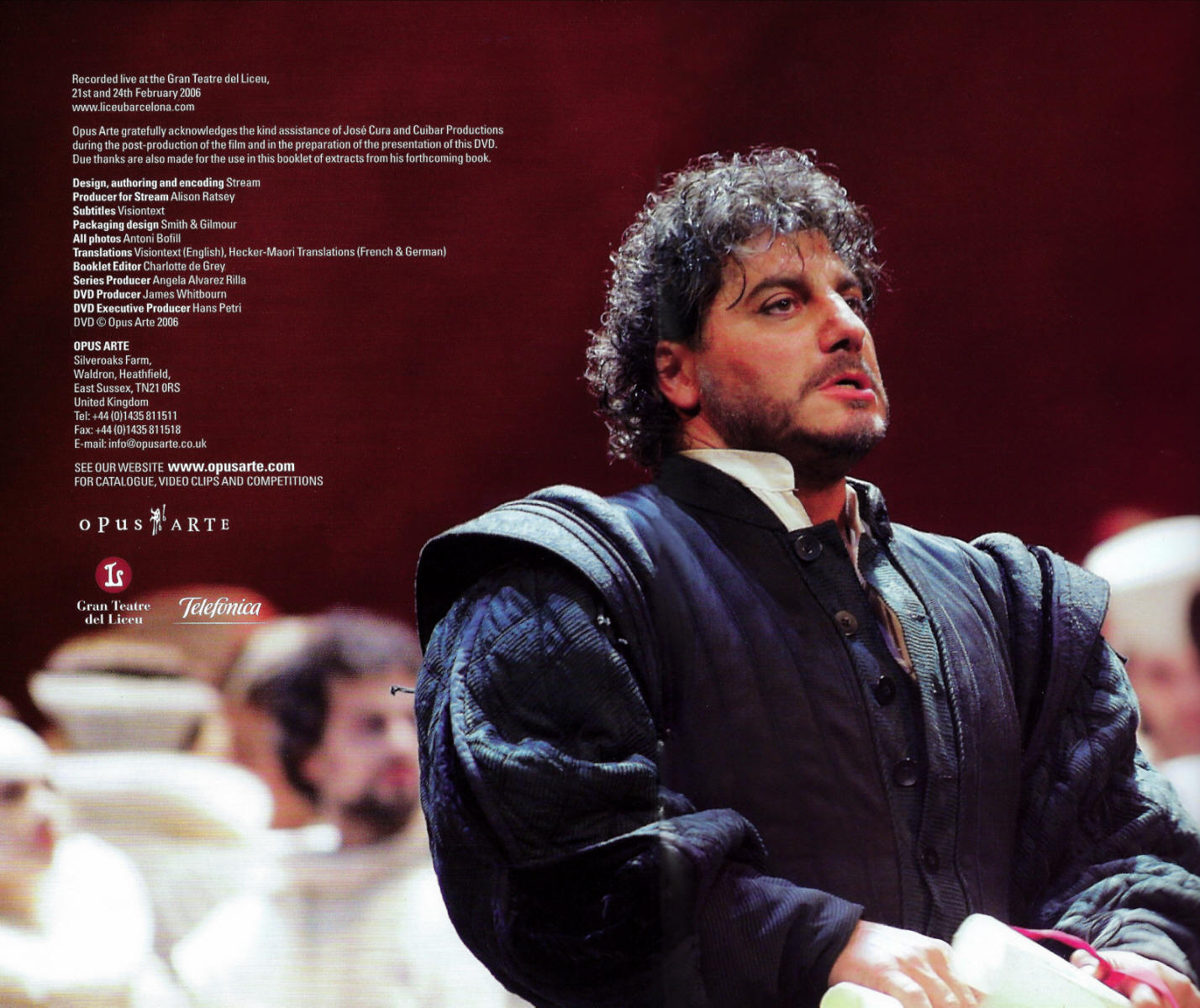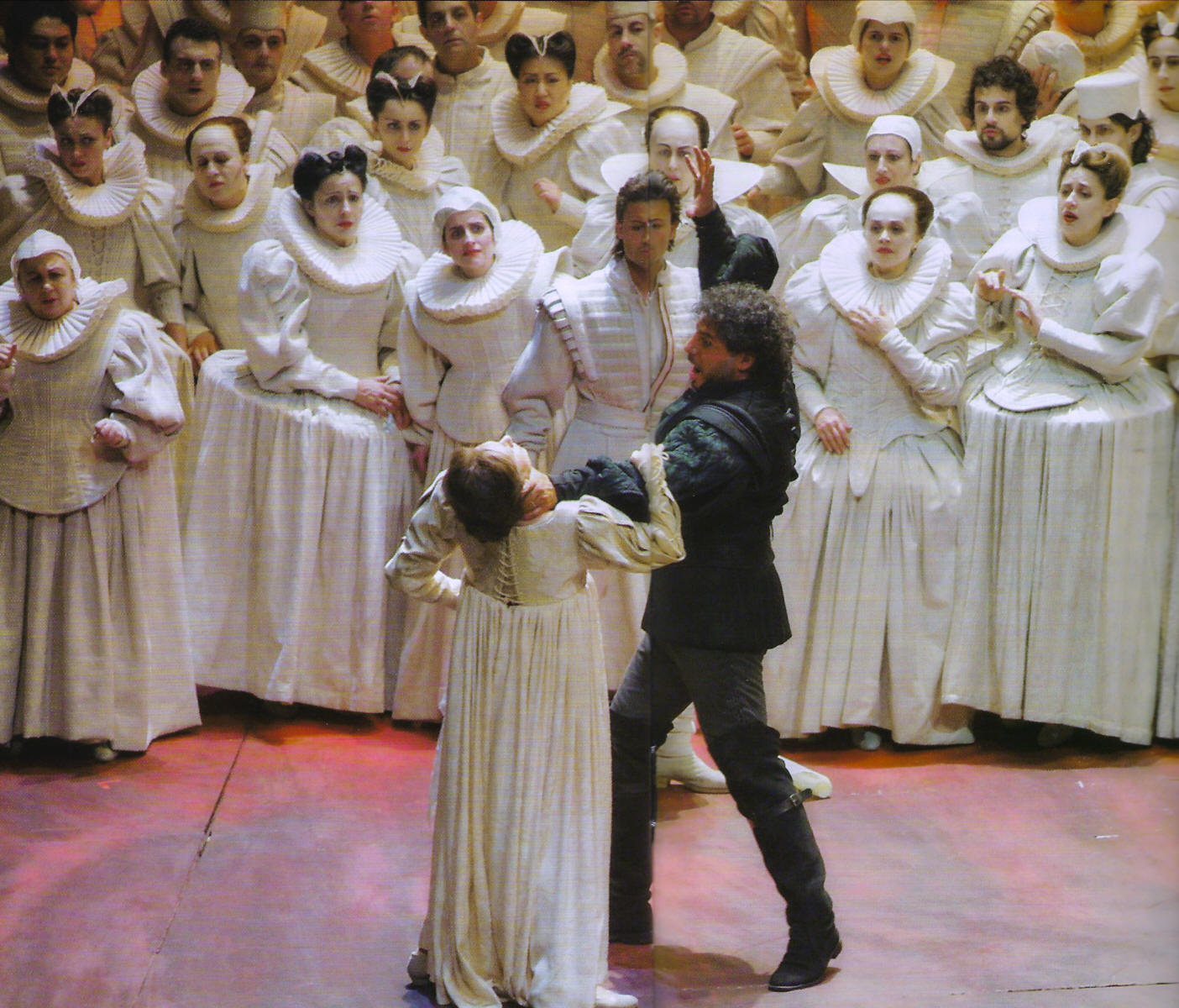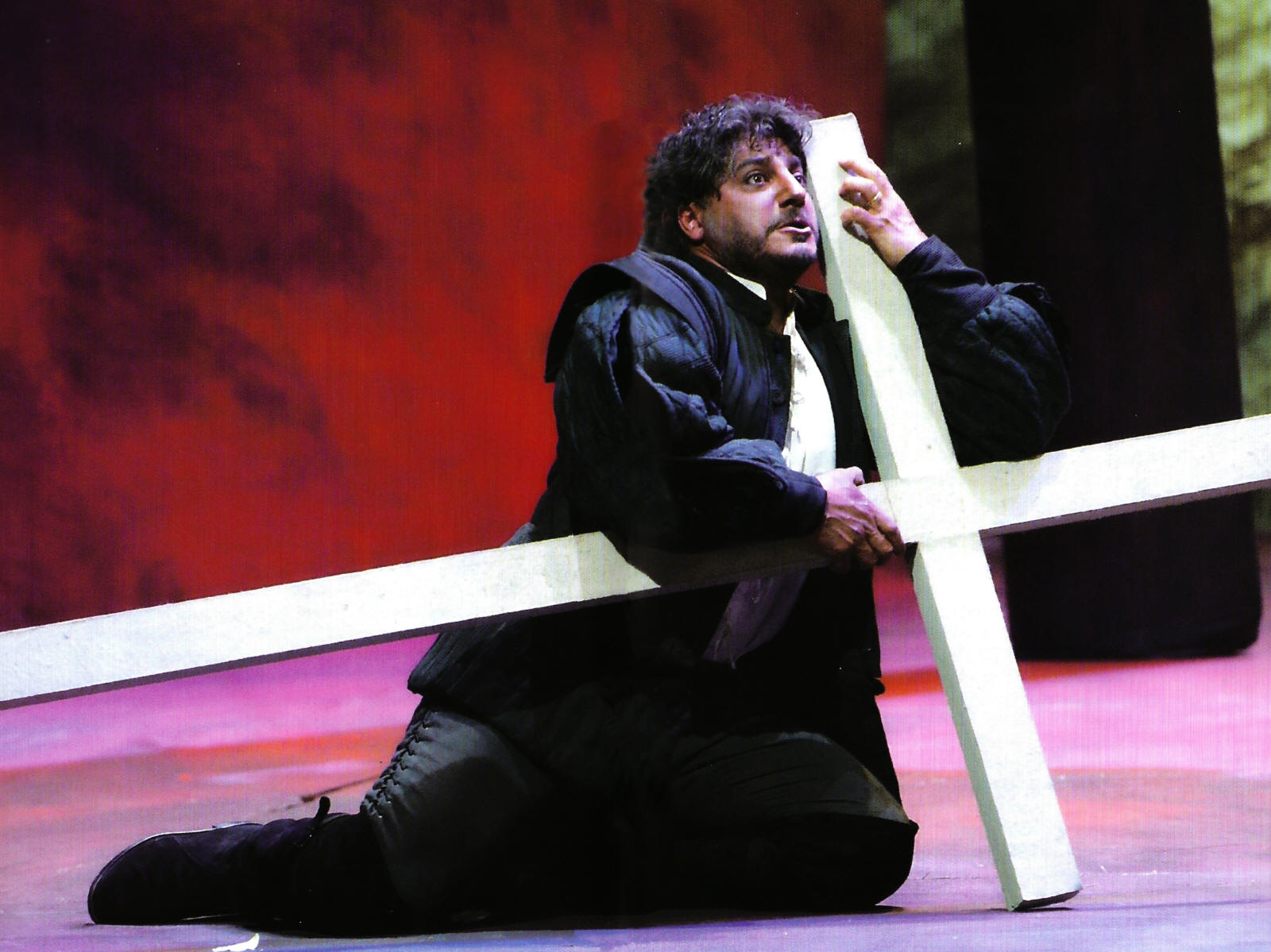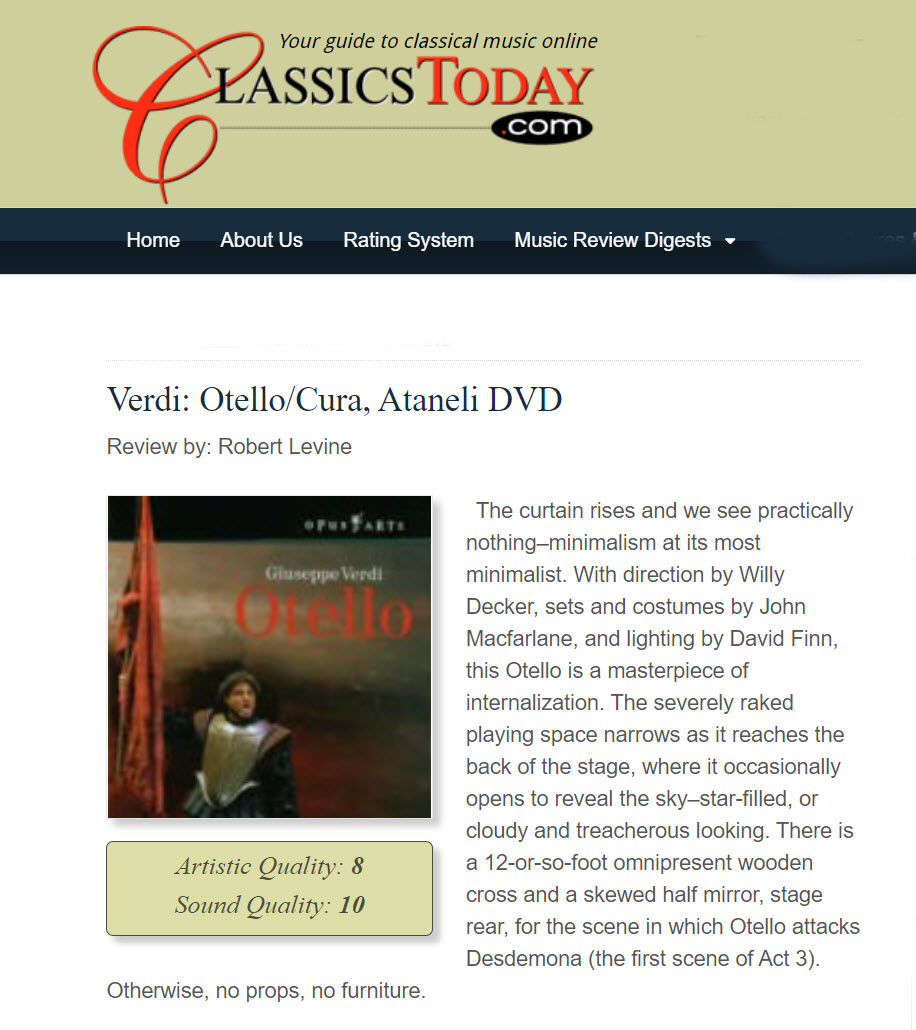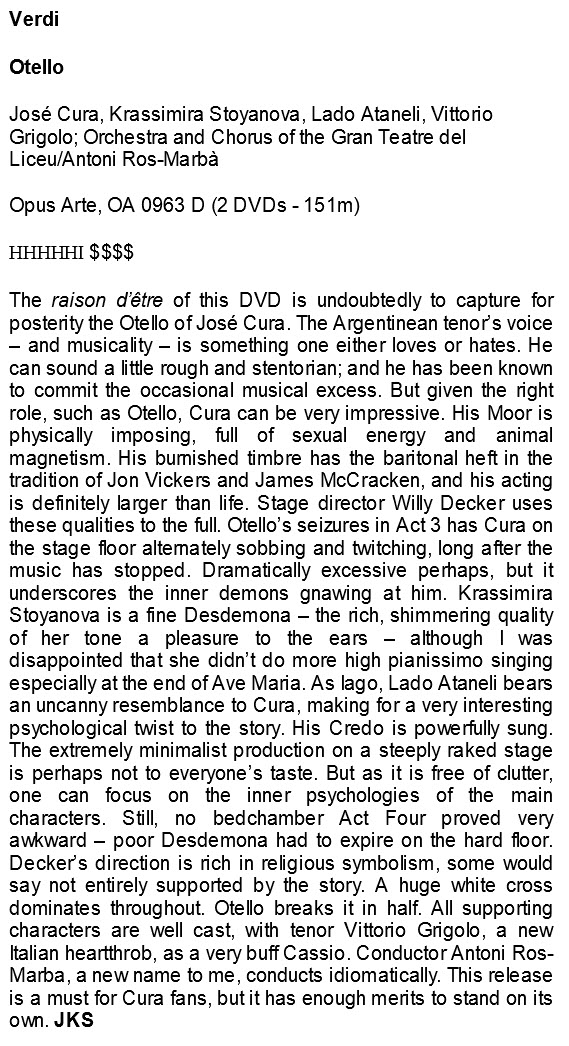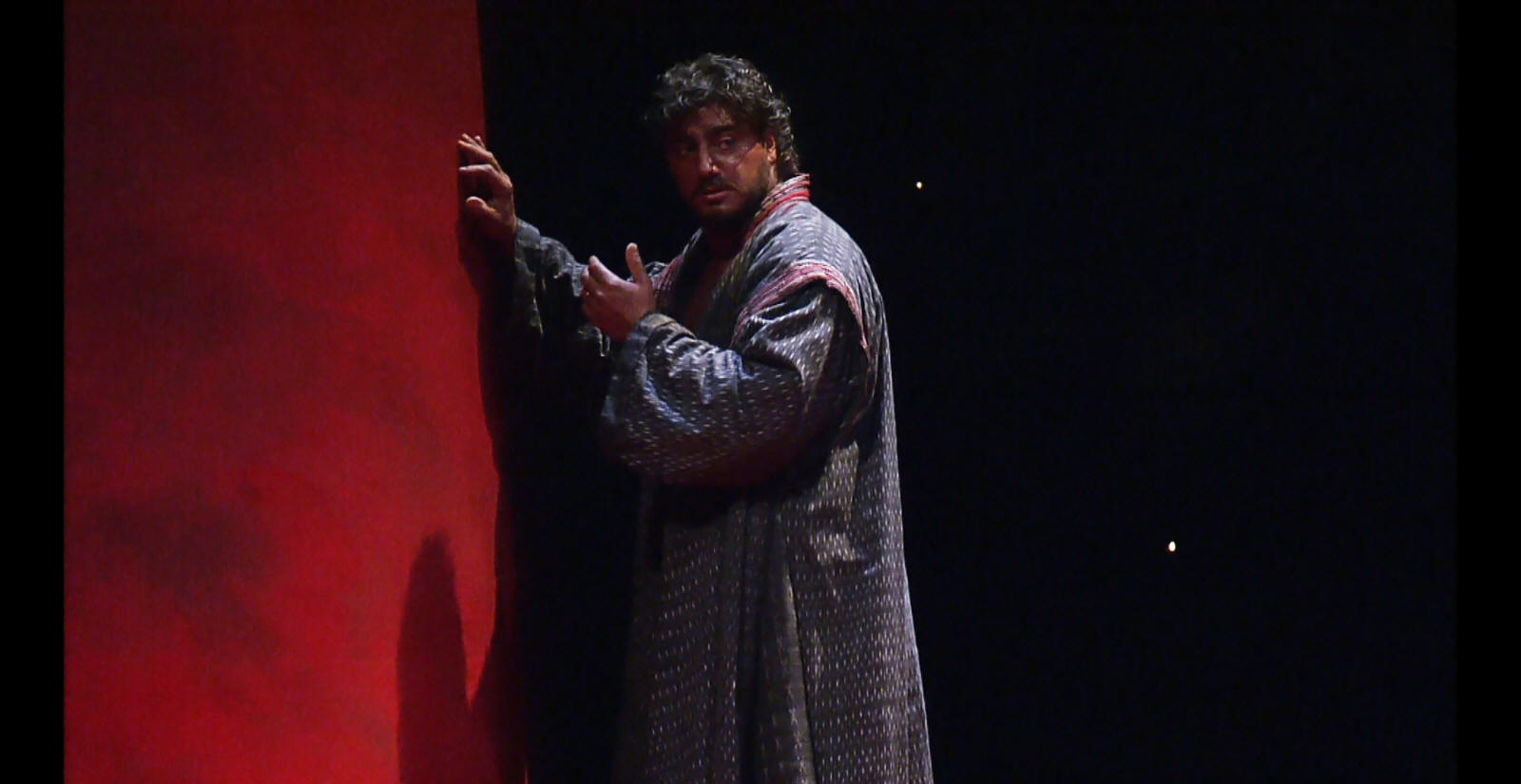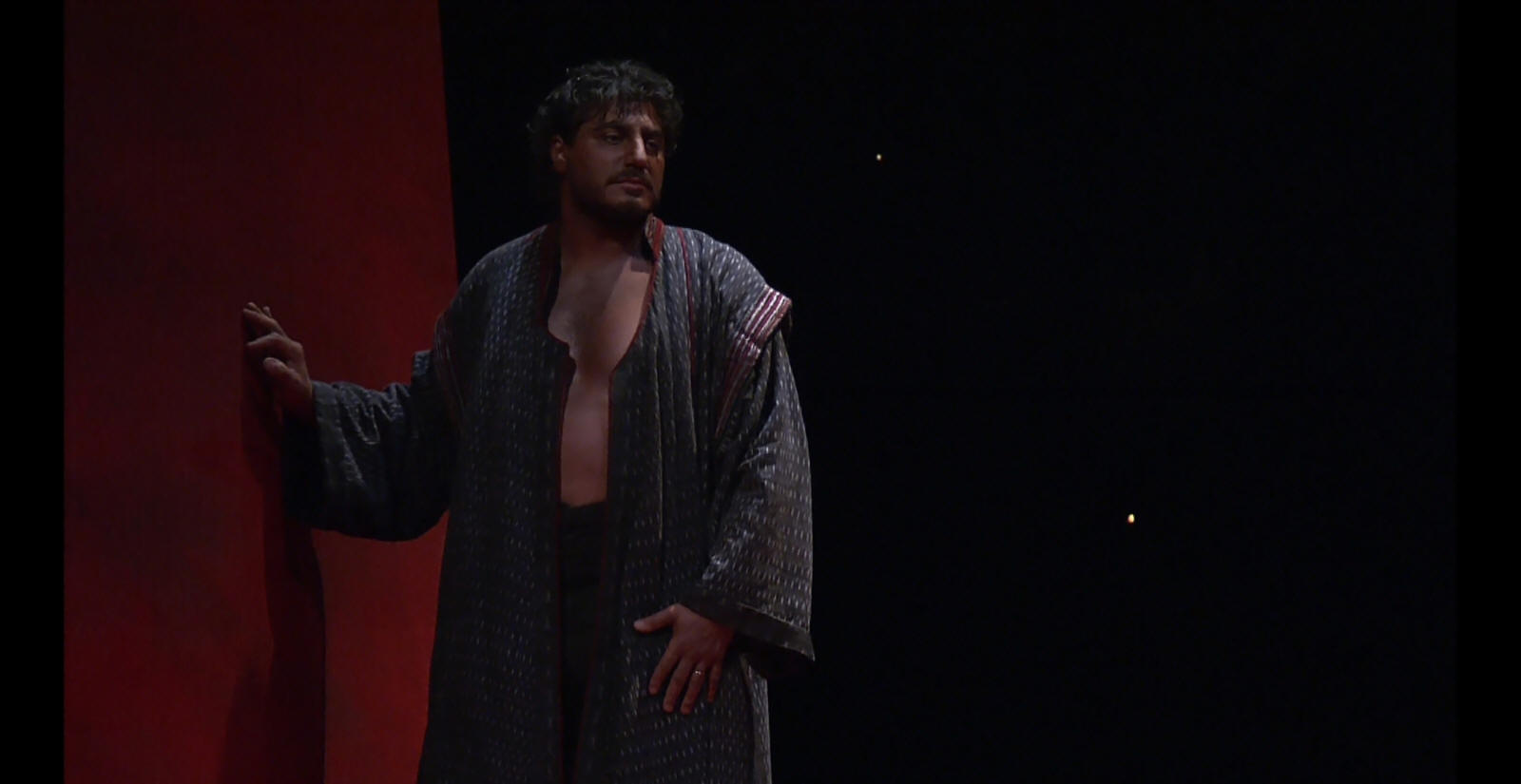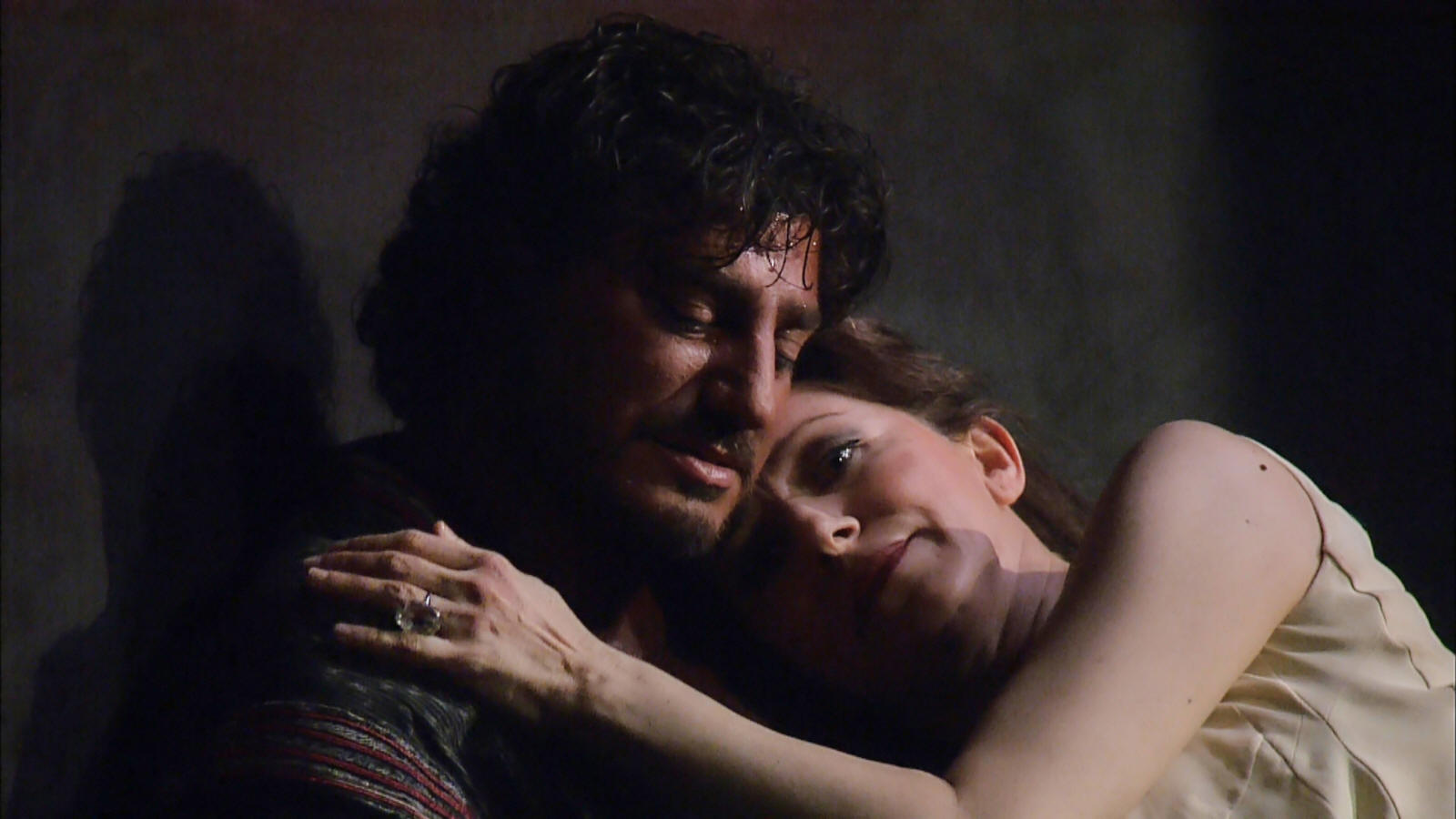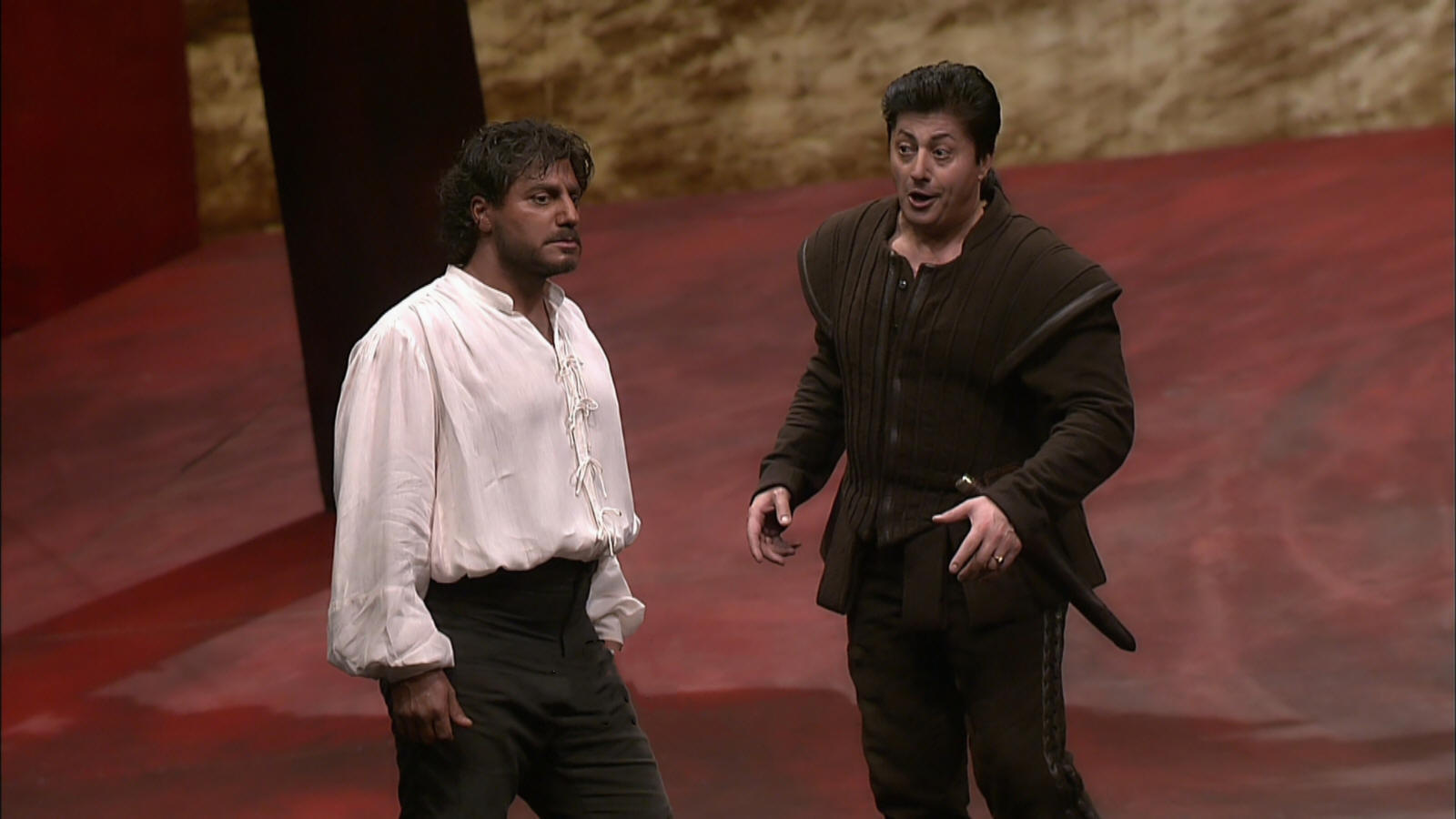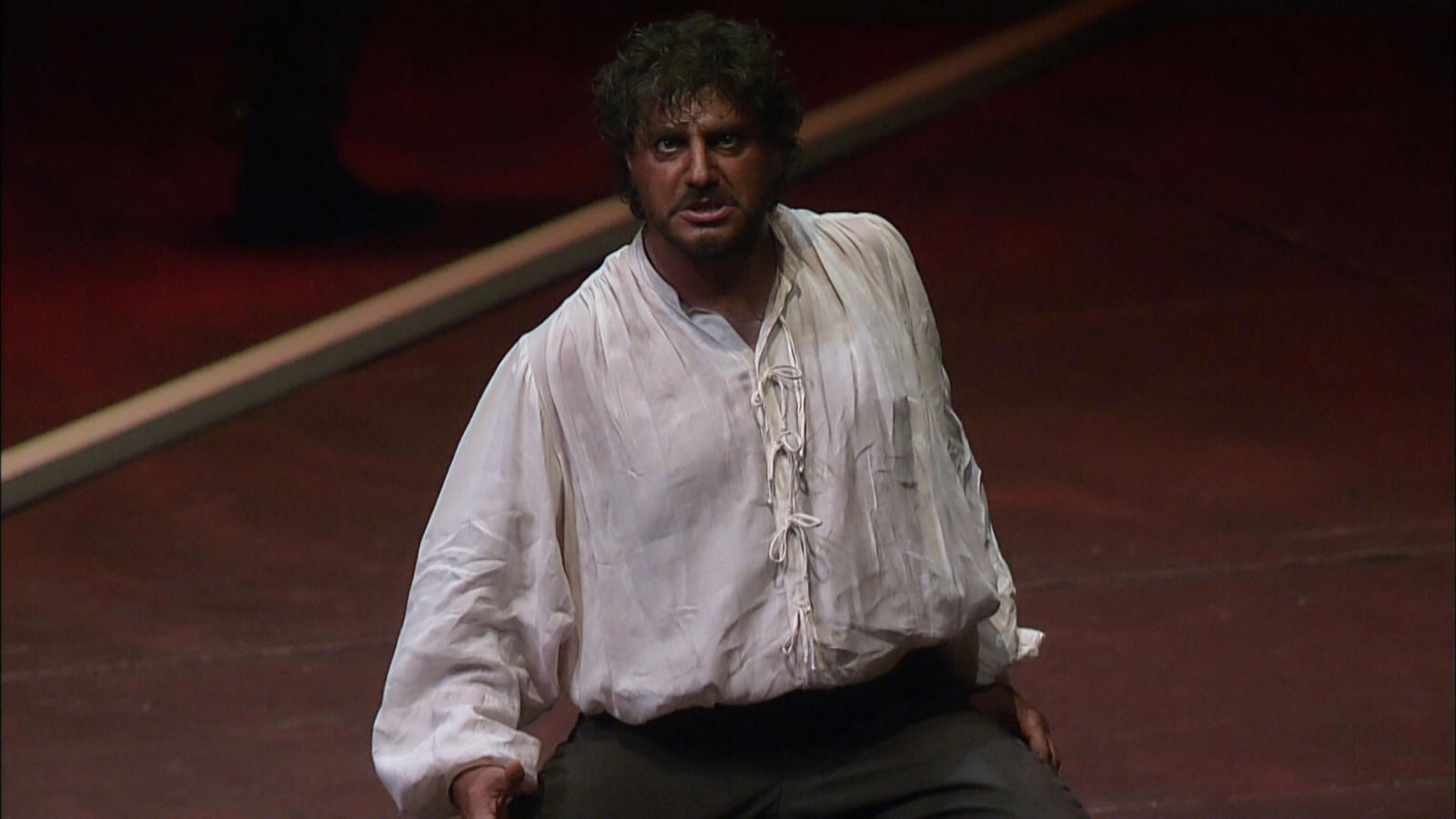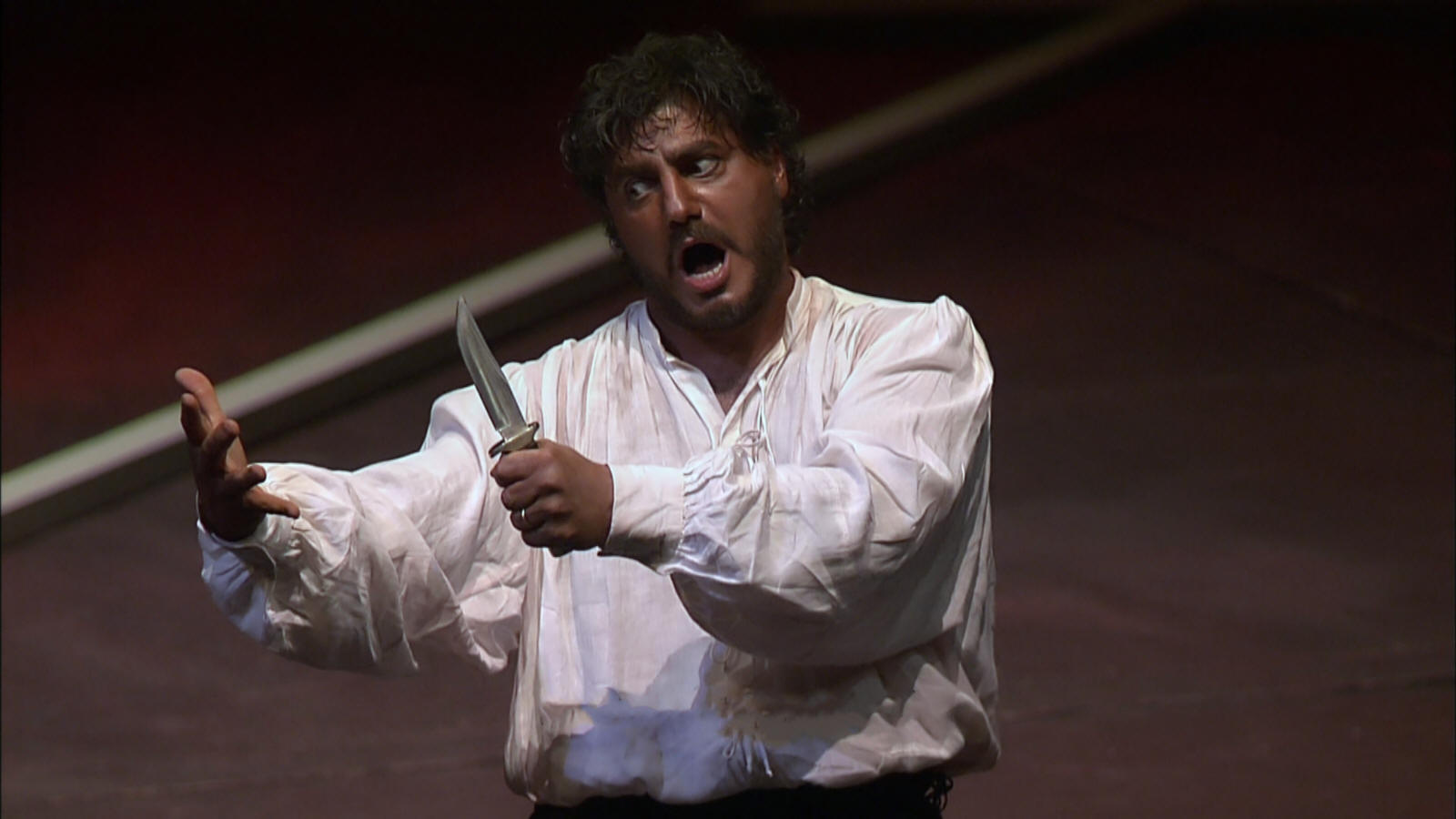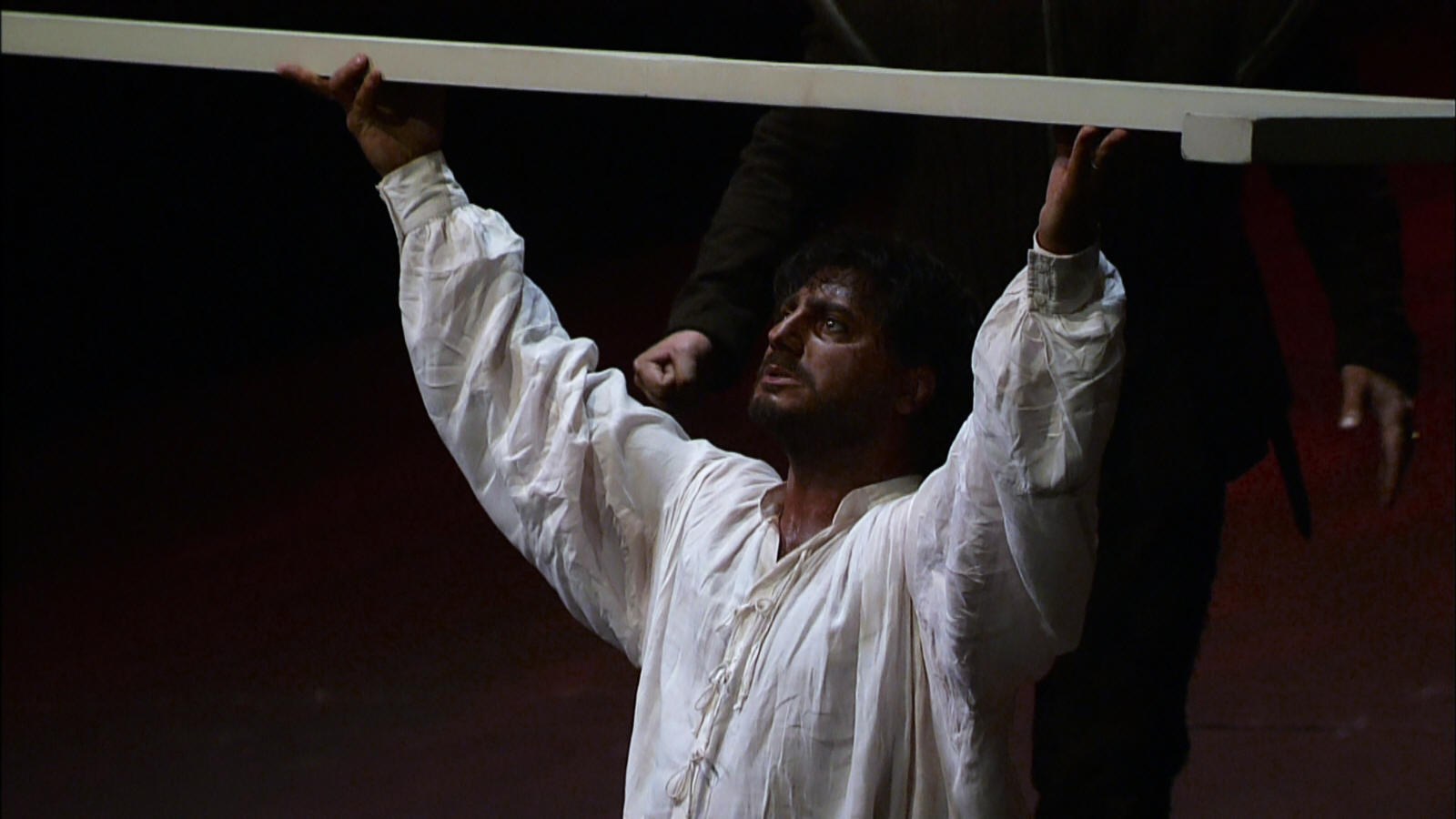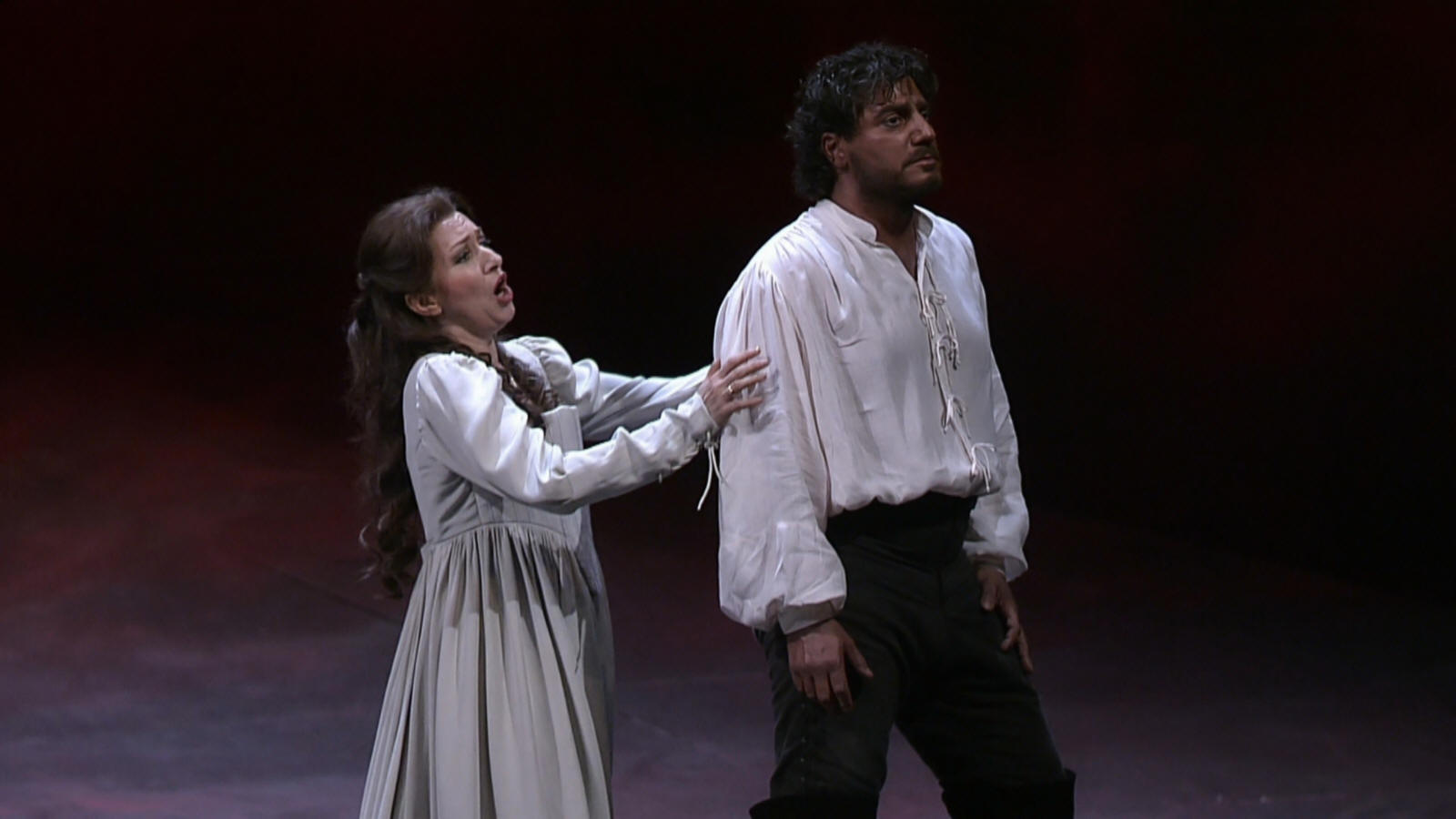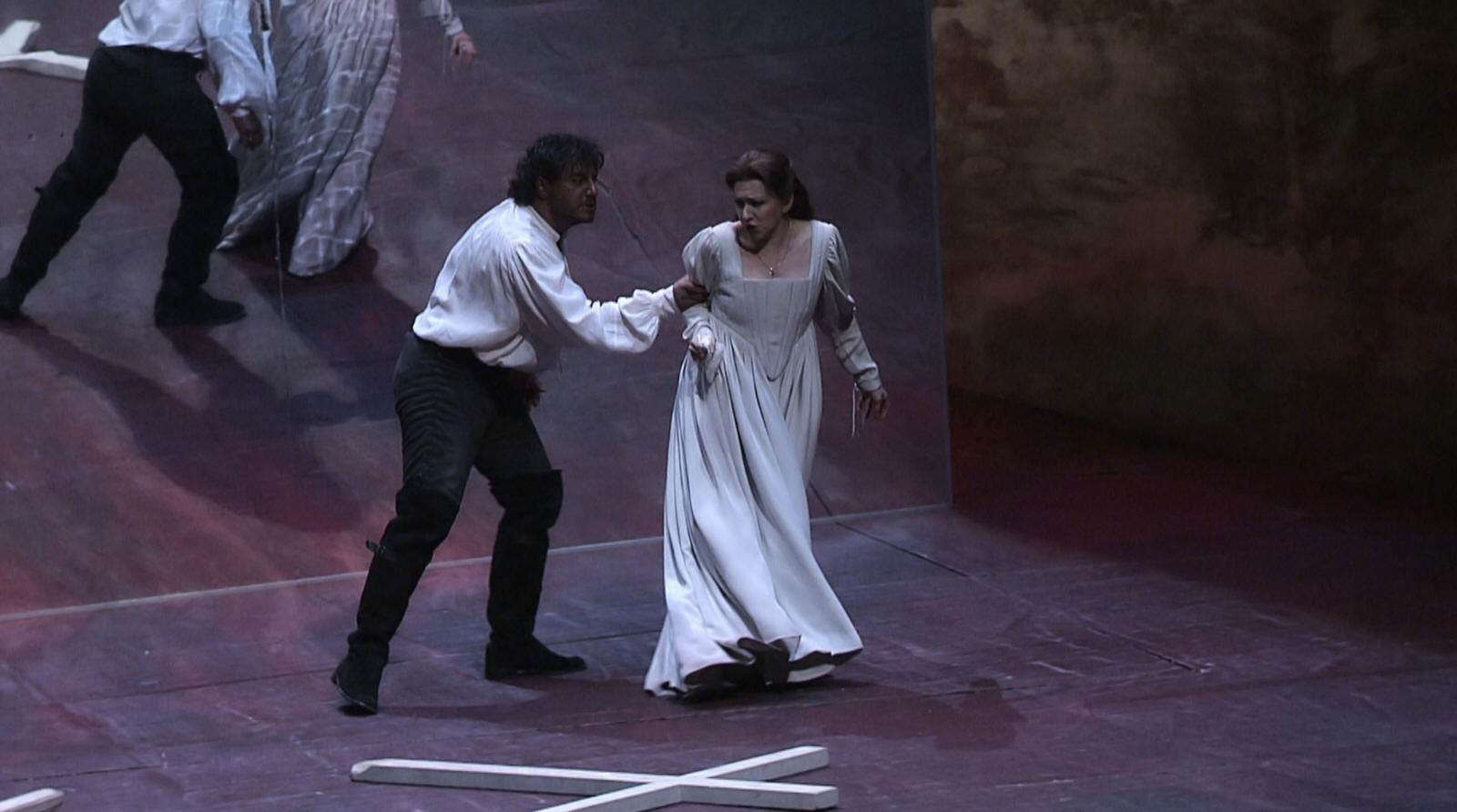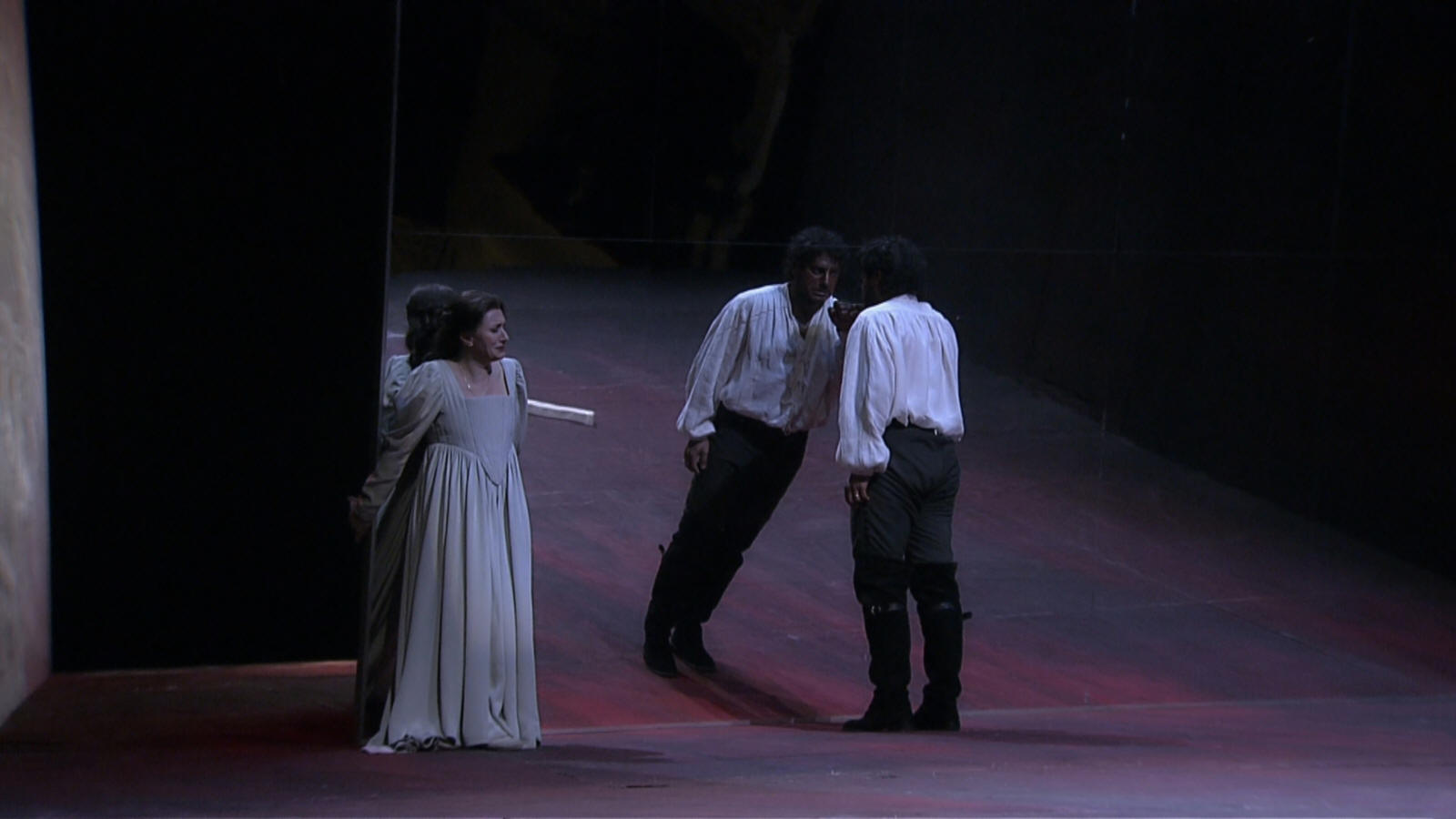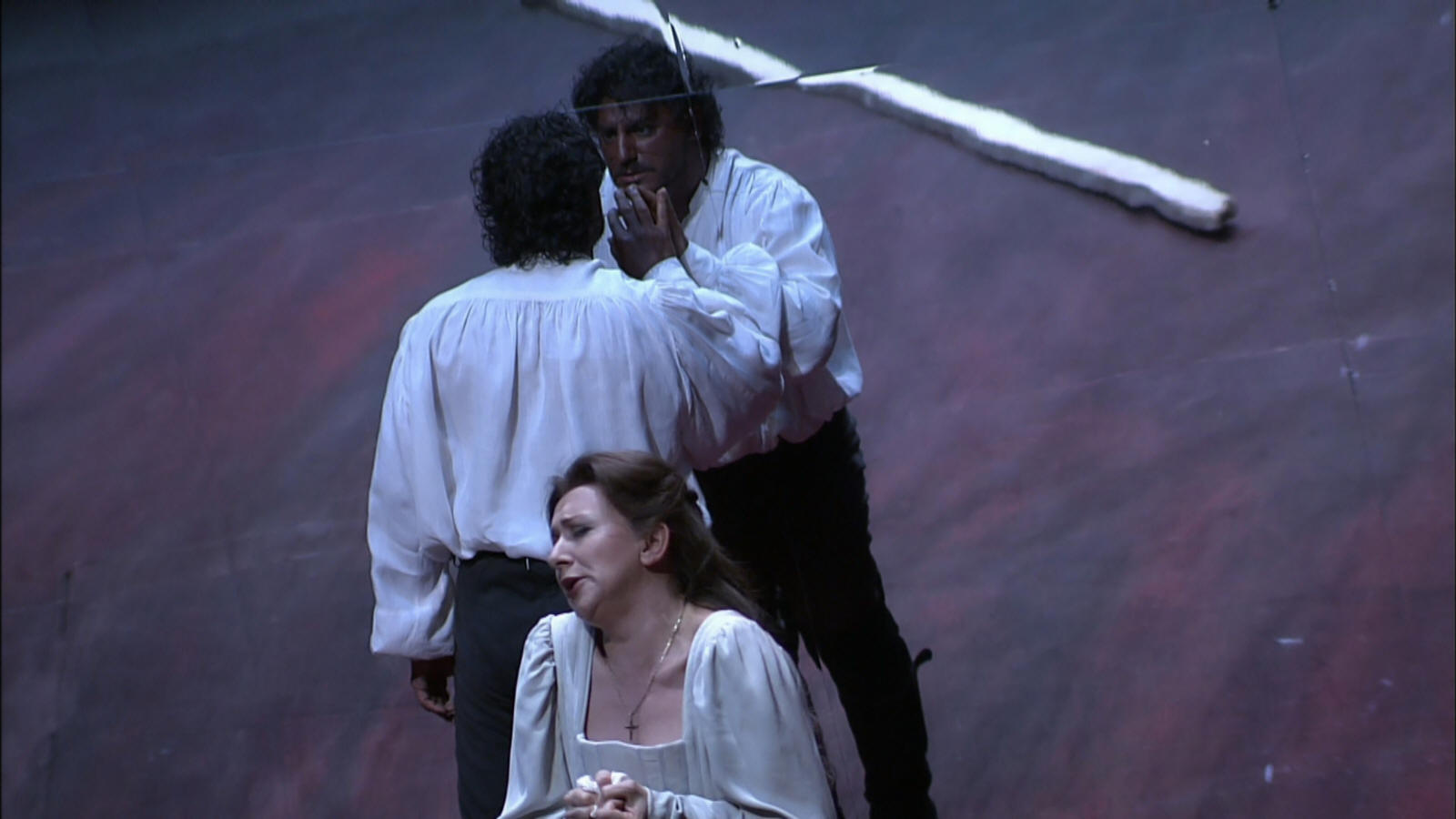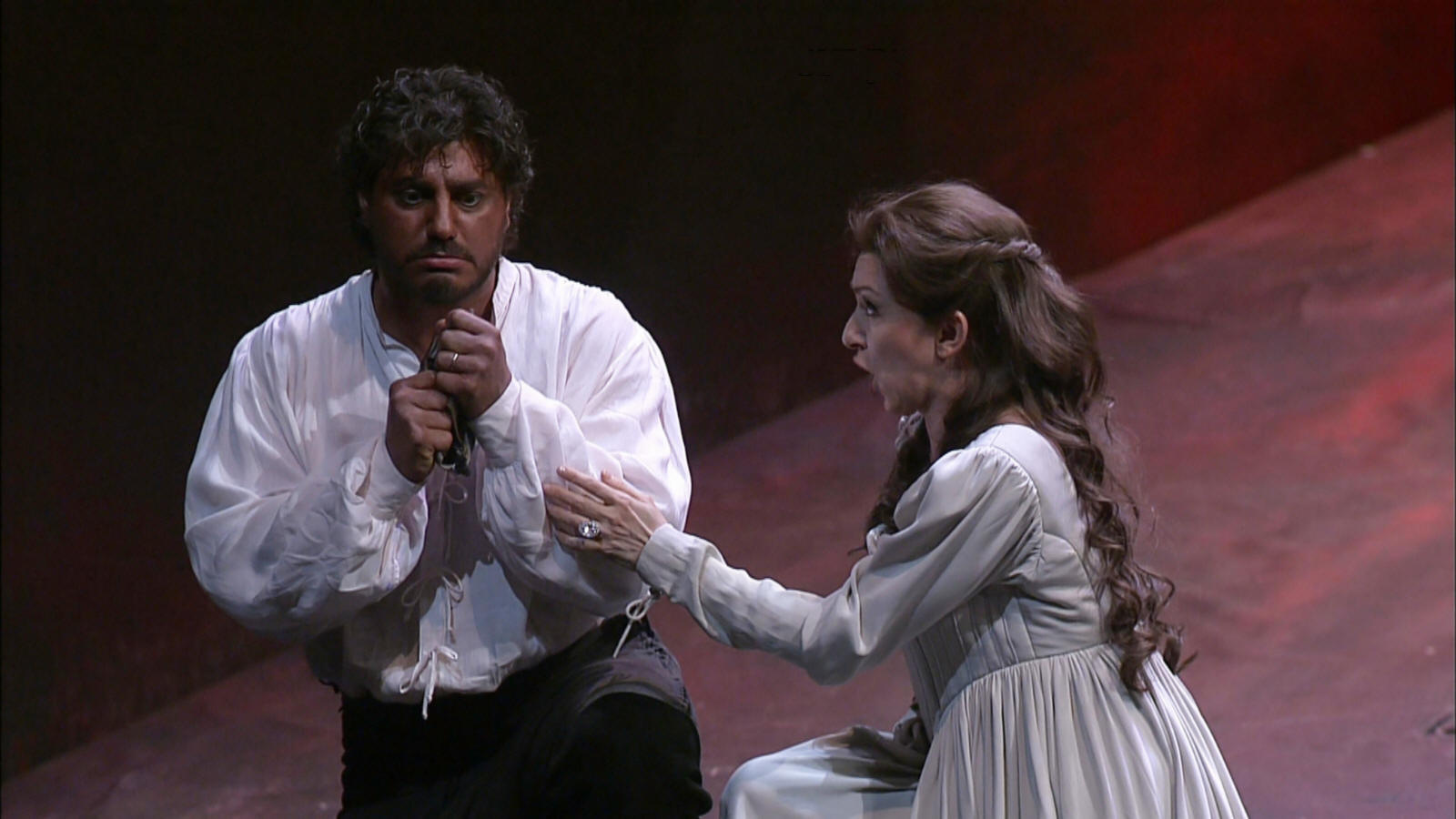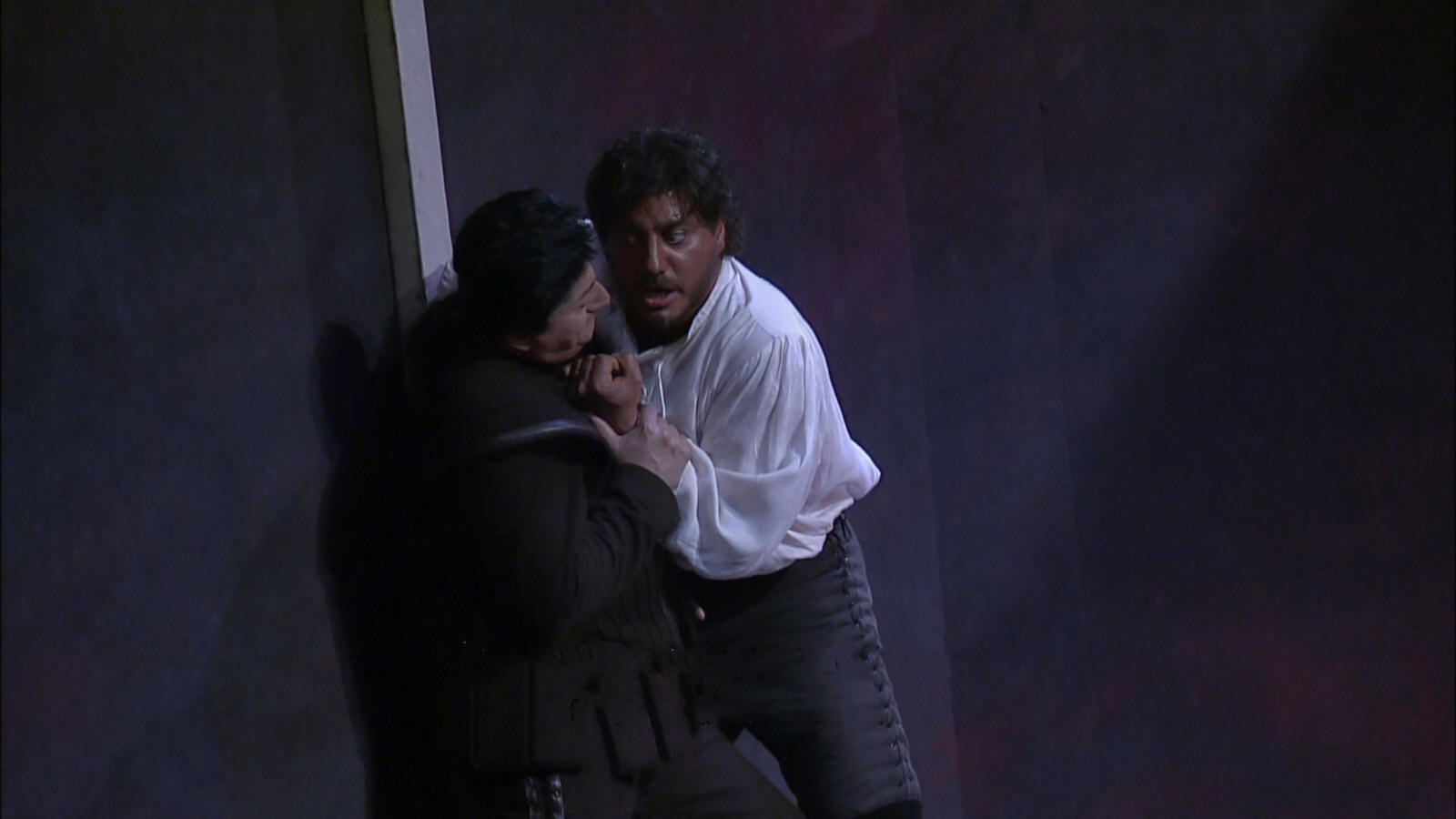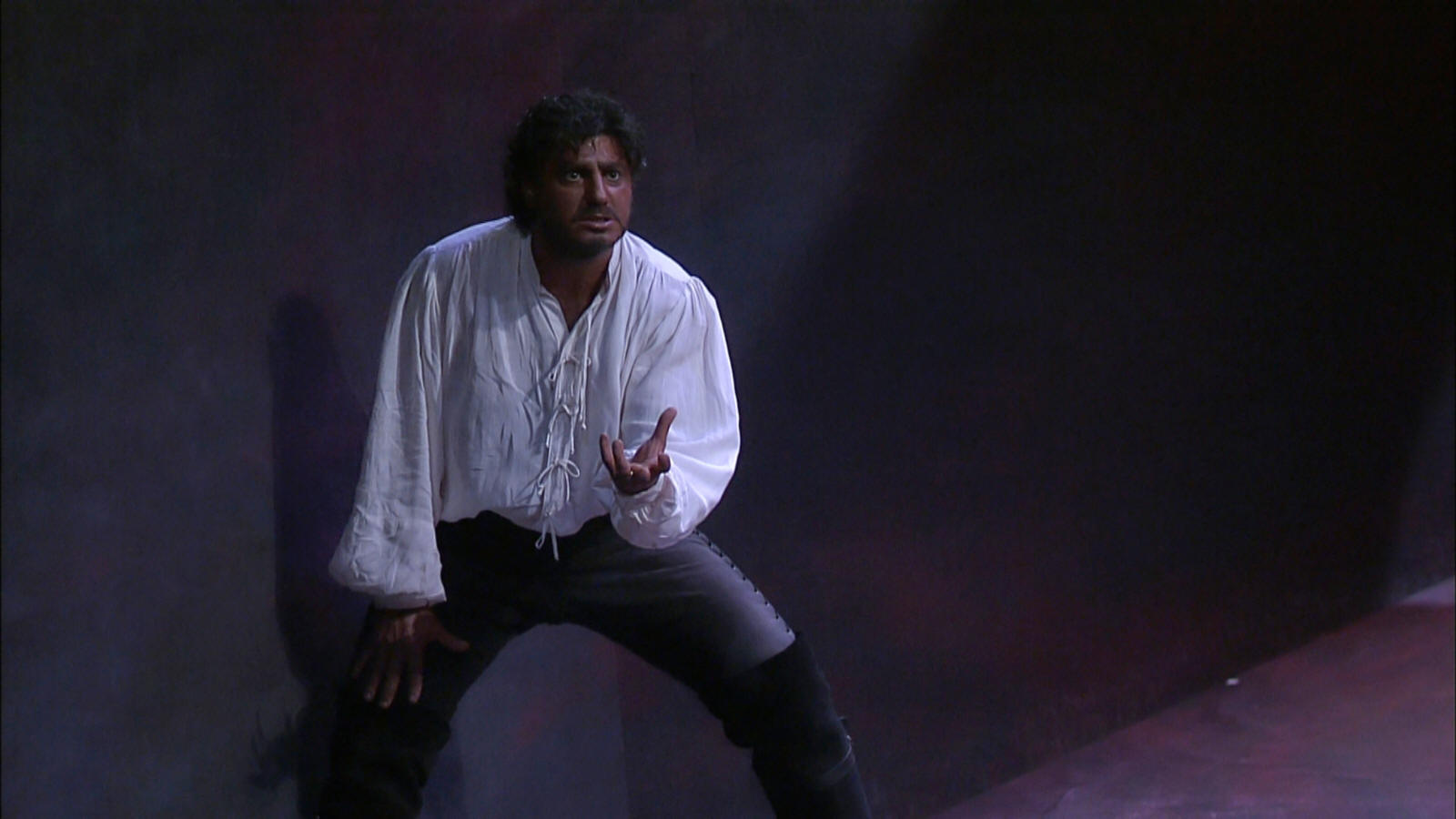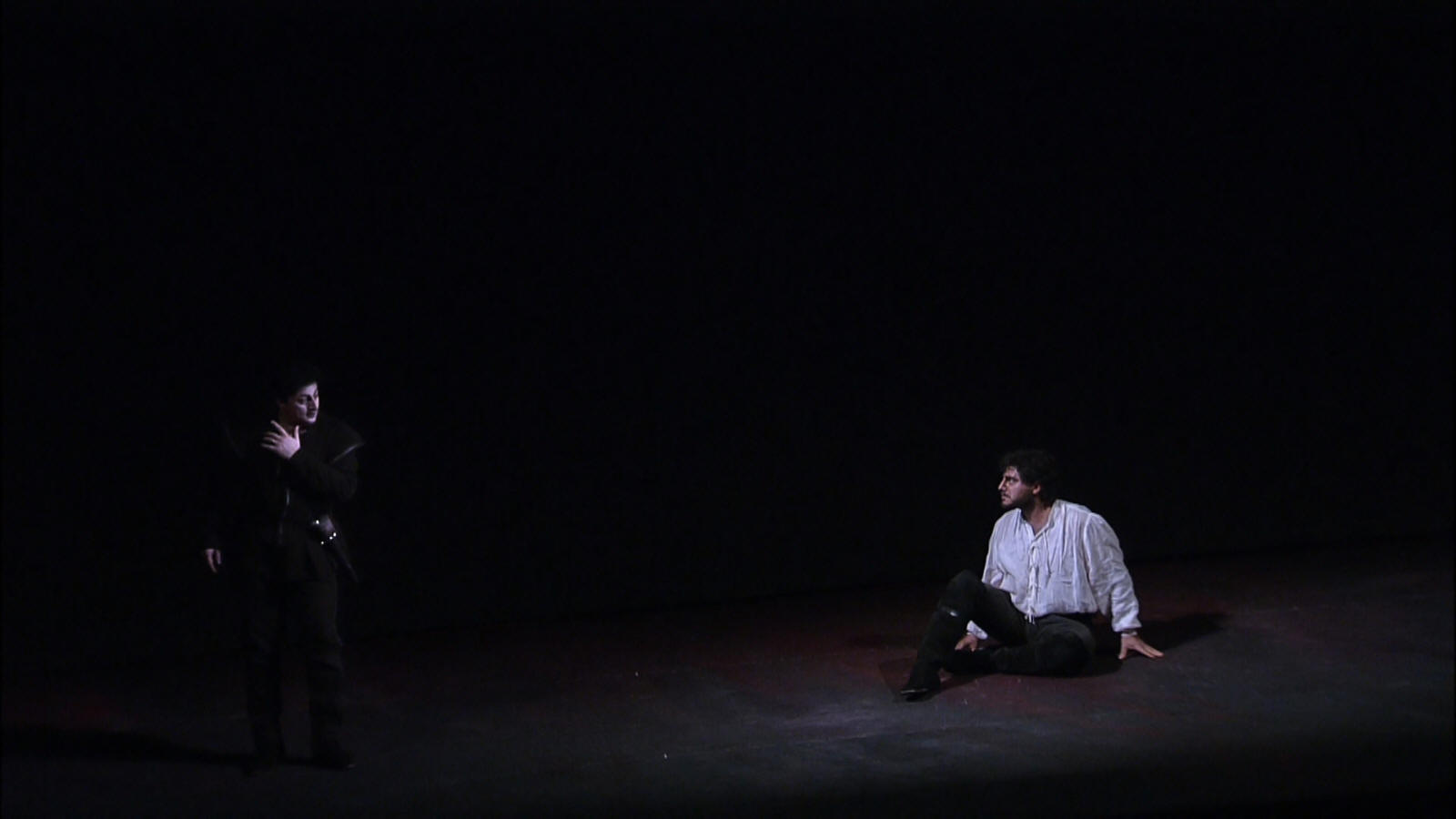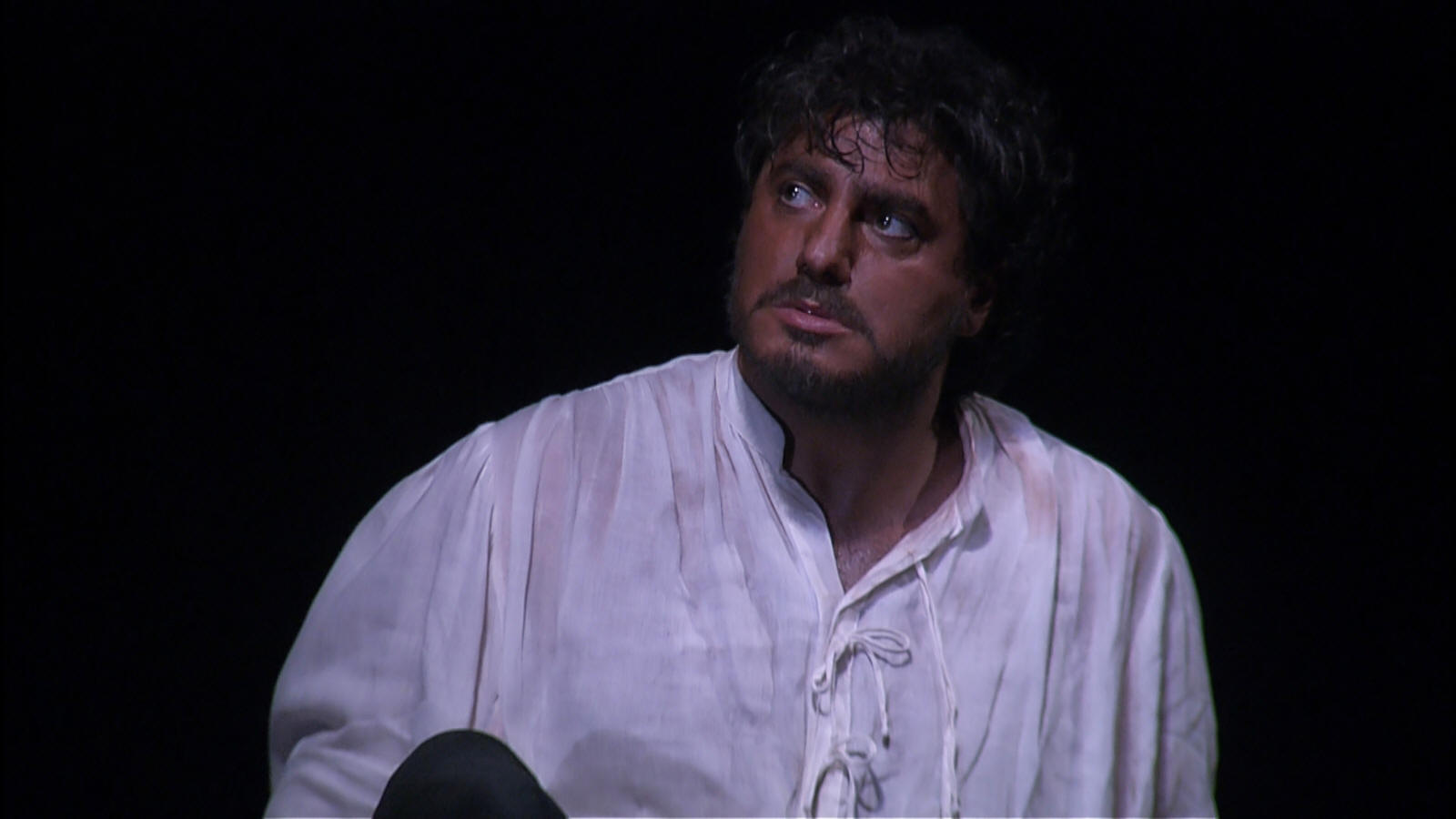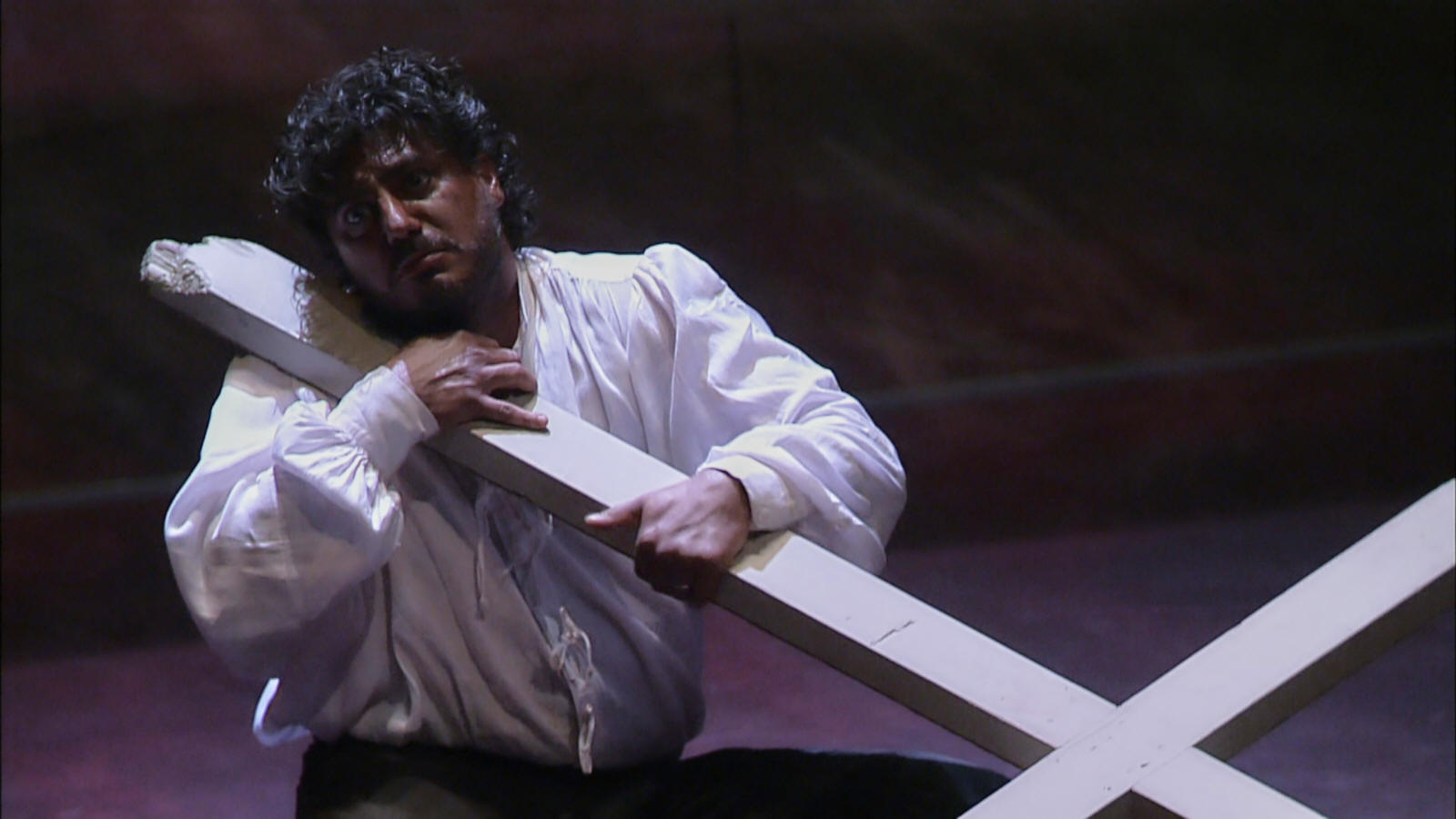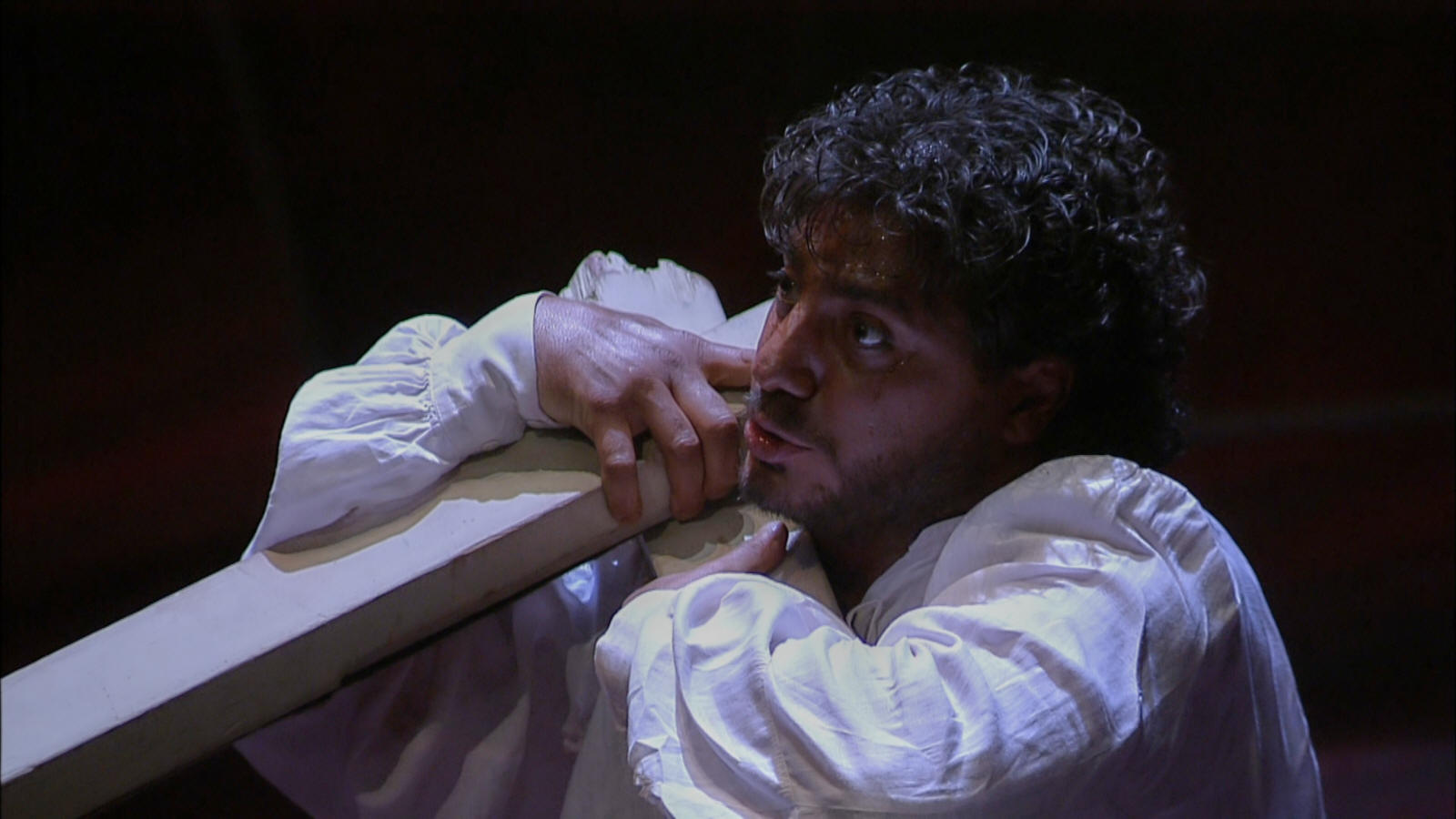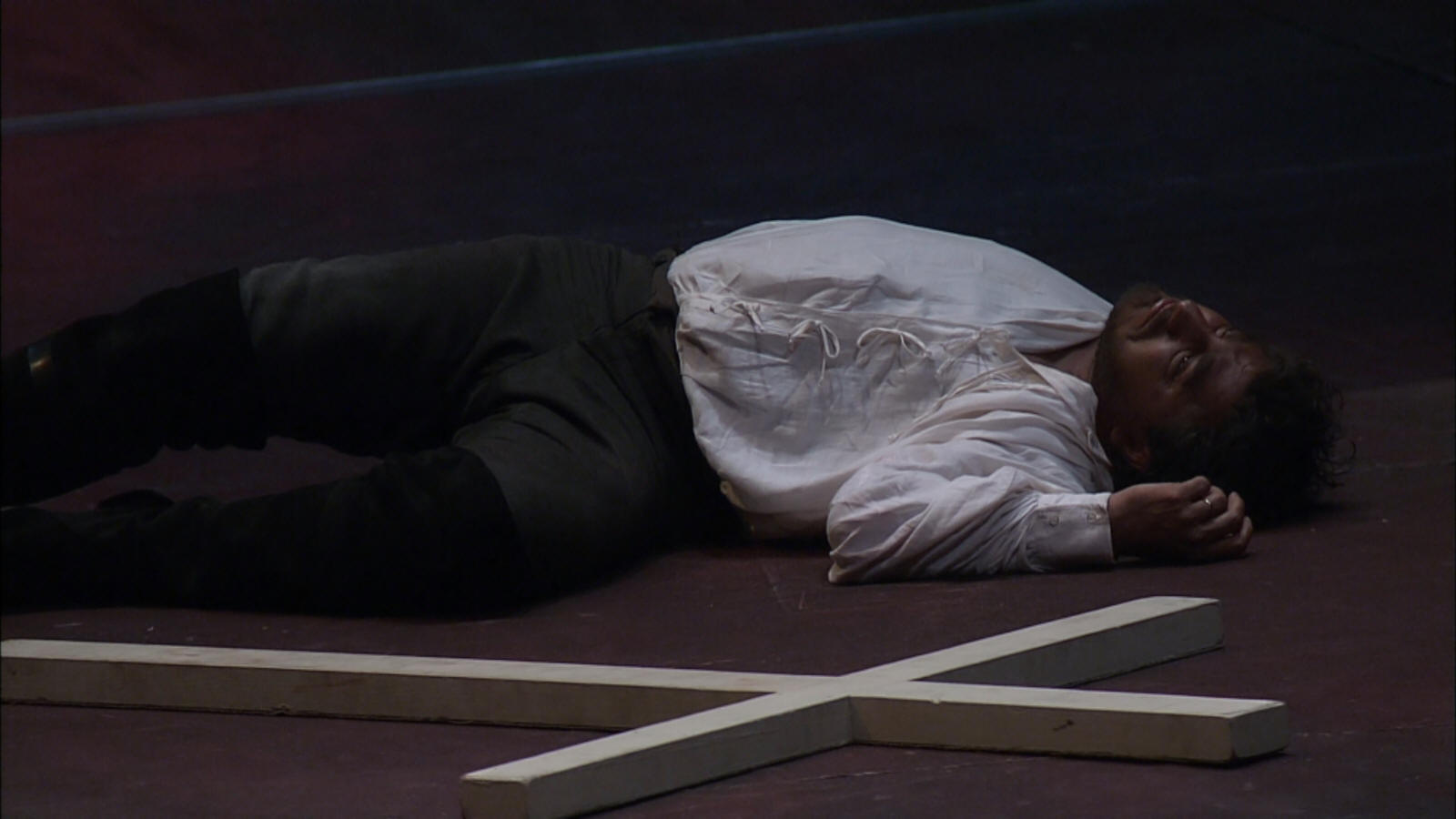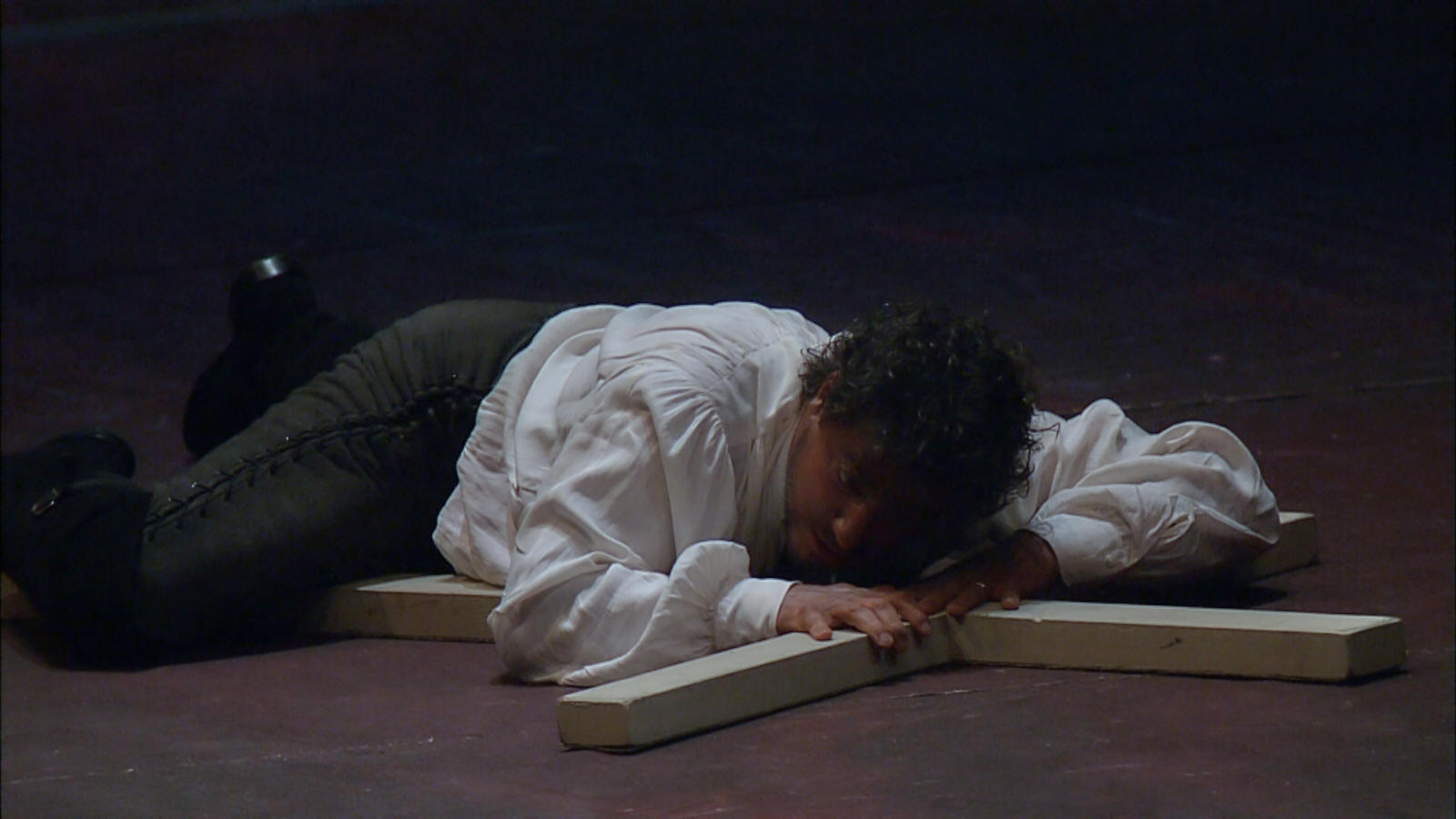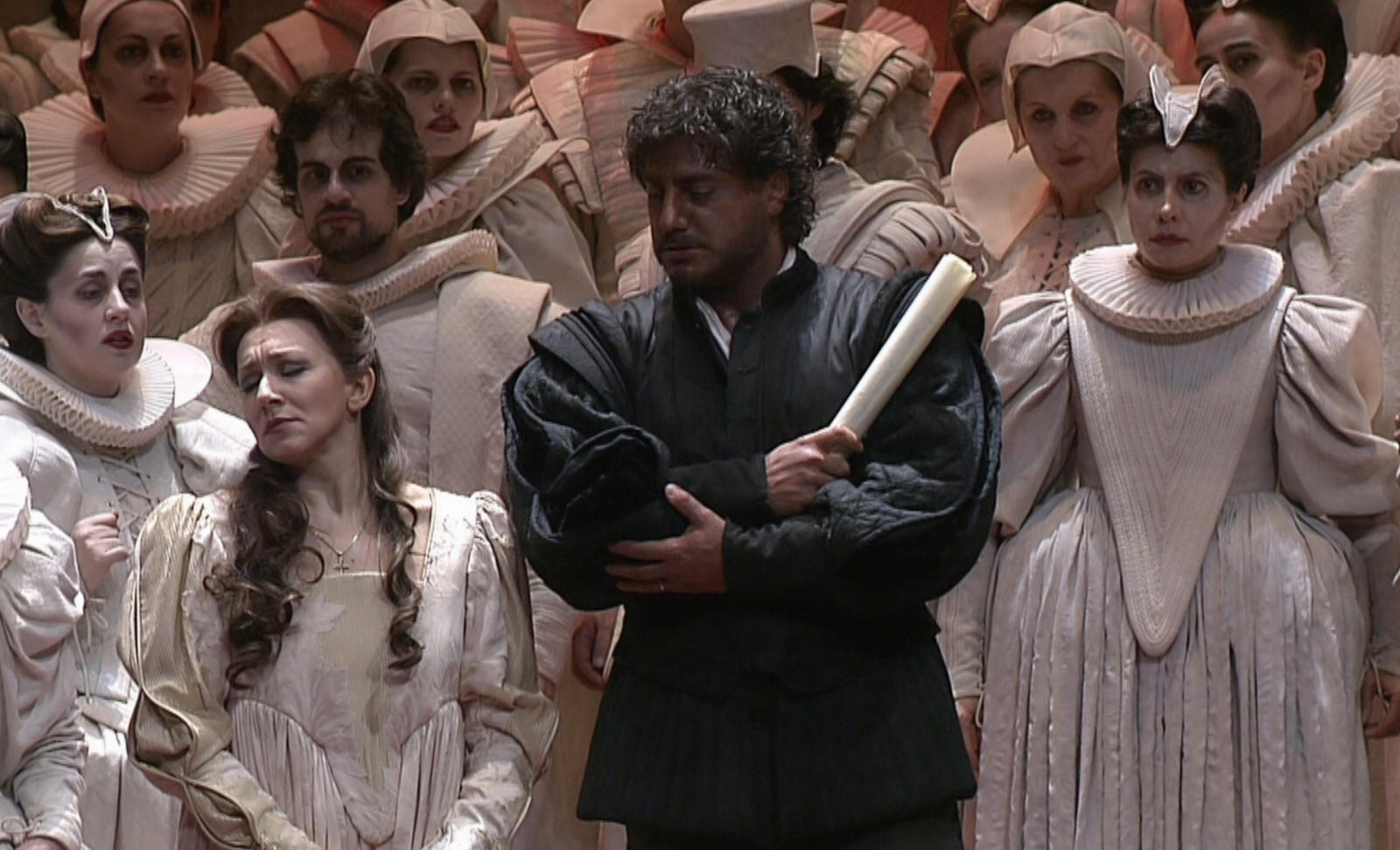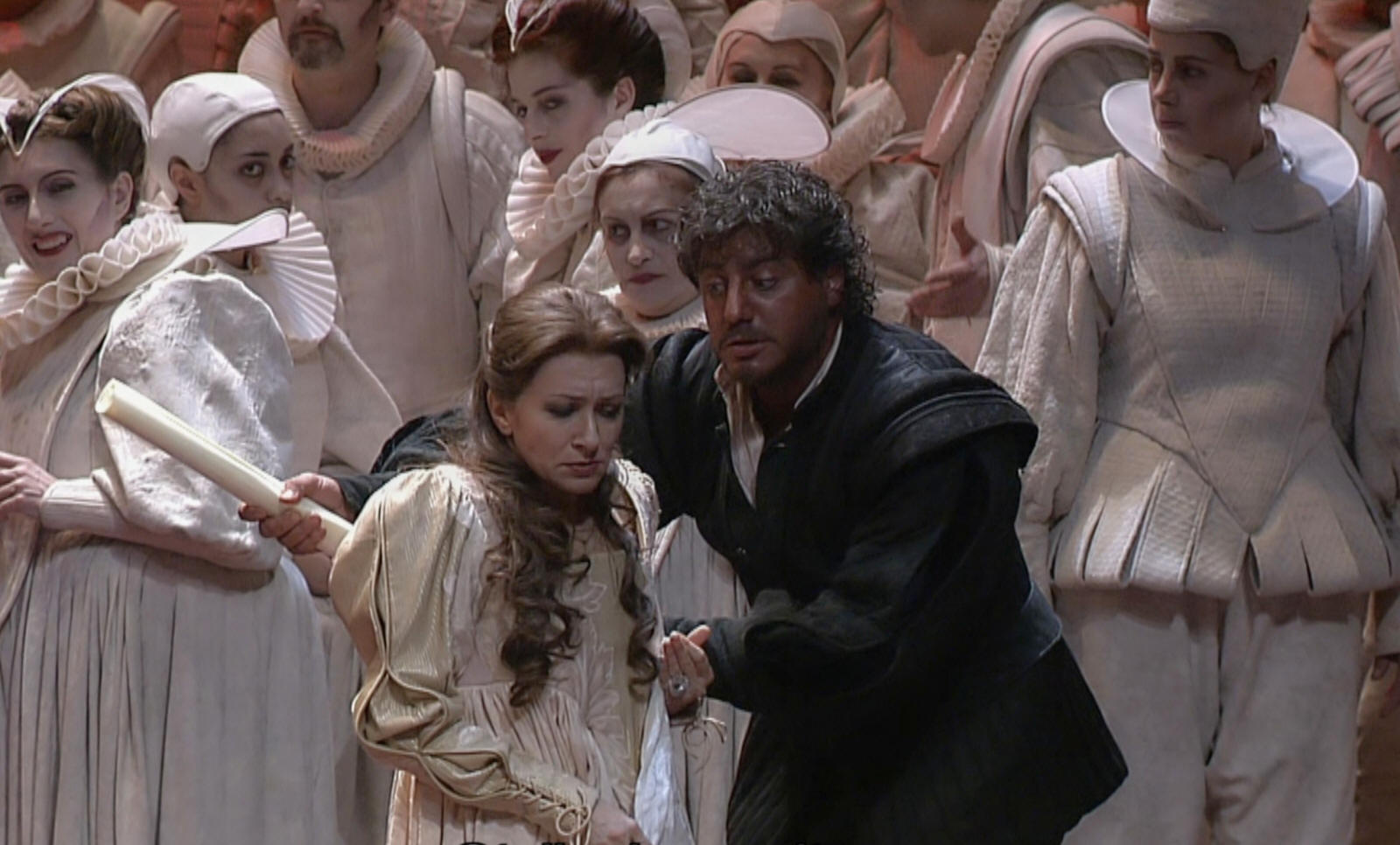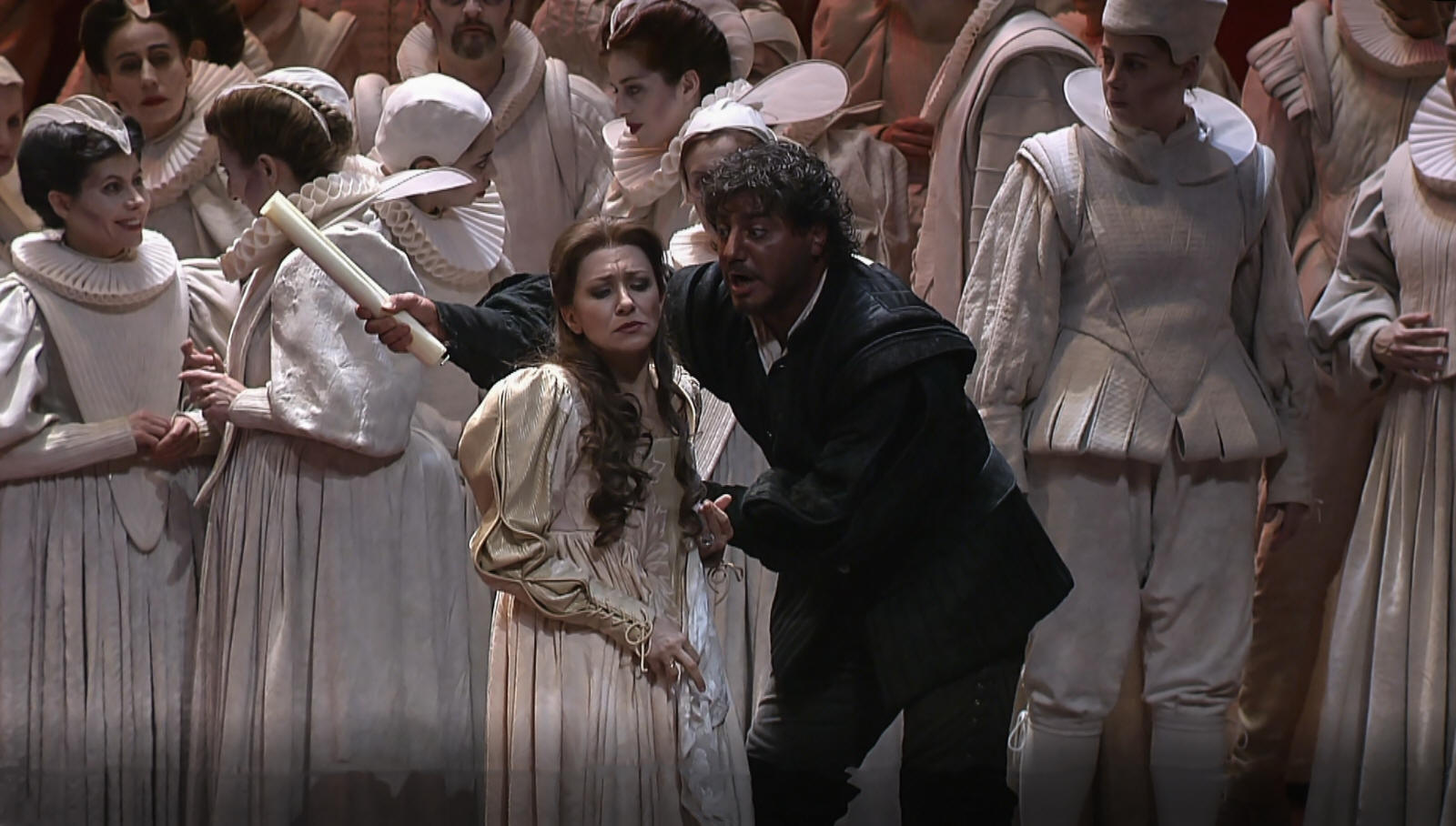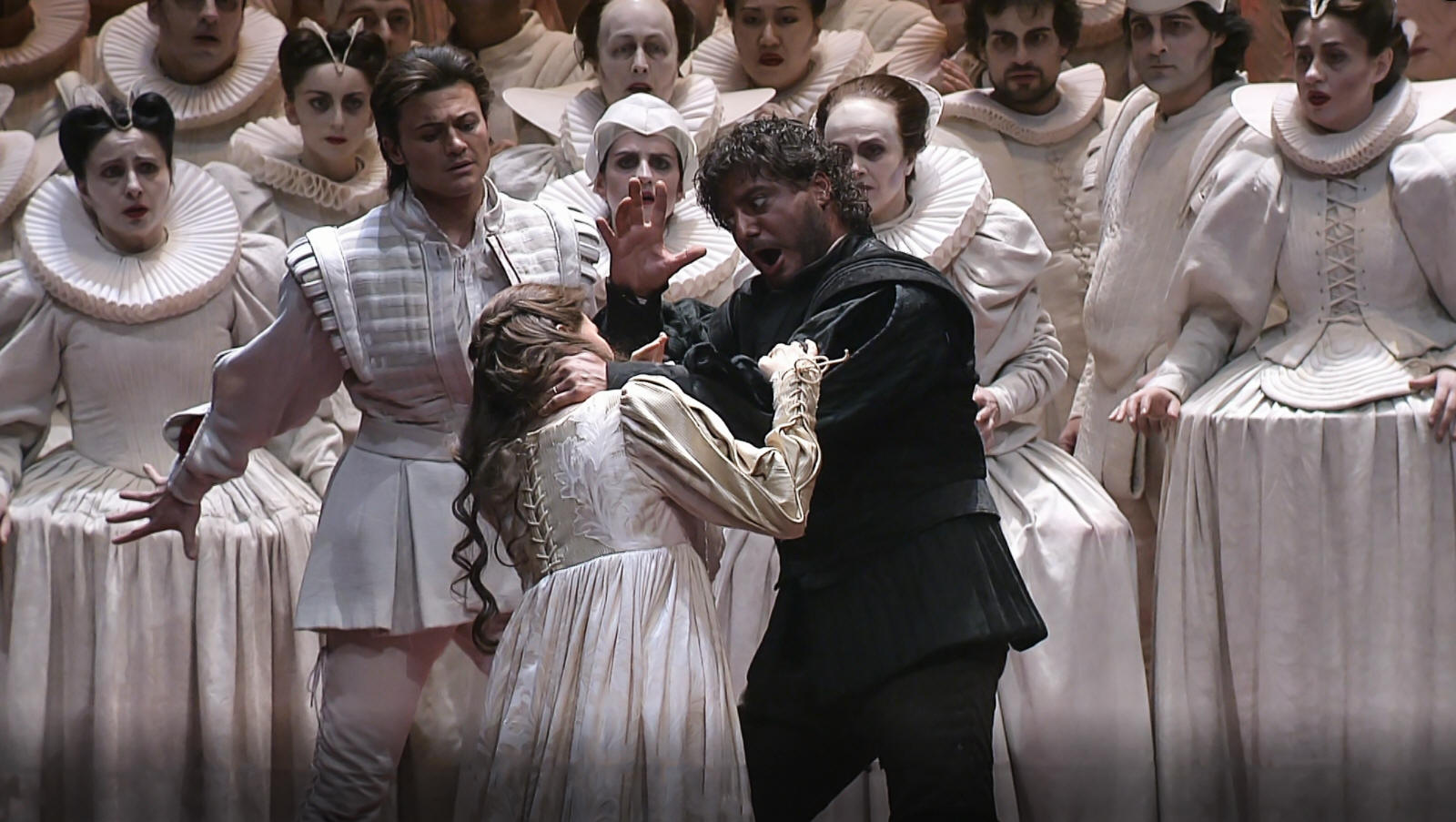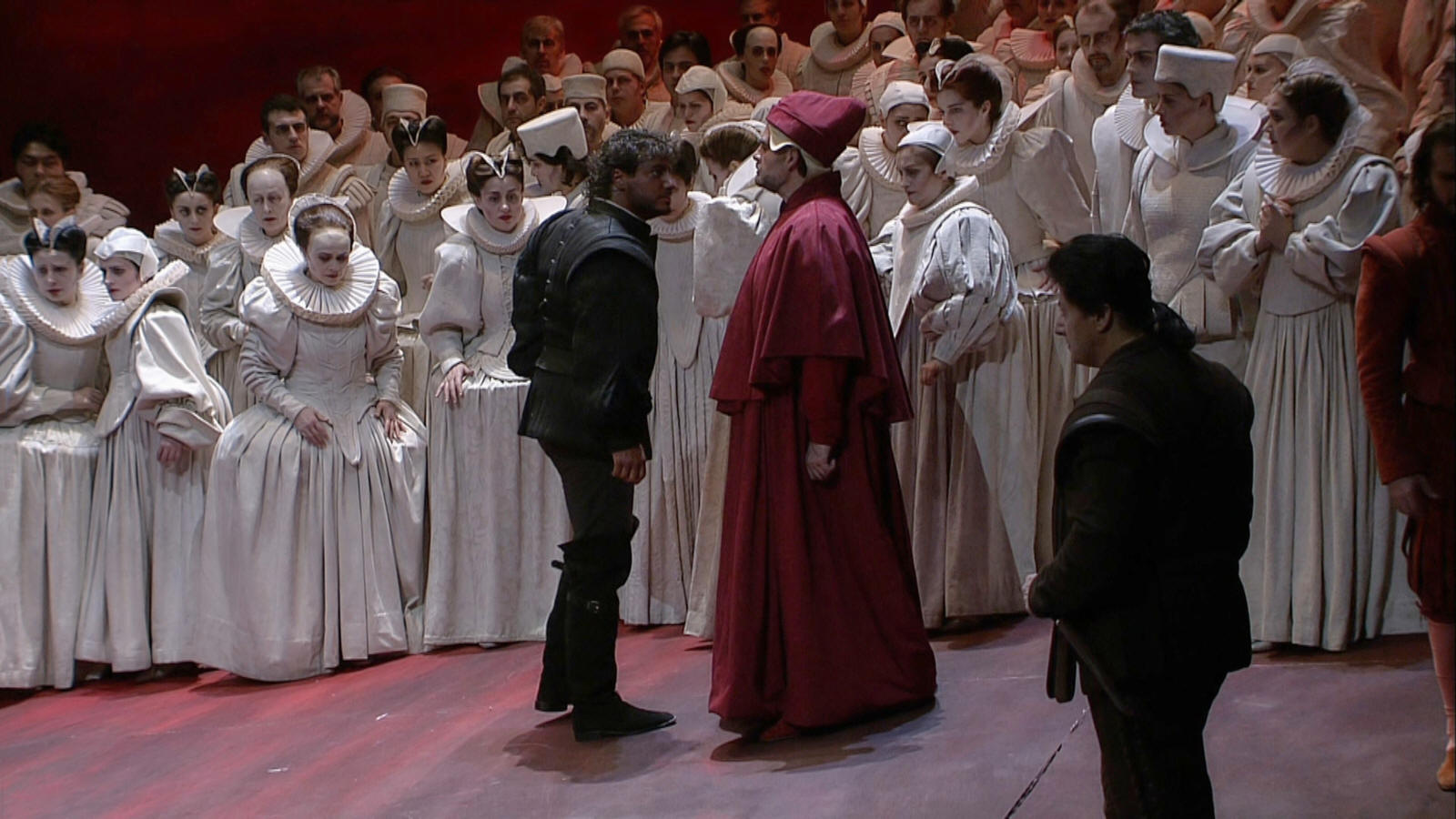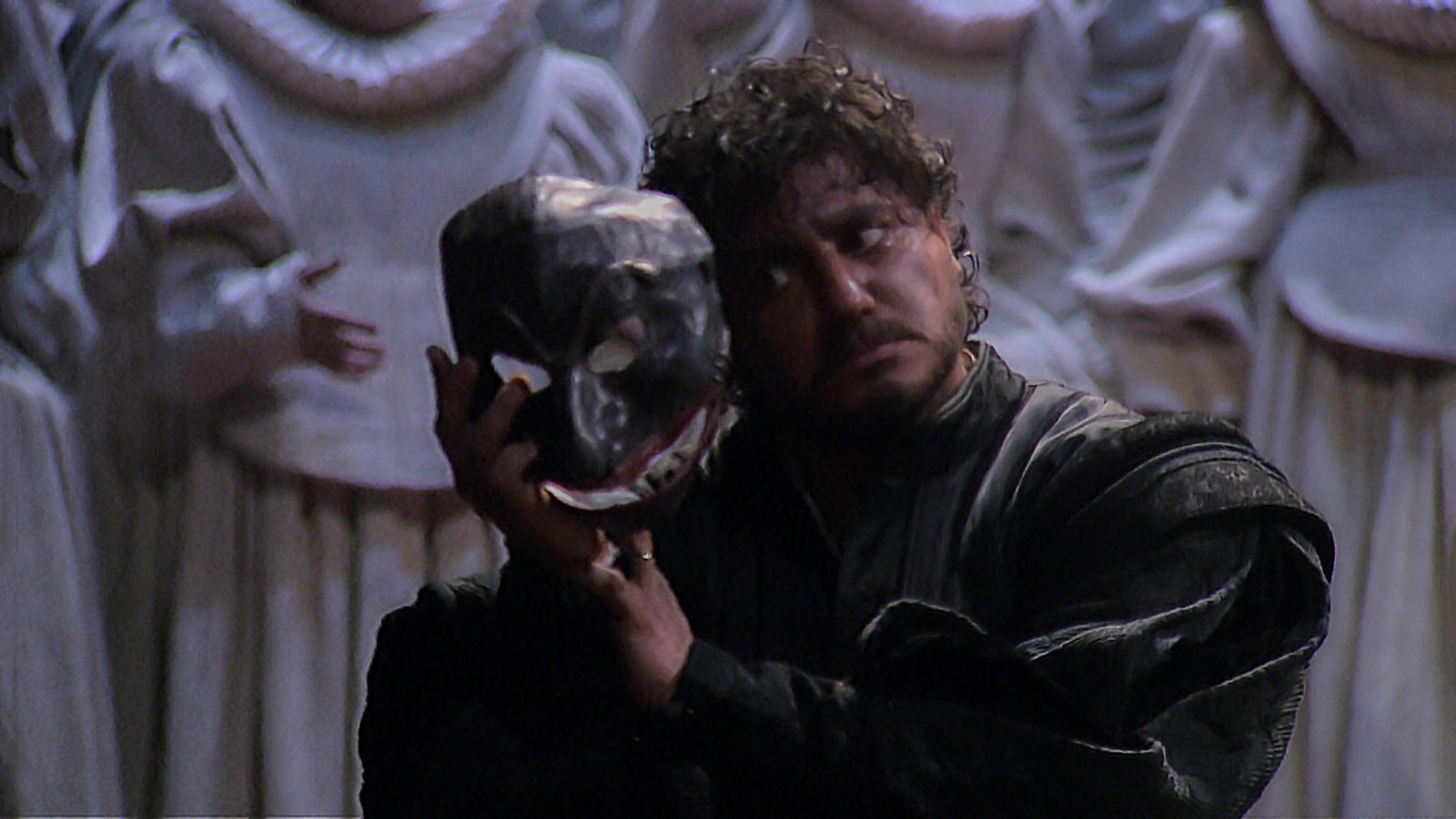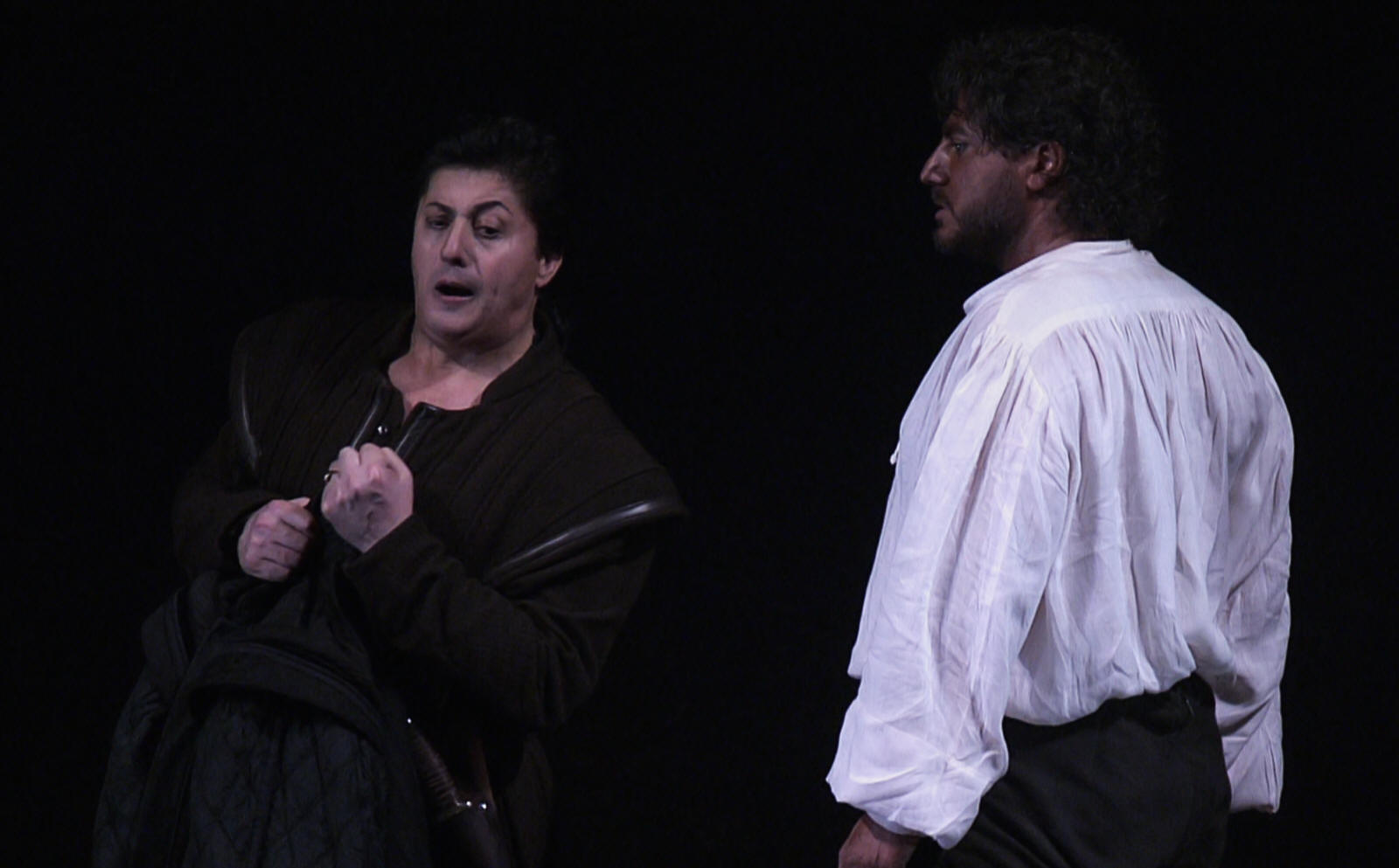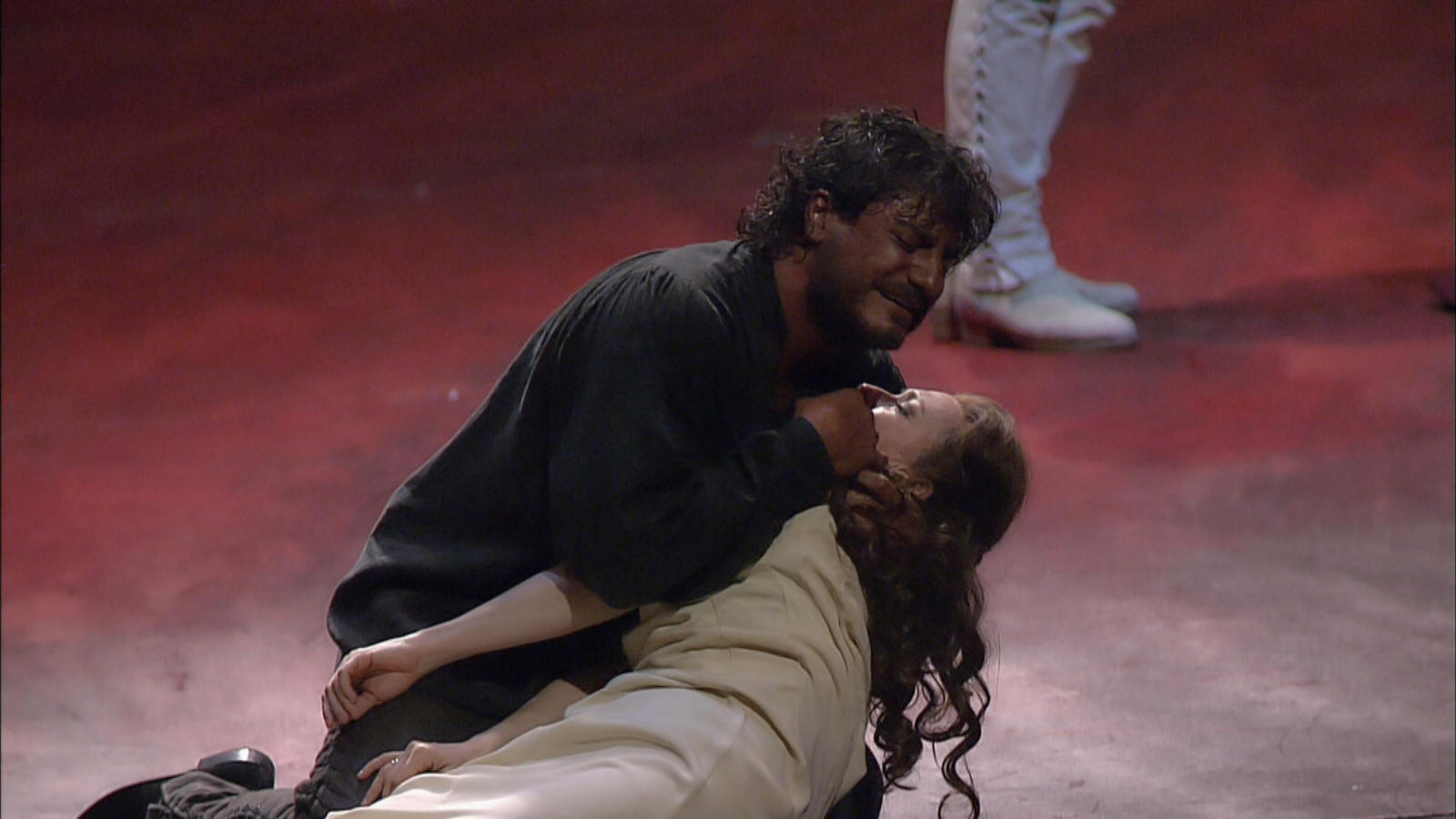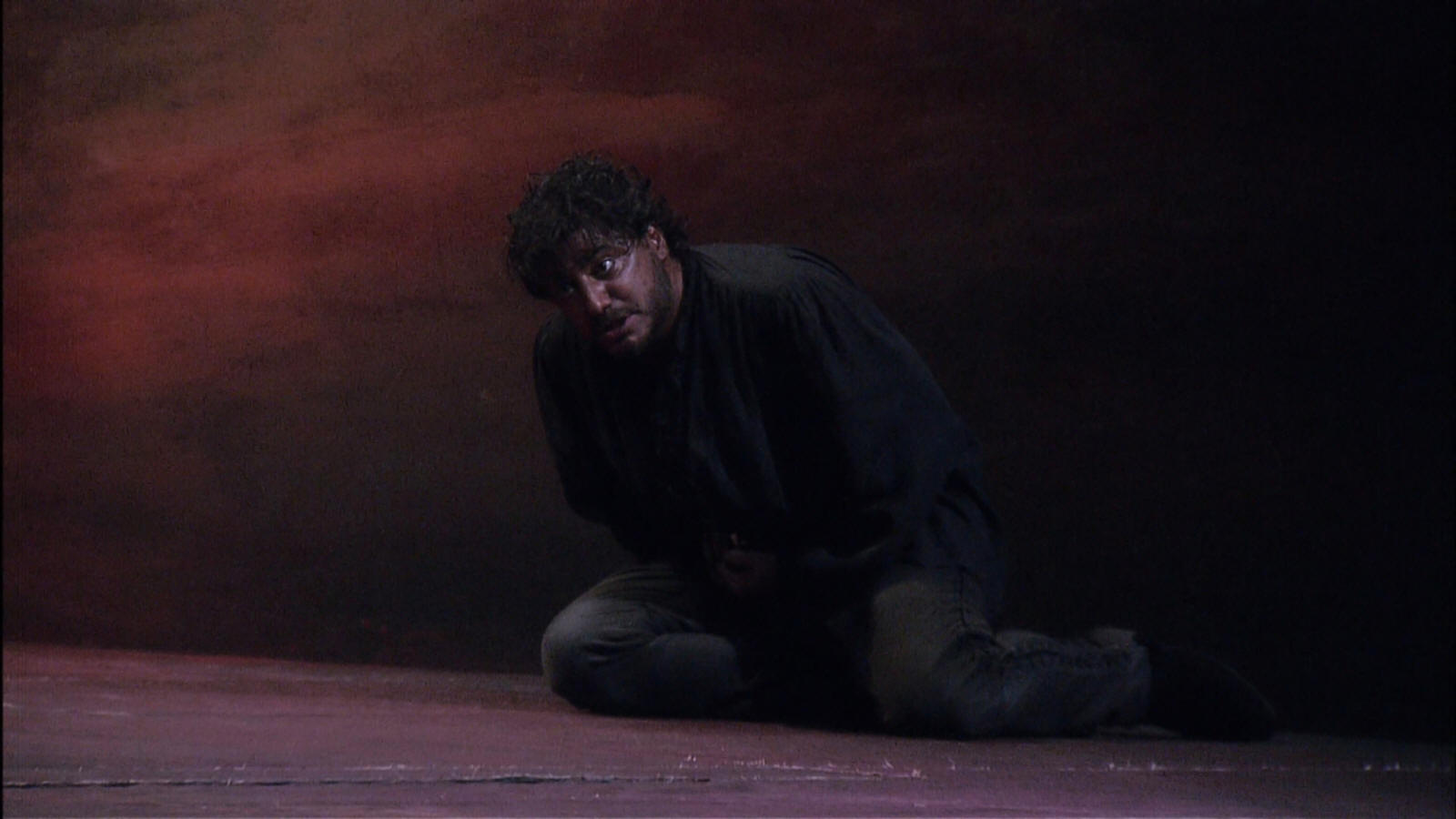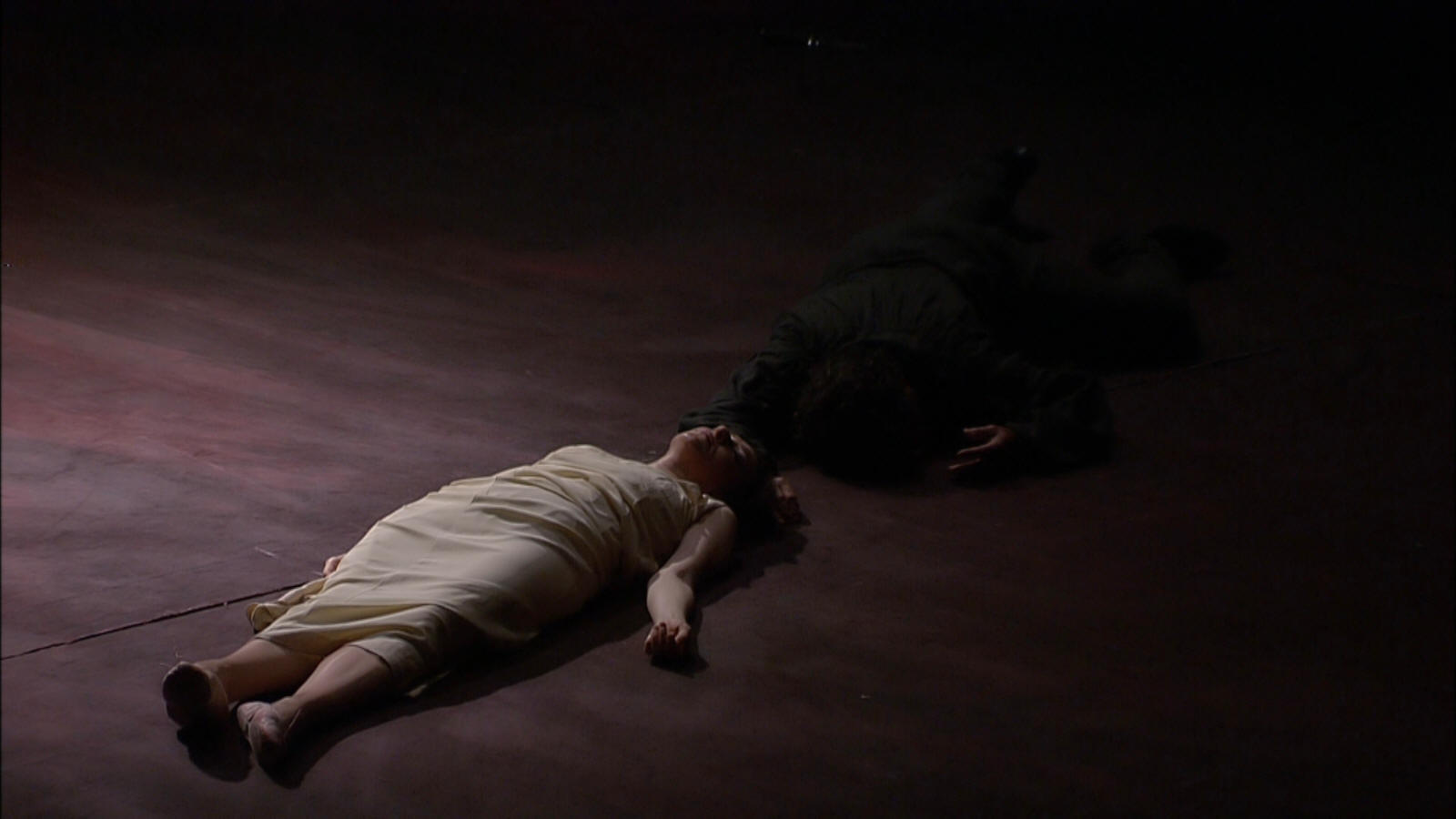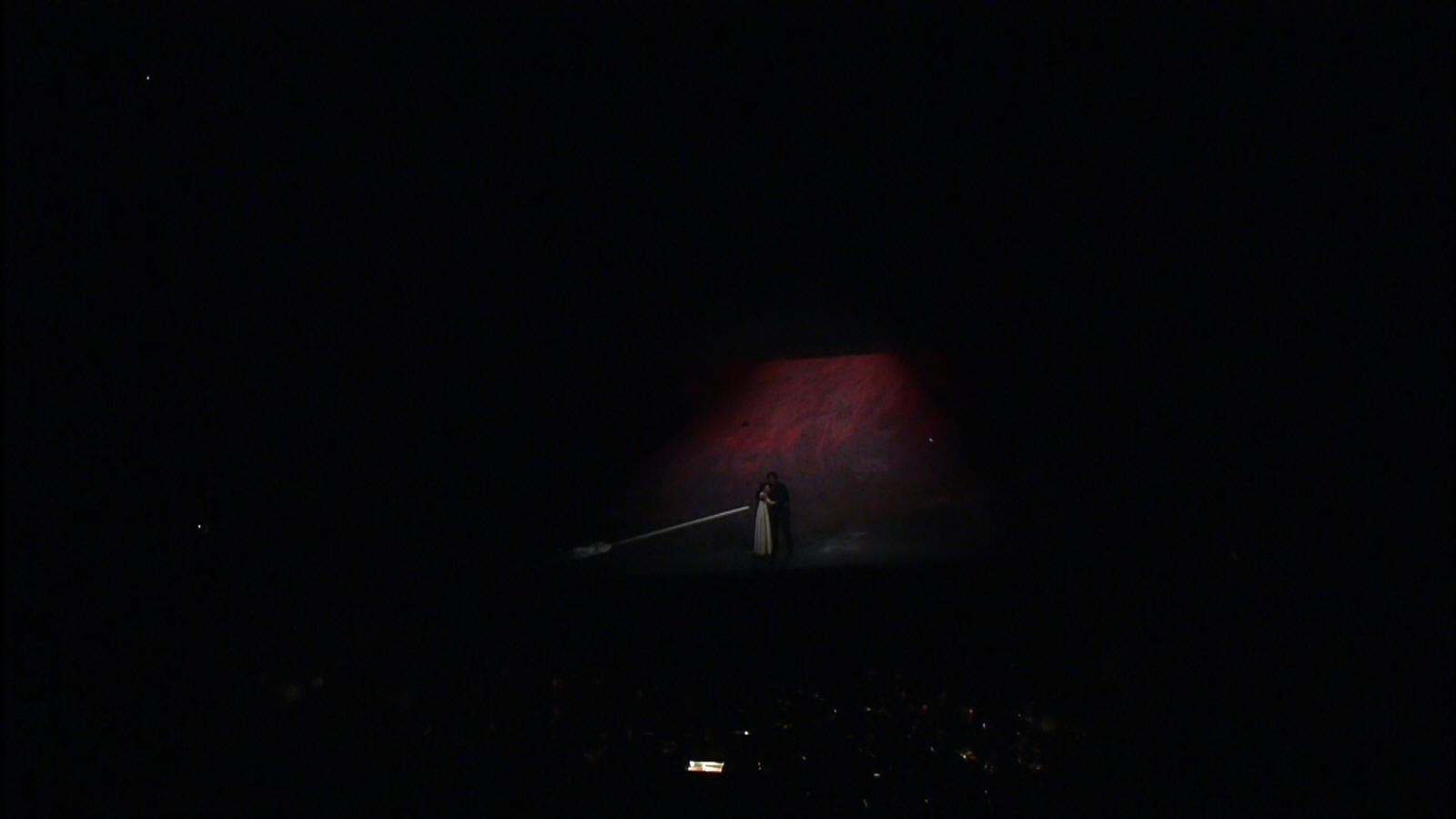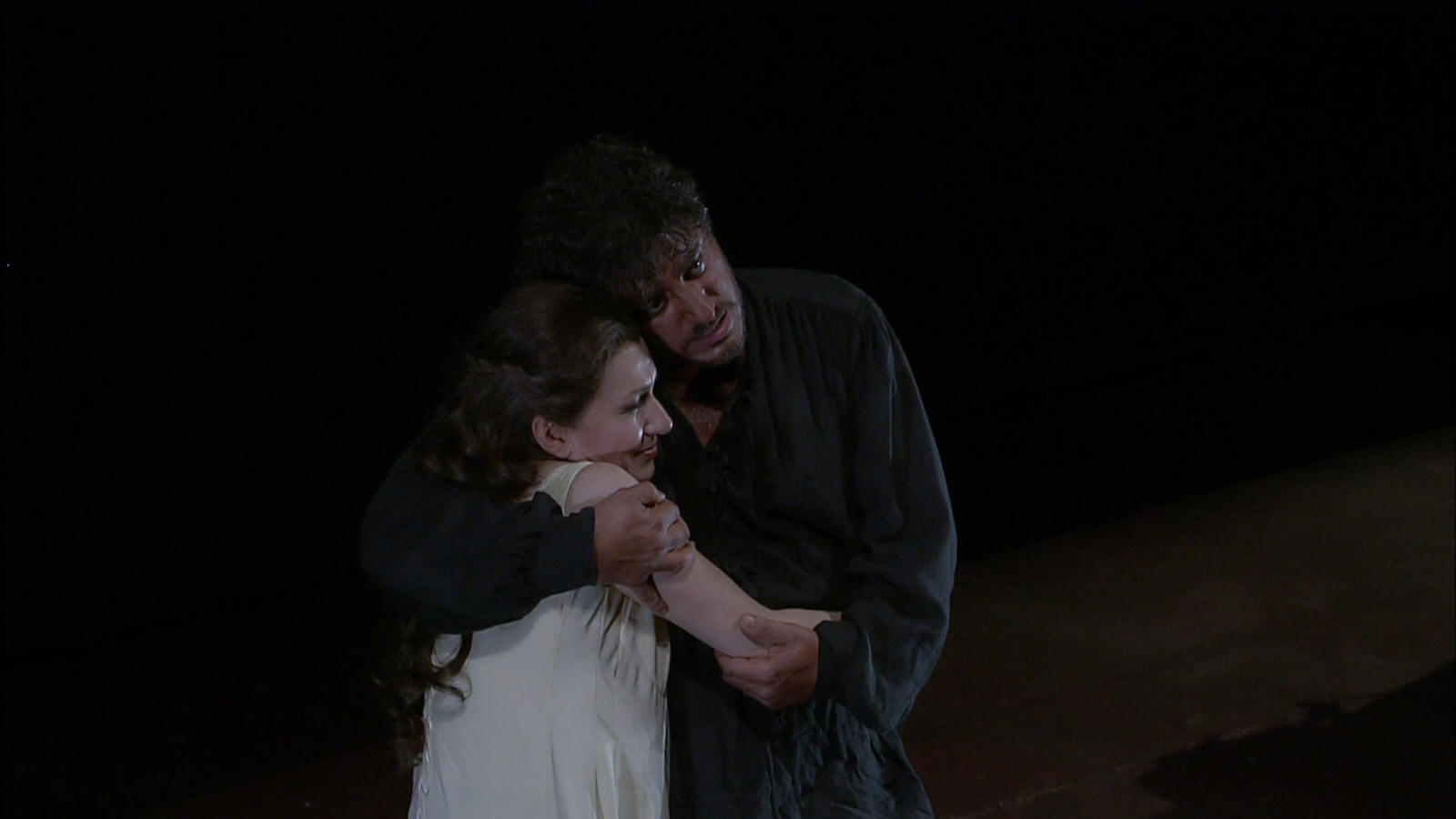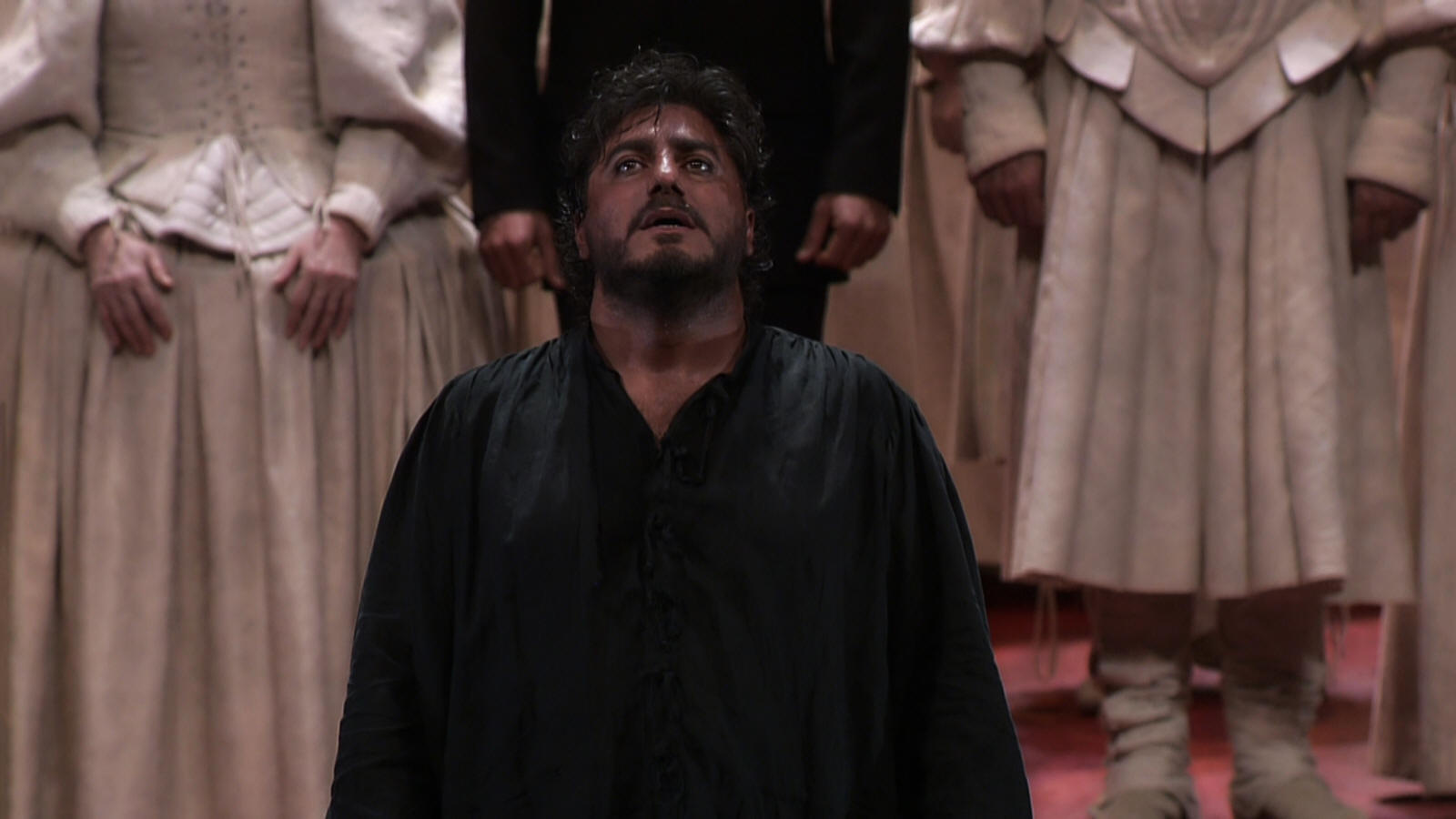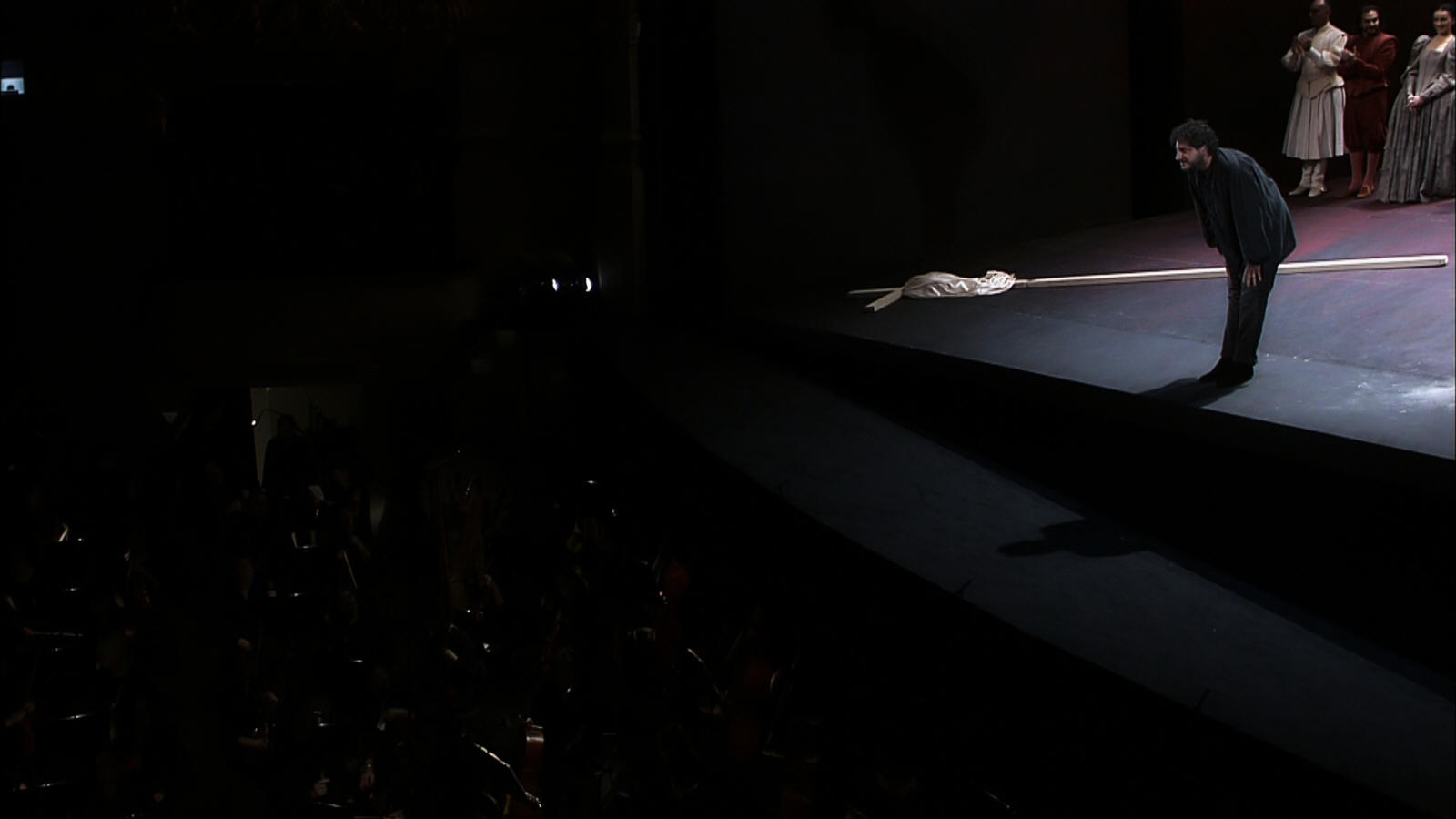|
|
|
Otello Barcelona DVD: “Cura gives a passionate, sturdy performance, marking him as one of the few tenors on the scene today able to perform the role in a convincing manner. Cura's throaty timbre can grate in more lyrical roles; here that very thick sound reinforces Otello's masculine authority. ..” Opera Today
Otello Barcelona DVD: “…José Cura… sings and acts here with an inwardness and intensity which make a profound impression. With strong conducting from Antoni Ros-Marbà, the whole cast collaborate to give us the truth of this desperately upsetting work, as no other DVD and few live performances I've seen of it ever have.” BBC Music Magazine
Otello Barcelona DVD: “José Cura remains a somewhat frustrating singer--he strains, sings at half voice more often than he ought to, and occasionally makes truly unappealing sounds. But when he opts for sheer power or emotional truth, he is breathtaking--more Vickers than Domingo in his raw brutality and equally raw fragility. I can honestly say that before seeing this performance I had never been moved by a performance of Cura's, but this is a deeply thought-out, thrilling performance you won't soon forget. This is not a perfect show but it packs a considerable punch and serves Verdi’s drama as successfully as I’ve seen in years.” ClassicsToday
Otello Barcelona DVD: “José Cura remains something of an enigma. He's an intelligent actor with the ability to get inside a role; he can sing exquisitely with beautiful phrasing and scrupulously controlled tones; but then he produces great stretches that simply lack the 'wow factor' a tenor ought to have. This is true in this production from Barcelona. Cura is, at times, thrilling, his portrayal totally believable." Opera Now
Otello Barcelona DVD: “José Cura turns Otello into a raging animal. Stalking the stage like a wounded lion, he turns from conquering hero into a haunted figure tortured with jealousy. When Otello savagely cries for vengeance, Cura dominates the stage. When he collapses to the floor at the end of Act III, spasmodic sobs rack his body. His cries piece the plaintive English horn solo that opens the final act. This towering Otello [is] boldly if imperfectly sung in a baritenor of tremendous impact. This intense Otello stuns both the ear and the eye.” Opera News
Otello Barcelona DVD: “Cura and Stoyanova carry the musical aspects of this production. Cura is an intelligent singer and a fine actor, and his voice has the proper weight for this role, even though he chooses to emphasize Otello's pathos over his strength. He plays a little loose with the score from time to time, and sometimes he slides between notes a little more than I would like, but I wonder how many of today's tenors could outdo what he does here. Stoyanova is no less intelligent as Desdemona, and she sings with warmth, strength, and great control. These two singers have good chemistry together as well. On the other hand, Ataneli is a lightweight, unconvincing Iago, and none of the other cast members make much of an impact either. Ros-Marbà glides over the surface of the score creating too little atmosphere and almost as little drama. The chorus and orchestra have their thin and ragged moments too. None of this is fatal, but this Otello works best when it centers on Cura and Stoyanova, which, thanks to Verdi, it can do most of the time. This, then, is not the Otello of one's dreams, but the contributions of Cura, and Stoyanova are such that it is highly desirable nonetheless.” ClassicalNet
Otello Barcelona DVD: “Cura considers himself something of a polymath. Singer, composer, conductor and author are all skills he claims and has practised [but] in his portrayal of Otello in this Willy Decker production Cura shows that he still has much to learn about Otello’s character. He is not helped in his interpretation by Decker’s typically sparse sets--I use the plural ‘sets’ rather loosely. In a shoebox stage when much depends on lighting effects the only prop is a large cross. The frailty of Cura’s Otello is evident in the tender lyrical passages of the love duet when he has difficulty with the pitch at the start and in holding the legato line. Later on he tends to over-sing from time to time but nonetheless manages to convey Otello’s descent. Perhaps he is at his best in act 3 where a mid-stage mirrored wall is used for Otello to look into. Meanwhile the cross has had a hard time of it having been flung down by Otello with a great clatter after his assault on Iago, when it is used as a weapon. It is also flung down tin the oath duet Si, per ciel marmareo giuro! when Otello’s destruction is irretrievable. In these dramatic moments Cura’s big-boned voice is heard at its best. With greater experience and stage direction, and perhaps props, Cura will surely, in the coming years, give better interpretations of this great tenorial challenge. But with uncompressed sound and no audience interruptions this issue has some virtues.” MusicWeb International
Otello Barcelona DVD: “José Cura had everything in his favor to be the great Otello of the post-Domingo era. He had the physical presence, the voice with some baritonal tints but easy high notes high and, also in his favor, the virtual absence of competitors. He did not, however, find a way to deepen his character, which remained somewhat flat. In this recording, coming from the Liceo, he manages to maintain the vocal and stage style. Without being a reference Otello, there are things to enjoy.” El Cultural
Otello Barcelona DVD: “The raison d’être of this DVD is undoubtedly to capture for posterity the Otello of José Cura. The Argentinean tenor’s voice – and musicality – is something one either loves or hates. He can sound a little rough and stentorian; and he has been known to commit the occasional musical excess. But given the right role, such as Otello, Cura can be very impressive. His Moor is physically imposing, full of sexual energy and animal magnetism. His burnished timbre has the baritonal heft in the tradition of Jon Vickers and James McCracken, and his acting is definitely larger than life. Stage director Willy Decker uses these qualities to the full. Otello’s seizures in Act 3 has Cura on the stage floor alternately sobbing and twitching, long after the music has stopped. Dramatically excessive perhaps, but it underscores the inner demons gnawing at him.” La Scena Musicale
Otello Barcelona DVD: “Cura gives a passionate, sturdy performance, marking him as one of the few tenors on the scene today able to perform the role in a convincing manner. Cura's throaty timbre can grate in more lyrical roles; here that very thick sound reinforces Otello's masculine authority. But Cura is a self-conscious performer, and the effects he produces are studied, premeditated. As such, they do not blend well with the coolness with which Decker approaches the opera. Then again, what can Cura do? Otello is a hot-blooded opera, and Decker's approach may ultimately not be suited to the material.” Opera Today
Otello Barcelona DVD: “In the title role, thanks to a very lively performance, José Cura draws an impressive portrait of the fragile hero.” Resmusica
Otello Barcelona DVD: “Jose Cura's voice is sometimes quite strained, but his acting and commitment is captivating and he looks the part as well. The major problem with Krassimira Stoyanova´s Desdemona is that she is off-pitch for most of the part and doesn´t quite seem to achieve that floating quality essential to lift off the part. Antoni Ros-Marbá and the orchestra play well, though not riveting. As a modern Otello it works rather well.” Mostly Opera, 16 July 2008 |
|
|
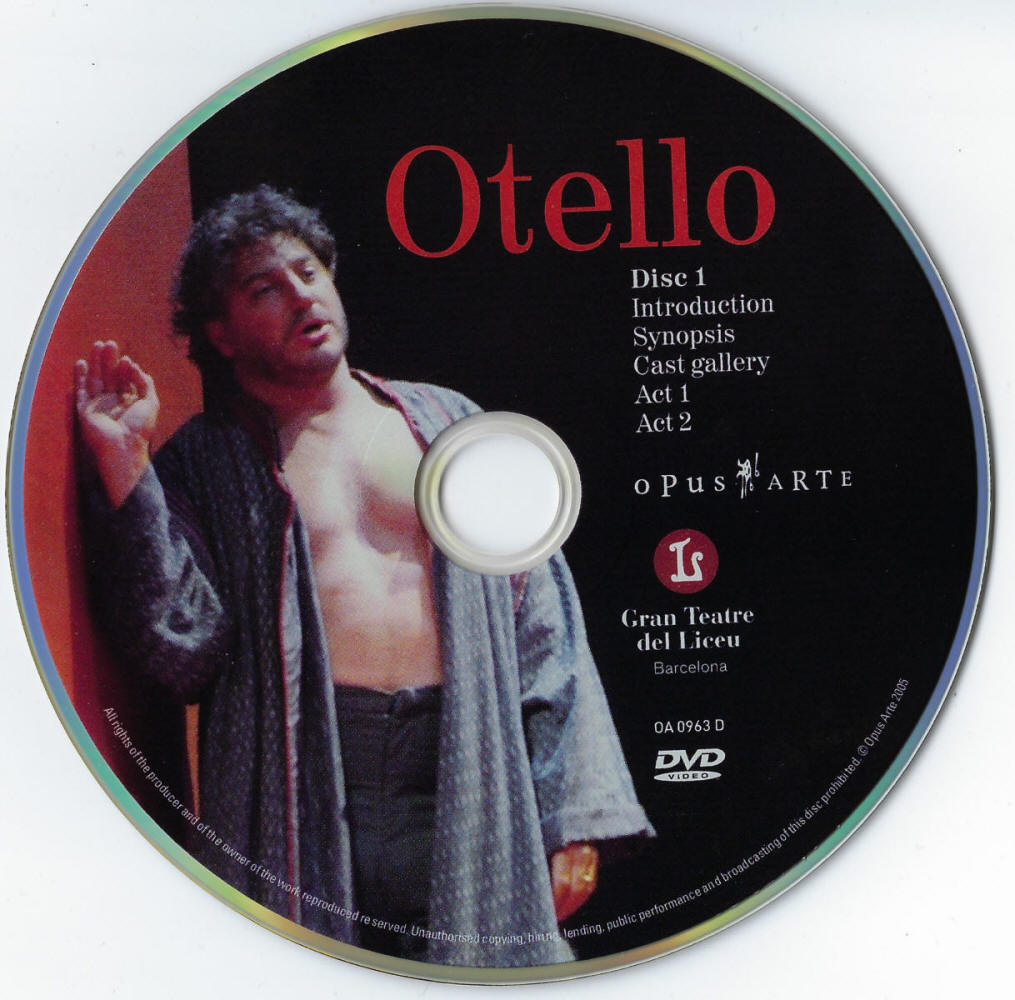
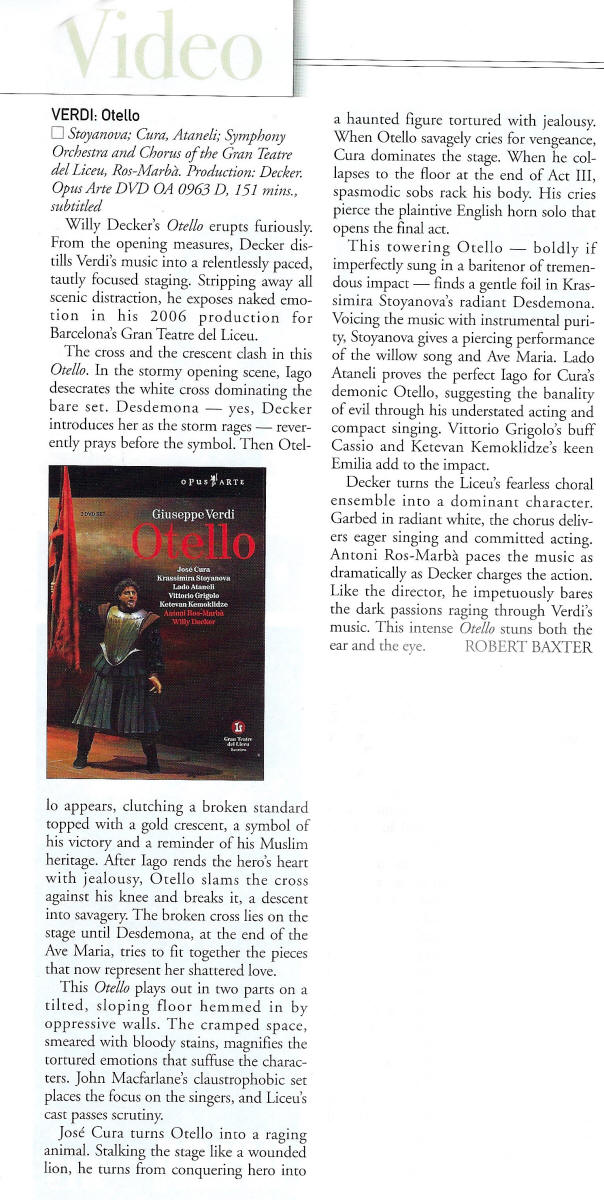 |
Verdi: Otello
Opera News, June 2007 R. Baxter
This Otello stuns both the ear and the eye….
Willy Decker’s Otello erupts furiously. From the opening measures, Decker distills Verdi’s music into a relentlessly paced, tautly focused staging. Stripping away all scenic distractions, he exposes naked emotions in his 2006 production for Barcelona’s Gran Teatre del Liceu.
The cross and the crescent clash in this Otello. In the stormy opening scene, Iago desecrates the white cross dominating the bare set. Desdemona—yes, Decker introduces her as the storm rages—reverently prays before the symbol. Then Otello appears, clutching a broken standard topped with a gold crescent, a symbol of his victory and a reminder of his Muslim heritage. After Iago rends the hero’s heart with jealousy, Otello slams the cross against his knee and breaks it, a descent into savagery. The broken cross lies on the stage until Desdemona, at the end of the Ave Maria, tries to fit together the pieces that now represent her shattered love.
This Otello plays out in two parts on the tilted, sloping floor hemmed in by oppressive walls. The cramped space, smeared with bloody stains, magnifies the tortured emotions that suffuse the characters. John MacFarlane’s claustrophobic set places the focus on the singers, and Liceu’s cast passes scrutiny.
José Cura turns Otello into a raging animal. Stalking the stage like a wounded lion, he turns from conquering hero into a haunted figure tortured with jealousy. When Otello savagely cries for vengeance, Cura dominates the stage. When he collapses to the floor at the end of Act III, spasmodic sobs rack his body. His cries piece the plaintive English horn solo that opens the final act.
This towering Otello—boldly if imperfectly sung in a baritenor of tremendous impact—finds a gentle foil in Krassimira Stoyanova’s radiant Desdemona. Voicing the music with instrumental purity, Stoyanova gives a piercing performance of the willow song and Ave Maria. Lado Ataneli proves the perfect Iago for Cura’s demonic Otello, suggesting the banality of evil through his understated acting and compact singing. Vittorio Grigolo’s buff Cassio and Kerevan Kemoklidze’s keen Emilia add to the impact.
Decker turns the Liceu’s fearless choral ensemble into a dominant character. Garbed in radiant white, the chorus delivers eager singing and committed acting. Antoni Ros-Marbá paces the music as dramatically as Decker charges the action. Like the director, he impetuously bares the dark passions raging through Verdi’s music. This intense Otello stuns both the ear and the eye.
|
|
|
|
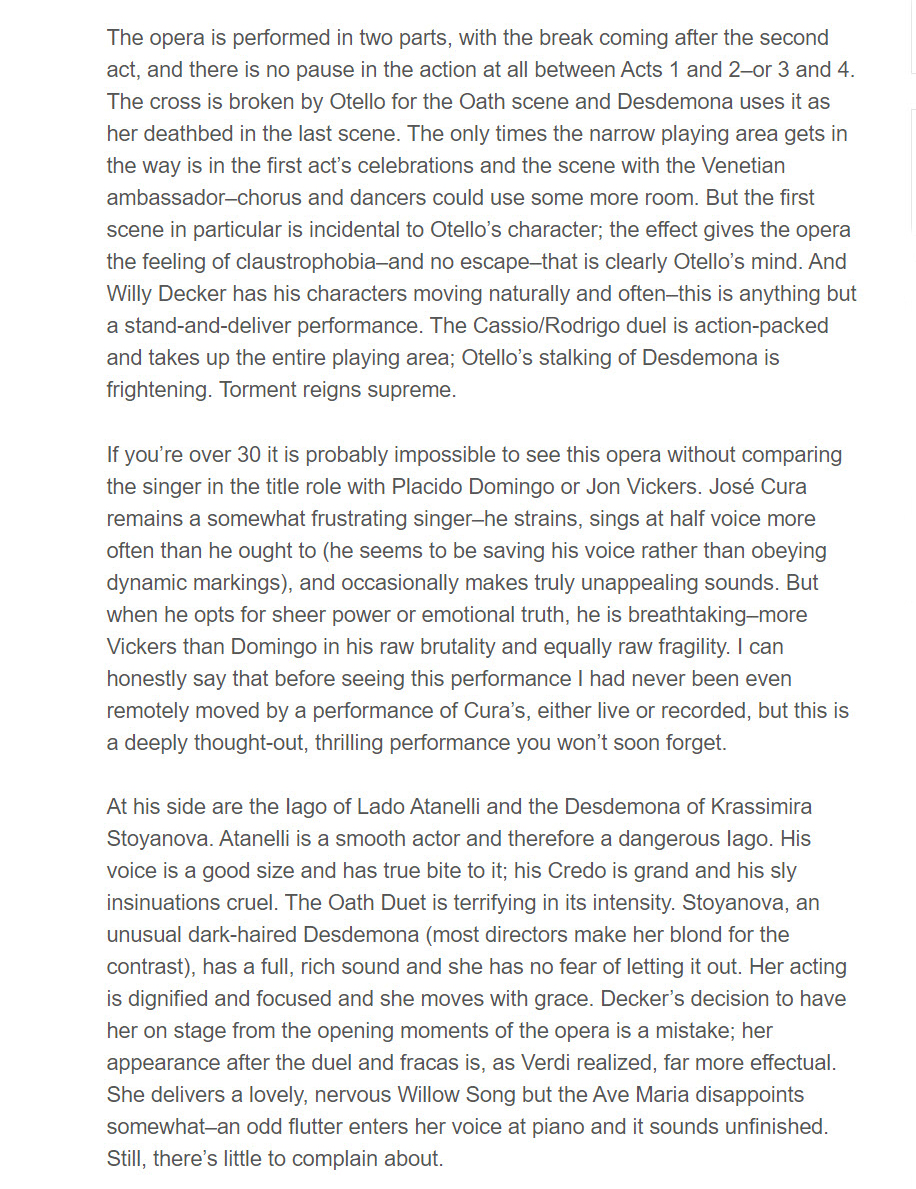 |
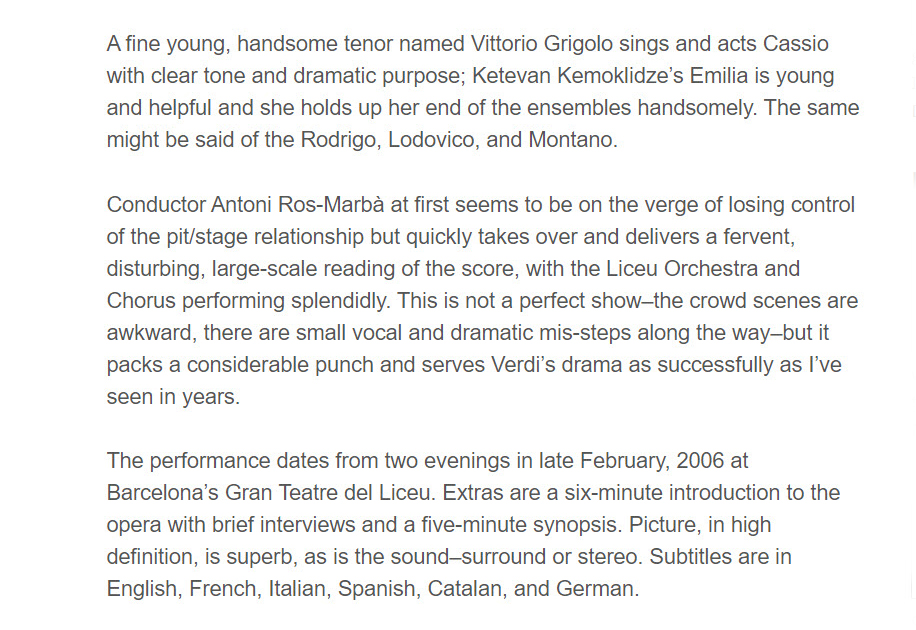 |
|
La Scena Musicale
|
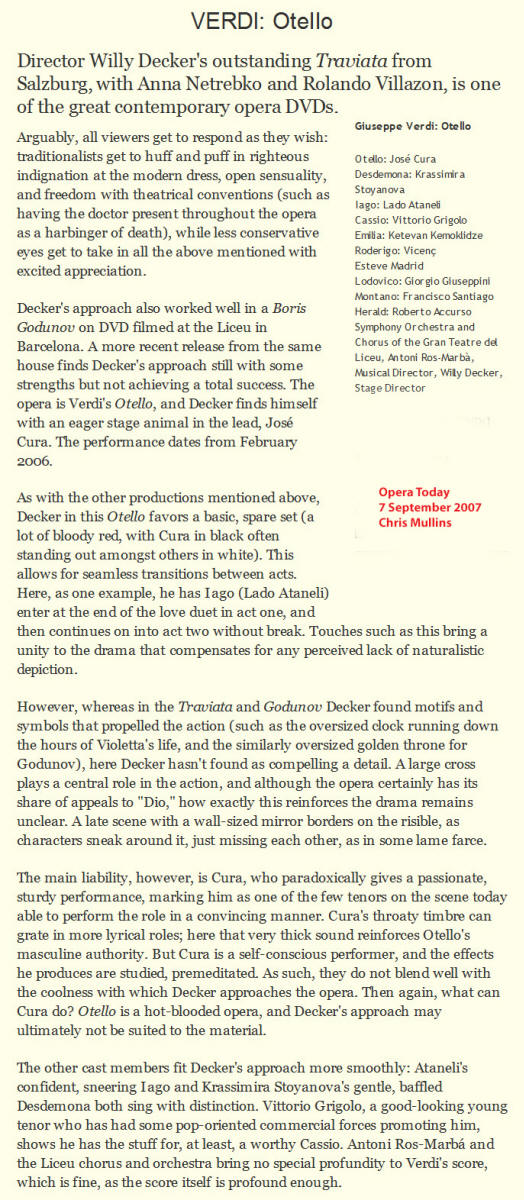 |
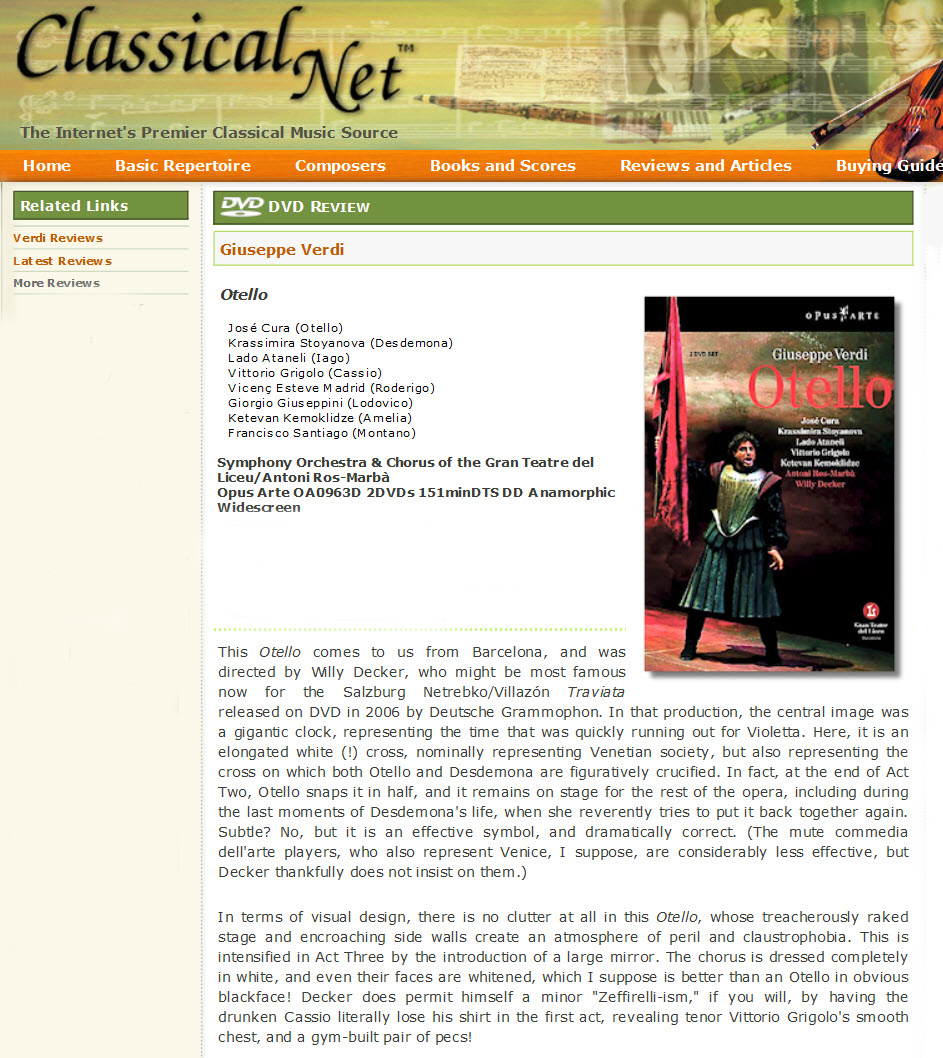
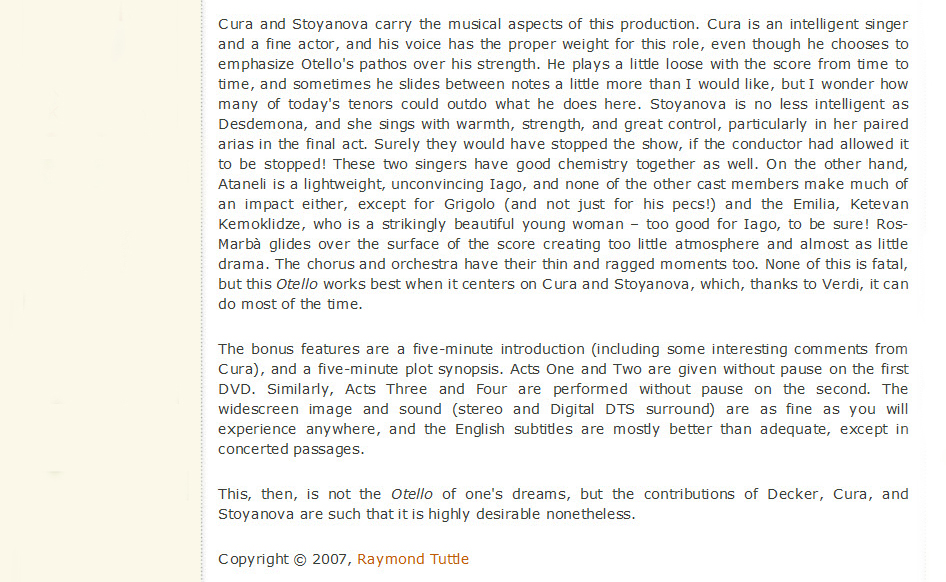
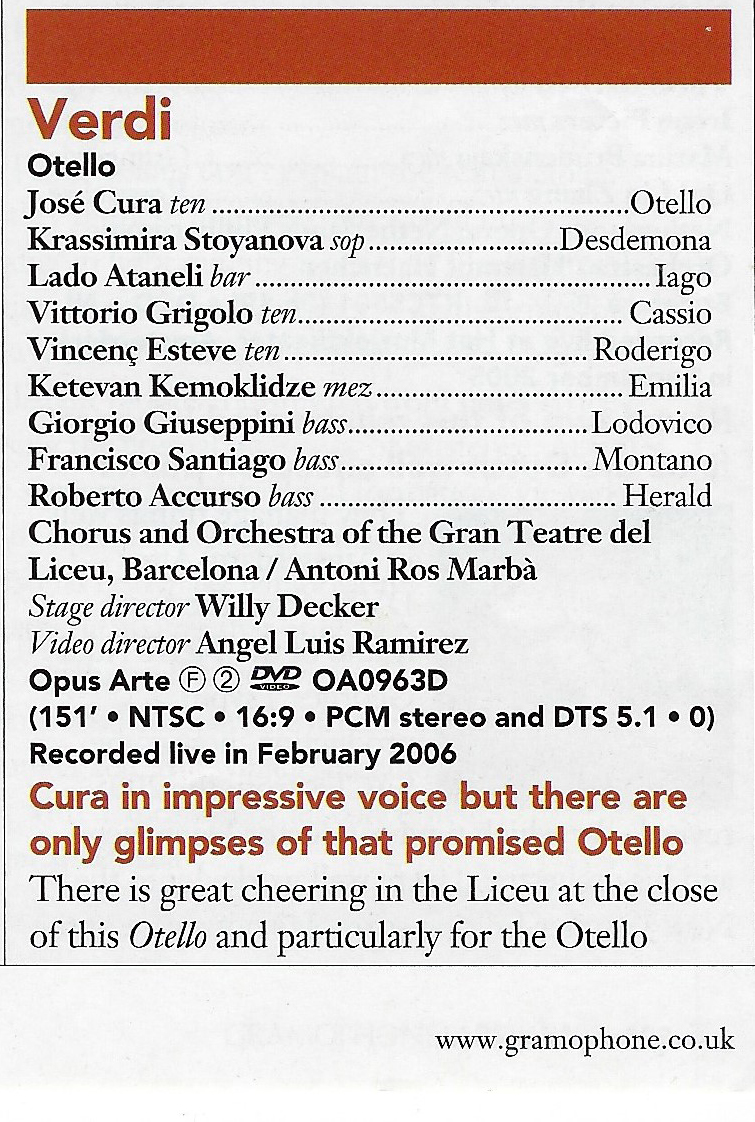 |
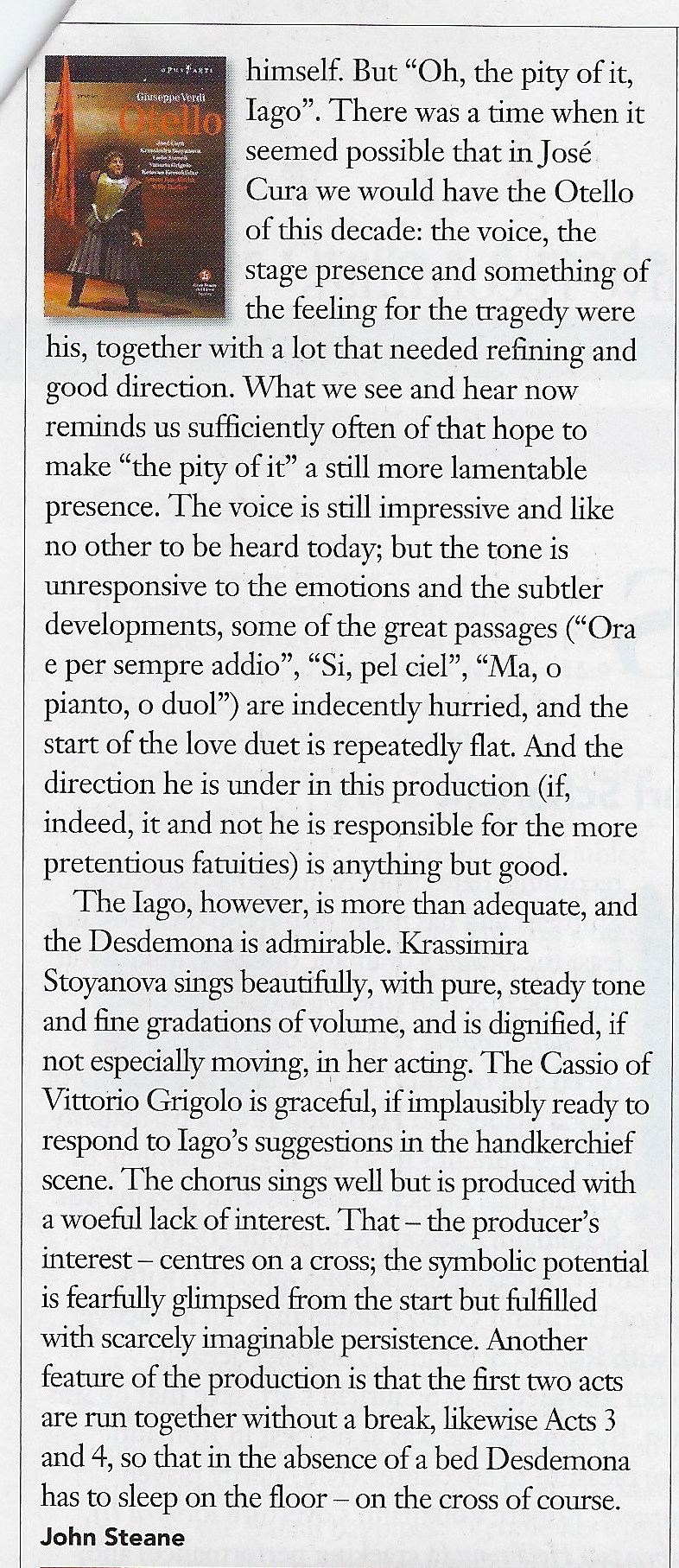 |
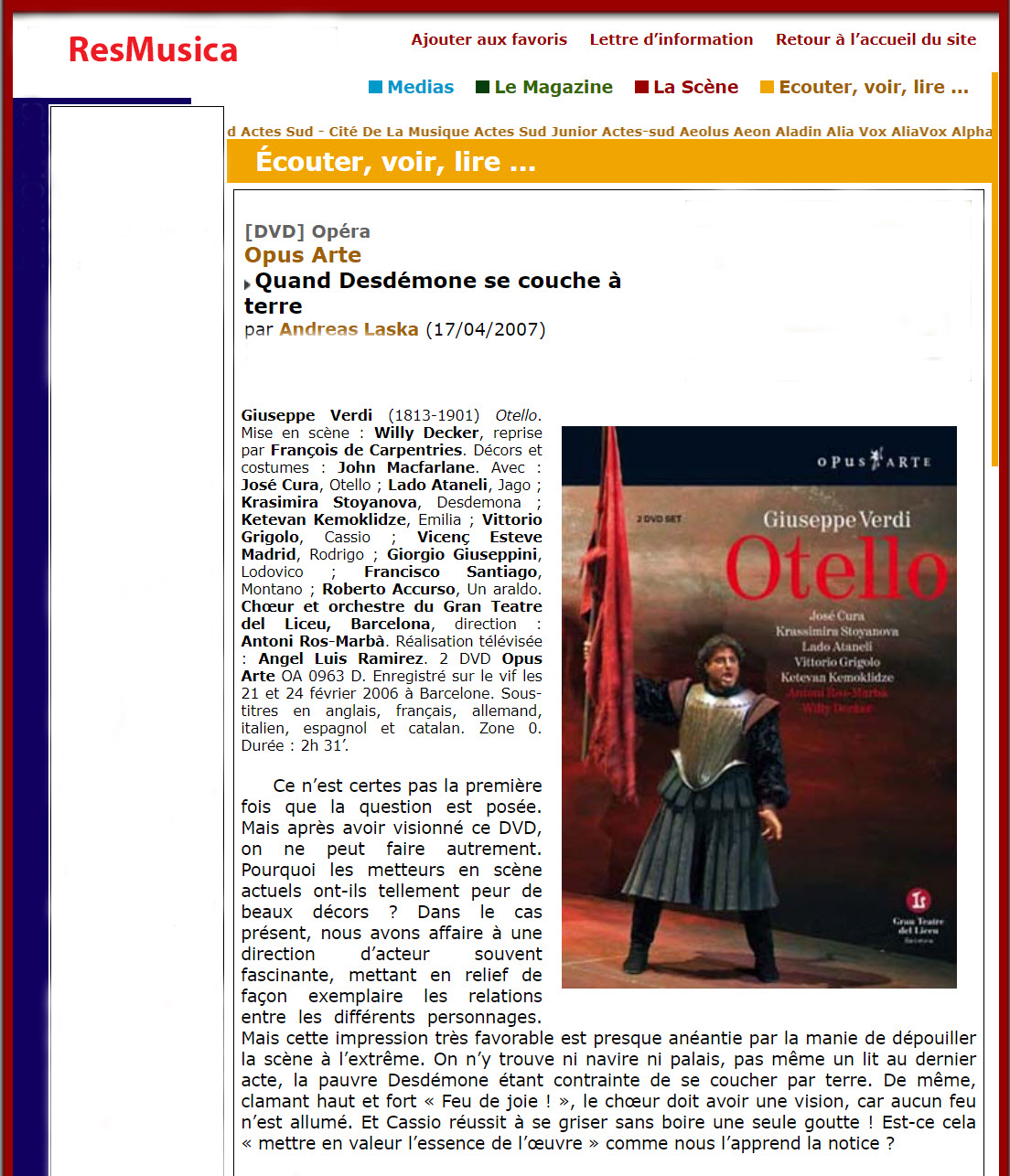
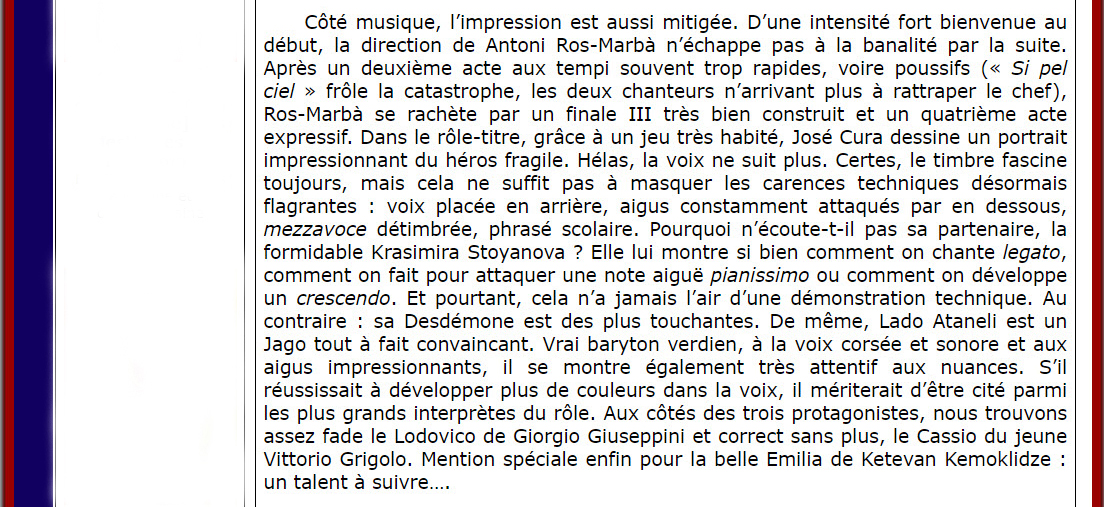
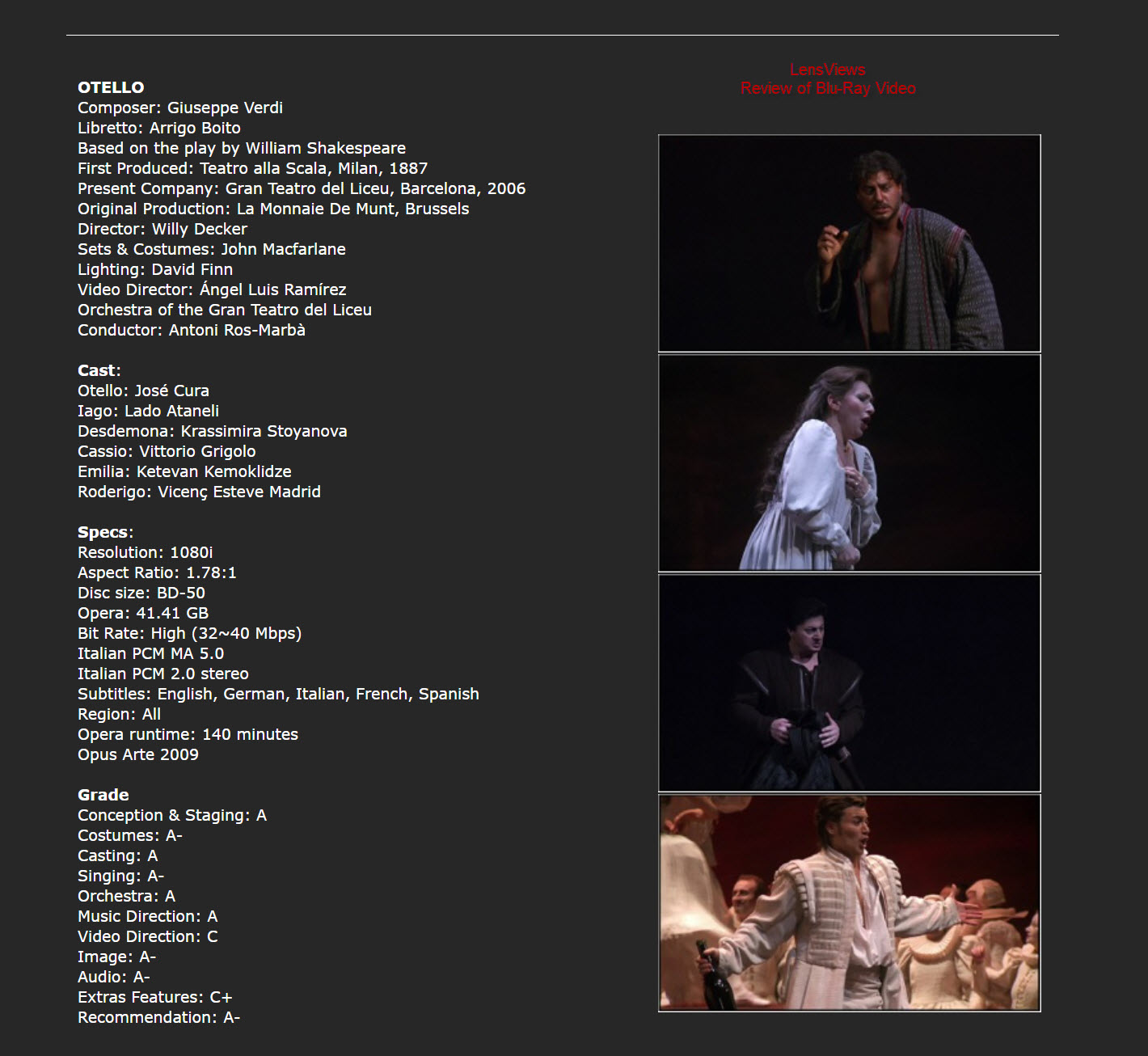
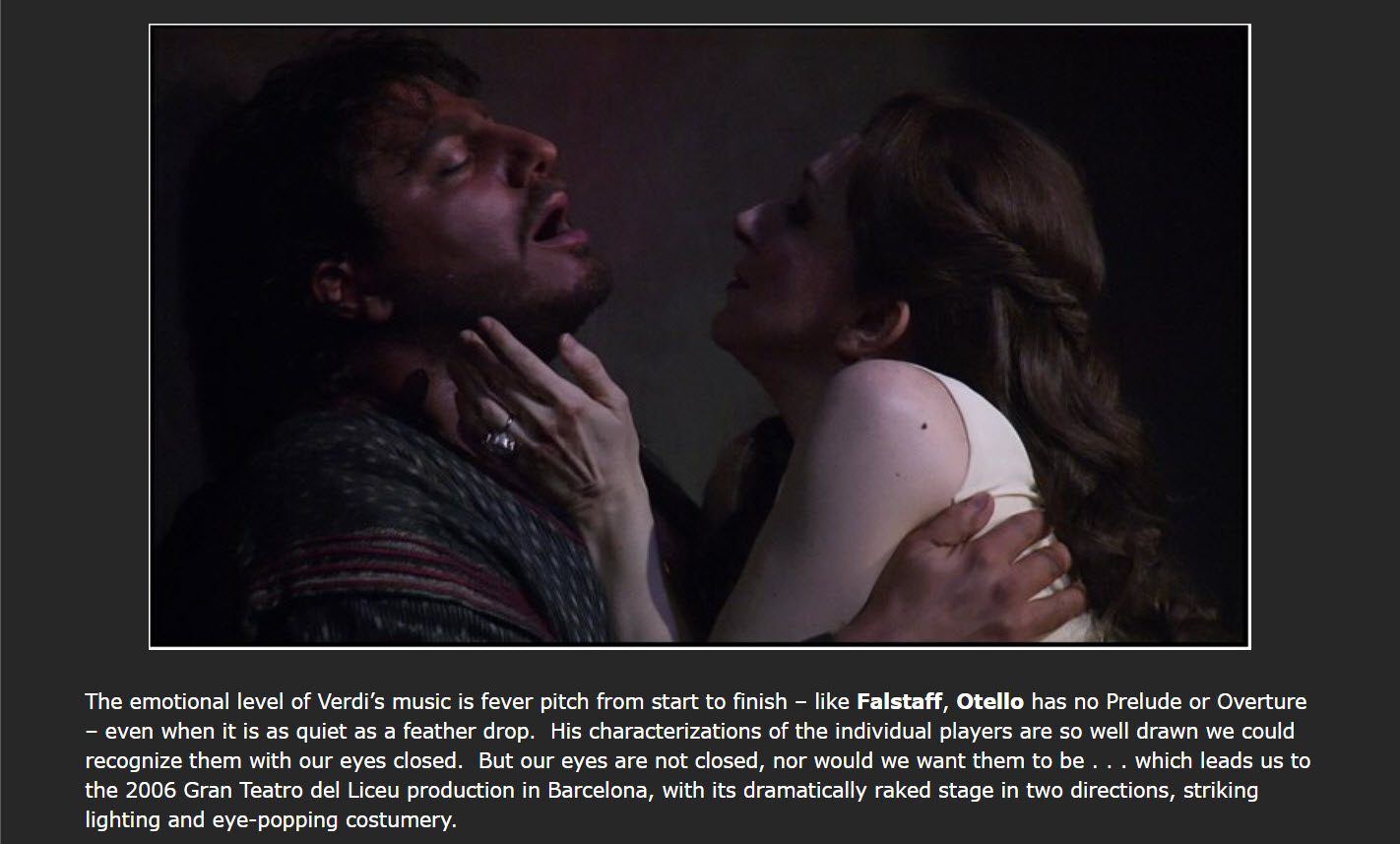
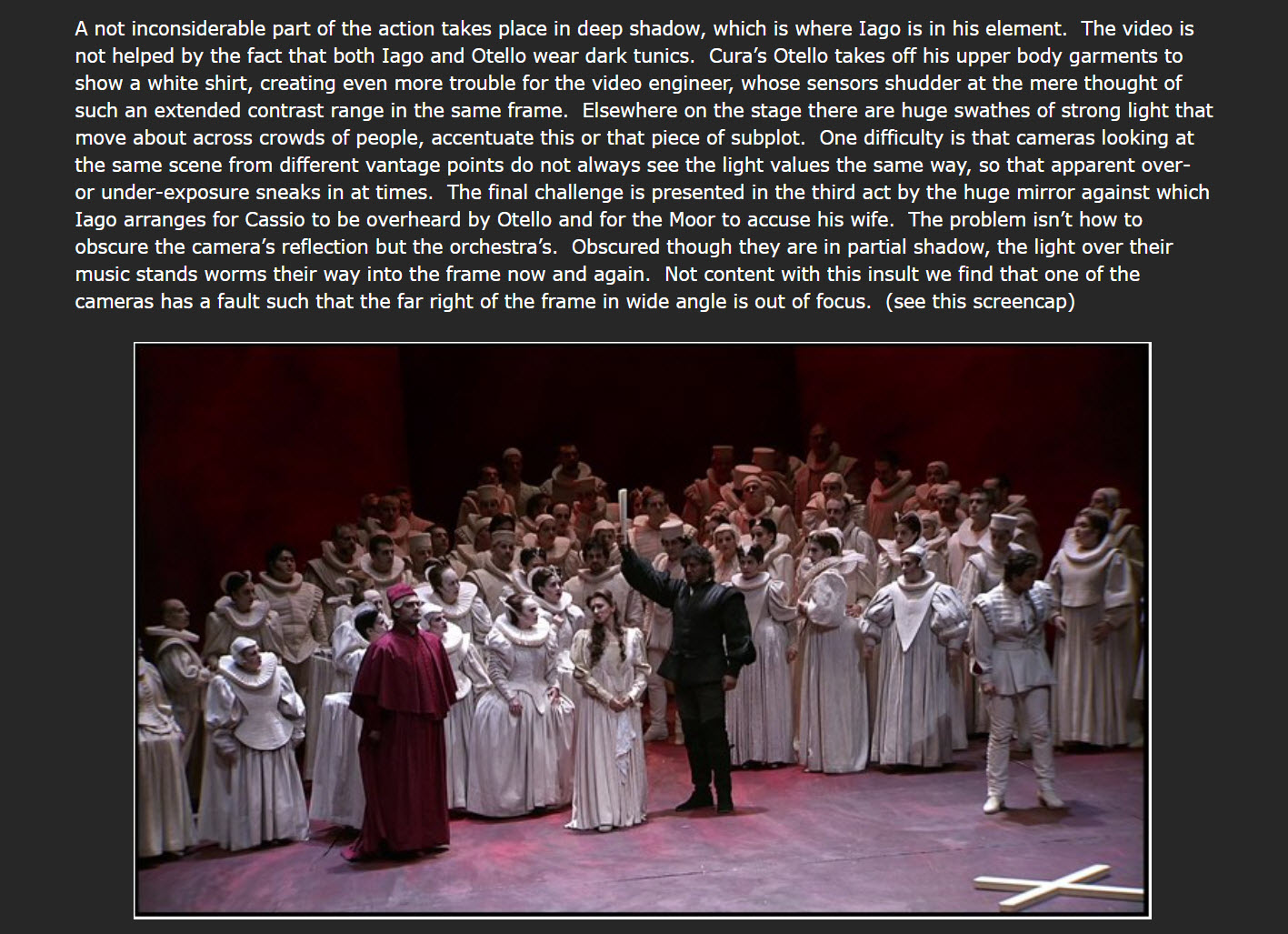
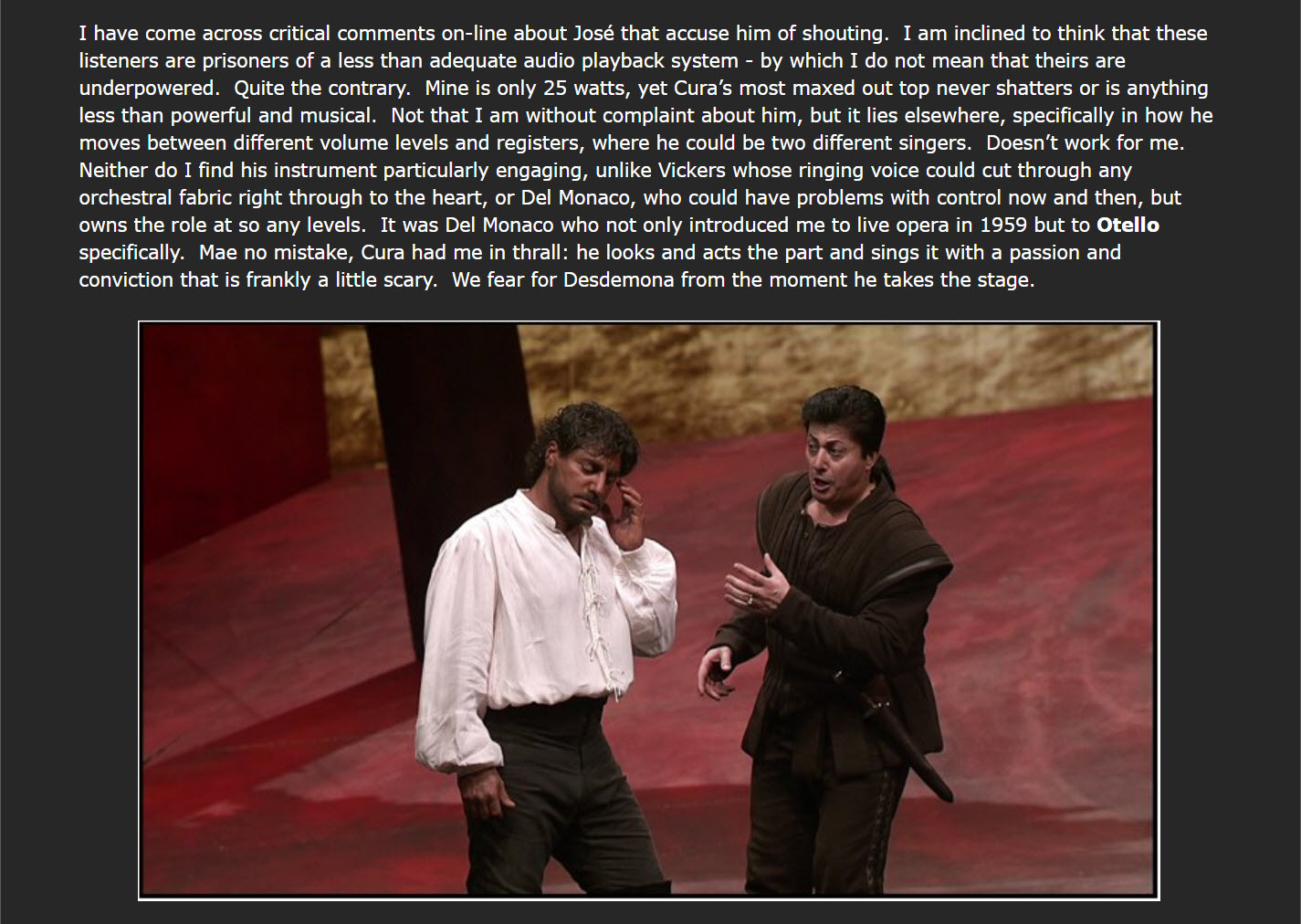
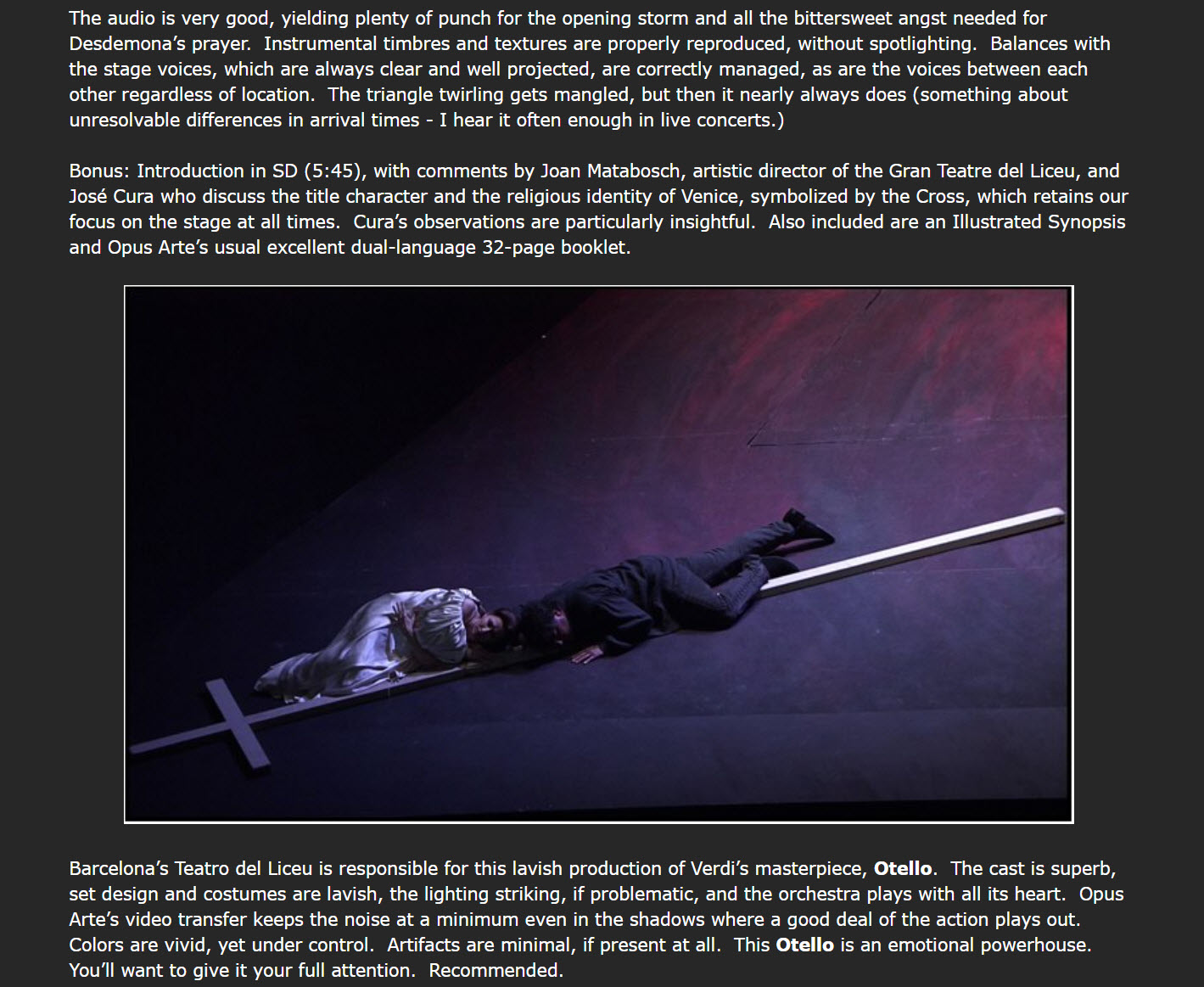
|
|
